- Weekly Newsletter
California's Boating & Fishing News


Is living aboard a boat really a reasonable alternative to buying a home?
Californians are fighting high prices of living in The Golden State and some believe life on a boat is a viable answer — The Log examines the reality of liveaboards, the rewards and nightmares.
SOUTHERN CALIFORNIA — There is no denying the liveaboard culture can be an appealing one for a large number of people, boaters and non-boaters alike. With the housing crisis in California, many have also been scrambling to find alternative housing solutions – one such being embracing living on a boat instead of fleeing the state to search for a more humble abode.
But what are the economics of living on a boat? Is it really cheaper than purchasing a house at the California average housing cost? With housing prices rising so rapidly, especially in the scenic coastal communities of California, it’s no wonder that home buyers and renters are looking for solutions to the ever-growing dilemma.
Living on a boat, at first glance, might seem like the perfect answer – especially to the non-boater. While there are many positives to choosing to leave life on shore behind, it may not necessarily be the best choice for someone who is not completely committed to the decision and have not done research on the subject first.
Housing Prices in SoCal
According to Zillow, a popular home rental and buyer’s listing website, the median price of homes listed as of print is $532,000 and the median price of homes sold is $486,500. Over the past year, values have gone up 8.3 percent. Rental prices average $2,750. Worse still, these prices are projected to continue rising over the next few years.
California’s housing prices are more than double the median home value in the United States, which is recorded by Zillow as $216,000. Rent is also around $1,690 across the country.
Owning a Boat
Boats are expensive and in some cases, more than the average cost of a home in the United States, especially one that fits the standards eligible to liveaboard status in some marinas.
Now there are certainly incredible tales of great deals on boats (for instance, this writer heard a member of the Classic Yacht Association was able to nab a vintage wooden boat for $1 in Huntington Harbour), but the intense work and refurbishment that goes into the process has been known to empty many a pocketbook.
Maintenance is also an expensive part of owning a boat. Mike Sullivan, a former dockmaster at Chula Vista Marina, stated one of his biggest accomplishments during his career there was establishing a boating concierge service to help maintain boats of tenants that live there. Sullivan also mentioned while older generations typically had the knowledge to fix things, younger generations aren’t always as savvy. He did say, however, younger “engineering types” were accessing YouTube and learning how to re-build boat components.
Finding the Right Boat-Sweet-Boat
In addition to the general maintenance, those seeking to become liveaboards have to think about the kind of boat that would best suit their needs. Most marinas will have rules about the minimum size of a boat to gain liveaboard status: depending on the marina, it may be as small as a 25-footer or it could be larger, maybe 30 or 35 feet. This is all dependent upon the marina.
Today, there are a large variety of trawlers and other boat styles that would make living aboard equivalent to living on a floating condo, but those boats may come with a price.
If purchasing a used boat for a bargain price, be wary that quite a bit of maintenance may need to go into it.
New boats providing the comfort some are seeking could cost more than $100,000, with some newer vessels being well over the median housing price.
Also, the size of the vessel may depend on how many people are living aboard – according to The Chandlery Yacht Sales located in Santa Barbara, 25-foot vessels are preferable for a single person, whereas sizing up might be more comfortable for a family of two or more.
A liveaboard tenant who prefers to remain anonymous – The Log will refer to her as Rita because she would not like to share a “glowing review” of living aboard due to complications at her marina – offered this advice: “If you’re considering buying a boat to live on, save enough money to buy a newer one. When you find the one you want, spend a couple hundred dollars on a good marine surveyor so there are no surprises down the road.”
Rita continued, “After 35 years of living aboard and eight boats later, I finally have a boat that doesn’t need a lot of repairs and doesn’t leak. It’s a way of life I always wanted, but it’s not for everyone. Make sure you and/or your spouse are dedicated to living on a boat because it can be uncomfortable and inconvenient.”
Maintenance is one of the major difficulties in living on a boat, which Rita says has caused her grief over the years.
“Where boat repairs are concerned, the Port of L.A. tariff states that any repair work on any recreational vessel cannot encompass more than 25 percent of the surface of the vessel above the waterline, no hull painting is allowed and no repair/maintenance debris, paint, thinner, varnish or other materials can be discharged into harbor waters. Many marina regulations are even more restrictive.”
When Rita bought her first boat, she chose a 30-foot Owens for $2,000 that was visibly in need of much repair.
“I could see the boat needed a lot of work, but it was far more extensive than I realized — it was a wreck,” Rita said. “I spent the first winter sleeping under a tarp inside the boat; the marina would not allow tarps outside. I knew nothing about boat repairs, but tenants in the marina began to come around who ‘claimed’ they did, so I started hiring them.”
Unfortunately, this trust led Rita to go through several costly repairs that ended with results like her boat’s cabin collapsing. Rita’s tale of caution is also a reminder for those seeking to liveaboard that finding a trustworthy, affordable mechanic to work on a vessel can also be difficult to secure.
Gaining Liveaboard Status
For those interested in living aboard, The Log recommends contacting the marina or harbor to find out individual rules and to learn more about the application process.
Applying for liveaboard status will be different at every marina. Some are municipally owned while others are private for-profit operations. Municipally owned harbors will typically have a much smaller limit or percentage of tenants who can apply to be liveaboard depending on the desirability of the area. Waiting lists to acquire a slip are typically long as well.
Also, one of the important things to know when considering if a liveaboard could be right for you or your family is while you own the boat you do not own the boat slip. Essentially, the slip is being rented from the marina, which means at times there will be an increase in slip rental fees or there is a possibility for eviction such as recent happenings in San Pedro — also a costly issue. Whereas equity is gained from owning a property, boat values may depreciate over time.
With the slip payments, a boat payment (if you do not own the boat outright), maintenance cost and so on, there is a probability that living on a boat could near the median rental prices in Southern California. By no means is living aboard a cheap or easy option.
Rita, who lives aboard in the Los Angeles area, said, “Finding a liveaboard slip can be difficult. In the Port of L.A., it is limited to 5 percent of the number of slips. If a marine has 200 slips, only 10 slips are permitted to be liveaboards, and only for security purposes.”
Marina Politics & Inconveniences
In California’s political climate with multiple waterfront projects, marina evictions, sneakaboards, water quality and other issues that you can find covered in The Log , even with that ocean view, it’s not always smooth sailing.
Though most boating folks do have a sense of community, there are matters of living with people that don’t disappear. Rita told The Log her marina in The Port of L.A. area has been trying to cut down on liveaboards; they have a problem with sneakaboards, or vessel owners who are unauthorized to live on their boats, but still do. With the difficulties that have taken place, she does not believe she can paint a perfect portrait of the liveaboard lifestyle in her marina at the moment.
Among some of the other inconveniences also mentioned by Rita when it comes to living aboard a vessel:
- Emptying waste waters from showers and toilets require using a pump-out station – it is illegal to discharge raw sewage into any harbor waters.
- Neighbors are 2 feet away.
- Even large vessels have limited living and storage space – simple living is a necessity while calling a boat home.
- Marine atmospheres are corrosive to automobiles as well and most marinas do not have covered or garage parking.
The Big Questions
The majority of this article may have sounded like nay-saying and dissuading boaters from seeking liveaboard status, but for those who have done their research, living on a boat may be exactly the lifestyle he or she is seeking. The Log has covered individuals who would never turn back to land living and also those who have run into problems.
Questions that may need asking are: Is this the lifestyle for me? Can I afford the maintenance of my boat? Will I be able to work aboard or get to work from the marina I’ve chosen? Is the marina I desire to live at currently offering liveaboard slips? How long will I reasonably have to wait to become an authorized liveaboard? Is my boat big enough to live on? Will my family be comfortable aboard? Will we be prepared if something happens to our boat such as a large repair cost or irreparable damage?
For those looking for a quick fix to solve the problem of expensive rent, living on a boat might add to problems instead of being the answer. Ocean lovers, on the other hand, with knowledge of boating (or interest in developing knowledge) and a desire to be a part of a tight-knit community – with patience and a willingness to be open-minded throughout the process of seeking liveaboard status – could find this a rewarding adventure.
Share This:
- ← O.C. Board of Supervisors approve long-awaited Dana Point Harbor revitalization lease option
- Avalon City Council reprises talks for funding of “dinosaur” medical center →
5 thoughts on “ Is living aboard a boat really a reasonable alternative to buying a home? ”
Pingback: Is Living Aboard a Boat Really a Reasonable Alternative to Buy a Home? - Sea Magazine
This is an incredible lifestyle – quirky, fun, individual and often less expensive. I love every part of live on the water, getting rocked to sleep, etc. Boiling this down to purely an economic decision misses the point – it is like comparing the cost of two vehicles and deciding that one is simply not worth it because it is more expensive and harder to maintain. If that were the case, no one would ever buy an Audi. 🙂
I was a livesboard for about to year in Fort lauderdale. I has a 36 foot sport fish small cockpit. Had a salón, coach, refrigerador, icemaker, 3 burner stove, microwave. To zone AC, heat pump. To staterooms me large one small which I used for a closest and store area most of the time. It was great for two people all the time and would accomidate two quests for sport star. Teo heard one with stall shower. I found it very livable and I would take elsewhere when I wanted. I have owned homes and i thank maitenace and all the most was cheaper. I am a DYI guy so I did save some Monet in that requard.
How does one locate a contractor capable of remodeling a large vessel or a live aboard? I have looked at her shipwrights and I’ve looked under contractors but never the twain shall meet… Advice is appreciated
Pingback: Is It Cheaper To Live on a Boat Than a House or an Apartment? – Catamaran Freedom
Comments Cancel reply
Your email address will not be published. Required fields are marked *
Your Thoughts are Appreciated
Save my name, email, and website in this browser for the next time I comment.
- Build A Boat
- Find A Dealer

- The Cost of Living on a Boat
Imagine taking a dip in the ocean each morning, watching the sunset from the water and traveling with your entire home wherever you go.
Living on a boat full time is an alternative lifestyle that’s all about simplicity — for the most part. Though it’s exciting to think about living on a boat or yacht instead of in a house, it’s important to acknowledge the different costs associated with claiming it as a full-time residence.
Our guide to living on a boat illustrates the high level of commitment this decision requires and outlines some steps to take to live out your dream.
Common Costs Associated With Living on a Boat
It’s the big question — “How much does it cost to live on a boat?” To answer this question, you need to consider the cost factors involved in boat ownership and residency.
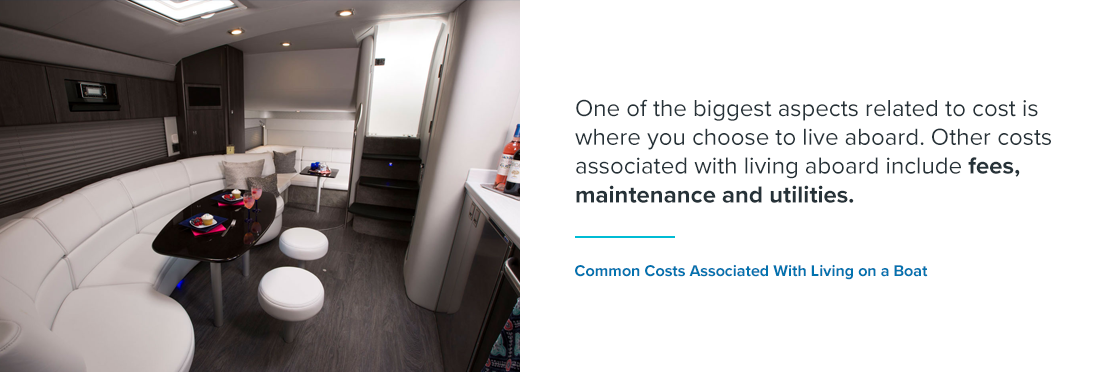
One of the biggest aspects related to cost is where you choose to live aboard. For example, fees in Florida may be higher than those in northern states. If the marina is vacant, they will often cut you a better deal compared to a marina with a waiting list. Other costs associated with living aboard include fees, maintenance and utilities.
HOW MUCH WILL LIVING ON A BOAT COST?
Living on a boat in a marina isn’t free — although we wish it were. Three different types of fees exist depending on where you reside:
- Anchorage: If a local government allows liveaboards, you may be able to find free anchorage in the right areas. Though rare, free anchorage is the most economical way of living on a boat.
- Marina slip: Boat slips charge you daily, weekly, monthly or long-term fees to stay in a marina. They also add a monthly charge for liveaboards because you use the marina facilities more than someone storing their boat. Some slip fees include utilities, but others require you to arrange for services on your own.
- Mooring: Mooring fields allow you to secure your boat to a permanent mooring buoy that attaches to a weight resting on the bottom of the water. Moorings cost about half the price of a marina slip, which can help cut expenses. As a bonus, some mooring areas have water taxi services, dinghy storage, holding tank pump-outs and access to onshore facilities.
MAINTENANCE COSTS FOR LIVING ON A BOAT AT SEA
Maintaining a boat requires more specific and frequent tasks than what you typically complete in a house. You must consider each boat component to determine maintenance costs, including the living quarters, hull, topsides,underside, canvas and deck. The marine environment is harsh — even more so where there is direct sunlight.
Think about the following costs of boat upkeep:
- Canvas: A canvas can make life aboard comfier by keeping you cool and protecting you during the summer. While an awning can shelter your boat’s cockpit and deck from the elements, you will need to maintain the material. Mildew or tearing can be an issue in harsh environments, and a special sewing kit can help you make repairs as needed.
- Cleaning: It’s essential to have a regular cleaning schedule for the outside and inside of your boat. Be sure to scrub down the topsides of your yacht or sports boat and clean out your living quarters. You should also clean the scum and barnacles off the underside of your hull. Upkeep can help preserve the condition of the rig and create a beautiful living space.
- Polishing: Consider the cost of polishing your hand rails, coamings, trim and other surfaces to keep your boat looking fresh.
- Waxing: The part of your hull that’s above water oxidizes over time, creating a dull appearance. Waxing the surface once or twice each year can keep your boat looking clean and vibrant.
- Zinc replacement: Zinc replacement helps to protect the stainless material on your boat from corrosion. As a part of your maintenance routine, inspect the zinc anodes while cleaning the boat’s hull.
COST CONSIDERATIONS OF MAINTAINING YOUR BOAT’S ENGINE
When living on a boat full time, you have to maintain your engine. Your budget for living on a boat should include engine repair and upkeep materials, such as:
- Filters: Clean and replace your engine’s fuel, air and oil filters.
- Oil: Check your manufacturer’s manual to see how often you need to change your boat’s oil. Oil keeps your engine operating smoothly and needs to be topped off regularly. When you change the oil, make sure to dispose of it or recycle it properly.
- Zinc: The zinc components in your engine protect the unit from corrosion. Inspect the zinc areas and replace them as needed to maintain the integrity of your engine.
UTILITY COSTS AND OPTIONS
Depending on where you anchor your boat, you may have to pay the marina for utilities or handle them on your own. Several provisions to consider for your cost of living include:
- Cable and phone: Some marinas provide TV, phone and internet hookups so you can enjoy leisure activities like you would on land.
- Electricity: Many marinas have power pedestals that deliver electrical power to each slip. However, you may need to invest in a special adapter to plug into the pedestal. The adapter requirements may change with different marinas.
- Water: The electrical pedestals will often have a water faucet.
- Garbage: Marinas and mooring fields may charge a fee for their garbage removal services. If not, you may have to make the appropriate arrangements yourself.
- Sewage: Many marinas, moorings and anchorages require you to store your waste in an onboard holding tank for sewage removal services. Some areas may charge a fee for a pumping service where your waste is taken to a legal disposal point.
How to Plan Your Unique Budget
Creating a budget and sticking to it is an excellent goal for managing boat living expenses. A liveaboard budget will include different categories and costs compared to that of homeowner’s budget. The following are some steps you can take to adapt a budget to life at sea.
1. CONSIDER EXPENSES
The cost of living on a boat varies depending on factors such as:
- The size of your boat
- The necessities you need
- Where you keep the vessel
- Your travel plans
If you have a large, well-accommodated yacht and plan to travel across the world, your cost of living will be higher compared to someone with a smaller boat living as a long-term mooring resident. Consider what your situation may entail so you can begin compiling a budget.
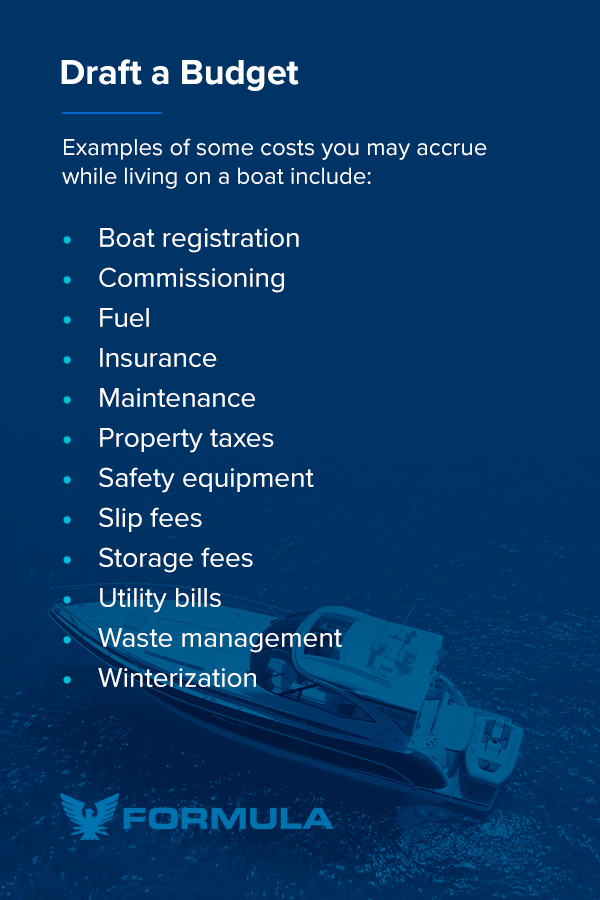
2. DRAFT A BUDGET
Your budget should cover two main categories:
- Boat costs: Including maintenance, insurance, fuel and purchasing costs, if applicable.
- Provision costs: Including utilities, food, electronics and necessity costs.
Examples of some costs you may accrue while living on a boat include:
- Boat registration
- Commissioning
- Maintenance
- Property taxes
- Safety equipment
- Storage fees
- Utility bills
- Waste management
- Winterization
Note that property taxes and utilities will often cost less on a boat compared to a home. Maintenance and slip fees are what increase the cost of living on a boat the most. For example, marine parts can be expensive and the amount of labor required to install them may be extensive. Your maintenance costs may be less if you can DIY different repairs, but if you rely on a professional, you will likely have to pay a higher price.
Once you have an estimate of your monthly or yearly expenses, budget for a bit more. This cushion can help support you in emergencies or when you have unforeseen expenses.
3. GATHER YOUR FUNDS
When you have a budget in mind, consider how you will cover the necessary costs. You may opt to begin saving money or use money you’ve already saved. You can also choose to diversify your income if you’re planning to adventure for multiple years. To bring in extra cash, think about renting out your home or committing to freelance work.
You may be able to save money by gaining the right experience before living aboard. If you have limited knowledge about marine engines, volunteering at a marina or taking a few courses can help you learn the ins and outs of your sports boat or yacht. This may equip you to handle more maintenance tasks on your own, which can help save money on labor costs.
Knowing what you’re getting into, having the right resources and setting a budget can help make living on the water as smooth and relaxing as you’ve dreamed.
Other Important Questions About Living on a Boat
To get the most out of the liveaboard lifestyle, think about some of the following questions before you start your new venture:
- Am I capable of handling boat maintenance and solving problems?
- Am I living in a boat-friendly climate year-round?
- Will my children or pets live with me?
- Do I have a steady income or saved money?
- Is this a change in lifestyle or a short-term commitment?
- What type of amenities will I need?
A few other questions you may have include the following.
1. DO YOU HAVE TO PAY TAXES IF YOU LIVE ON A HOUSEBOAT?
Unless you are constantly moving from one port to the next, you will likely have to pay property taxes. If you dock your boat at a marina or slip, you may pay taxes on the outline of water you occupy. These taxes help you and other boaters gain access to on-the-water services, onshore facilities and waterway maintenance.
2. CAN YOU MOVE ABOARD RIGHT AWAY IF YOU HAVE A SLIP?
If you have a slip, there may be a few additional steps you need to take before you move onto your boat full time. Review the following list for some tasks to complete before you move aboard:
- Inquire about a waiting list, if the marina has one.
- Confirm that the marina allows liveaboards.
- Ask about an application to become a permanent resident. If required, the application may request proof that you’re capable of making payments and adhering to their local regulations.
- Ask if your rates might go up. Liveaboard slip fees are usually higher than the average slip charge because you’re there full time. Your insurance rates may go up as well.
3. HOW MUCH IS INSURANCE ON A HOUSEBOAT?
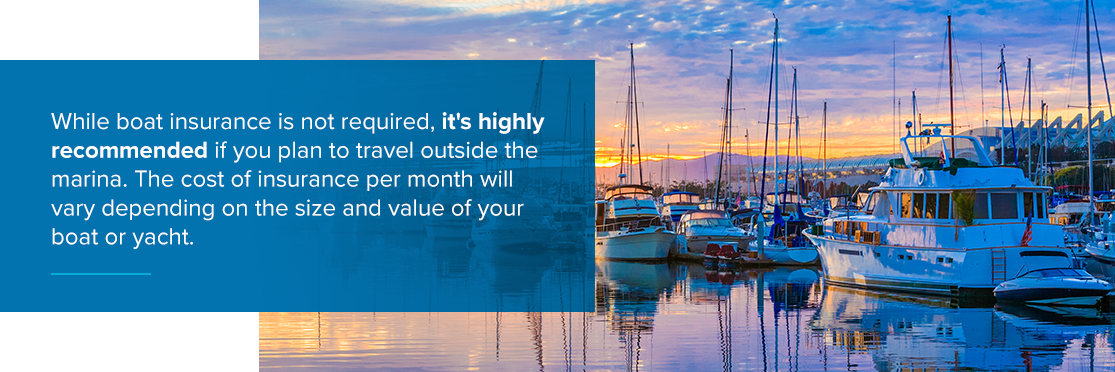
While boat insurance is not required, it’s highly recommended if you plan to travel outside the marina. The cost of insurance per month will vary depending on the size and value of your boat or yacht. Other factors that can affect your insurance rates include:
- Boat length
- Your expected boat use
- Boat horsepower
- The region of the country you live in
- Your credit score
- Your motor driving record
4. WILL LIFE BE SIMPLER LIVING ON A BOAT?
Even though a boat is smaller than a house and has less space to take care of, living on a boat isn’t always simpler. For example, small spaces mean you have less storage for food and other amenities. You also need to consider how you’ll handle grocery shopping, laundry, mail and other things you may take for granted at home, like a dishwasher. With a little bit of creativity, you can adapt to the changes you’ll encounter on a boat with ease.
5. CAN YOU LIVE ON A HOUSEBOAT IN THE WINTER?
Many boaters choose to put their boats to rest once winter rolls around, but that isn’t your only option. You can live aboard during the cold months when you invest in provisions like:
- Shrink-wrap
- Electric heaters
- Warm clothes
- A de-icing machine
What to Look for in a Liveaboard Boat
Different makes, models and sizes of boats are available to accommodate your liveaboard home, so the best boat for you will depend on your lifestyle, budget, application and destination.
When determining the best boats to live on full time, here are a few questions to consider:
- Are you working from your yacht or boat?
- Do you need a craft to transport you across different bodies of water or to the nearest port?
- How many people will be full-time residents on the boat?
- How many necessities are you bringing?
- Is your plan to live full time on the boat or periodically?
Once you have an idea of what you need, you can determine what type of boat you want to live on . You will want to invest in a watercraft that maximizes your space-to-budget ratio. For example, powerboats give you the most living space per square foot of the boat with spacious areas above the water, excellent headroom and good storage. Sport boats also have space above and below deck for dining, living and entertainment.
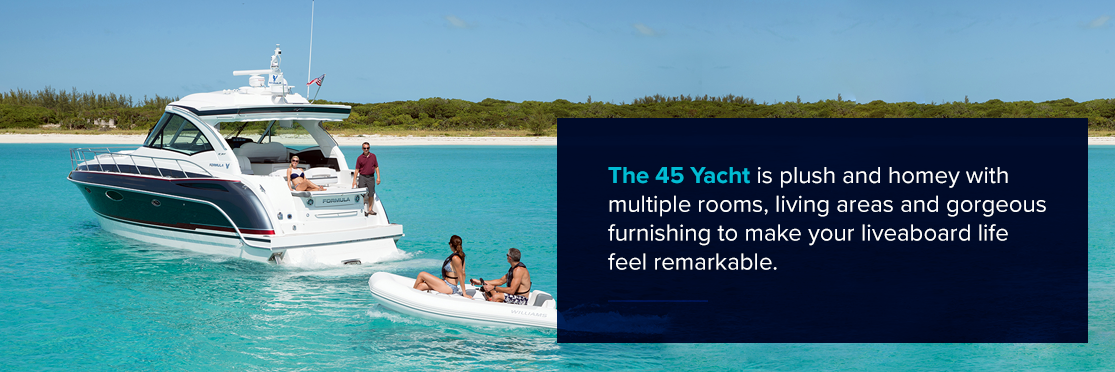
You can also match the boat to your lifestyle with a luxury yacht, like the Formula 45 Yacht. The 45 Yacht is plush and homey with multiple rooms, living areas and gorgeous furnishing to make your liveaboard life feel remarkable. It also features:
- A sunroof and windshield with panoramic views
- An air conditioning system
- A port-side lounge
- A cherry dining table
- A 40-inch widescreen TV
- A refrigerator
- Abundant storage
We deem the 45 Yacht as one of the best boats to live on full time because of its sought-after amenities, technology, comfort and transportation abilities.
About Formula Boats
Formula Boats is a family-owned company based in Decatur, Indiana. Since our beginning, we’ve been dedicated to continually improving and developing our line of sport boats. We craft incredible boats with uncompromised quality, fine-tuned designs and authentic craftsmanship.
Our boats are renowned for stunning styles, advanced engineering and exciting performance to help you enjoy priceless moments — whether you’re living aboard on your own or with your family.
We’ve advanced our marine manufacturing techniques over the past 60 years to offer the FormulaFlex™ program that allows for individual personalization. We understand that customization and flexibility are what you expect when it comes to creating your dream boat, so we enable you to control the following aspects in your custom design:
- Cabin fabrics, cabinetry and Corian surfaces
- Electronic positioning
- Hull and outboard setups
- Interchangeable graphic color selections
- Upholstery base, piping and accent colors
At Formula Boats, we aim to surpass all your expectations and take pride in our customer-oriented services. We build for you, not the masses, with our personalized and legendary line of boats.
Living Aboard With a Customized Boat From Formula Boats

You can rely on Formula Boats for standout products as you make the transition to living aboard. Our experts can engineer powerboats to your exact specifications in our 575,000 square-foot manufacturing facility. We work to deliver a gratifying experience on the water through superior quality and service.
When you’re searching for the ideal boat to live on at sea, we have the customization you demand. Browse our line of powerboats or contact our dedicated team of professionals to learn more today.
Contact Dealer
This site is protected by reCAPTCHA and the Google Privacy Policy and Terms of Service apply

Living On A Houseboat: The Pros and Cons
*This post may contain affiliate links. As an Amazon Associate we earn from qualifying purchases.
If you just recently purchased a houseboat or are in the market for one you have probably heard about people who live on their boat full time. The people who do this (often known as liveaboards) are a special breed.
Living on board a boat certainly isn’t for everyone but if it’s something you have considered or simply want to know more about than this article is for you! In this article I will list the pros and cons that you will experience while living on your houseboat.
Hopefully knowing some of the pros and cons will help you make a more informed decision or just help you have more information at your fingertips.
Benefits Of Living On A Houseboat (The Pros)
1.saving money.
Living on board a boat will often be far cheaper than renting or owning a traditional home. There will be less expenses and the original purchase price is often far cheaper than what you could ever purchase a house for.
Not only will you save money on the purchase but you will also save money on the monthly expenses. That is of course assuming you aren’t paying a normal dock fee for every night.
With a traditional home you will have to pay for gas, electricity, water, property taxes, homeowners insurance, and more.
With a houseboat you will often only have to pay for the fuel for the boat/generator, the water (assuming you don’t have a system that will pull it from the lake or river) and boat insurance, and yearly registration. You can often save multiple hundreds of dollars a month by living on board than you would renting a home.
2. Leisure At Your Fingertips
This one could be a pro and a con to be honest. If you are retired then being able to fish from your couch is probably an amazing benefit. If you are still working, whether from home or a normal 9-5, it will be difficult to have to tear yourself away when the fish are really biting or the scenery is particularly beautiful.
Being able to enjoy amazing views from your windows and deck is one of the biggest pros of living on a houseboat . Having your everyday life feel like you are on vacation while also saving money? Who doesn’t want that?
That leisure does come at a cost however. You will certainly become quite spoiled with your daily views and visiting other people for the holidays will make you want to go back to your home on the water!
All kidding aside being on vacation 365 days a year is one of the biggest attractions for people that choose the houseboat life.
3. Less Upkeep
Now don’t get me wrong, of course things will break on your houseboat and need repaired just like with a traditional home. One of the big reasons a houseboat doesn’t require as much upkeep is that there are less things to break!
With a house you have all sorts of integral systems that can be quite complex to repair. On a houseboat those systems are often quite simple.
For example your septic system in a house can get tree roots that grow into it causing you to have to hire someone to dig up your yard. With the septic on a houseboat it all goes to one tank and then just has to be pumped out at a marina.
Another thing that keeps the upkeep down on a houseboat is simply the size. With many houses running into the thousands of square feet and an average houseboat only being a few hundred it’s quite obvious that you won’t have to do as much work on a smaller property.
Even if something needs painted or stained it’s only a small amount of square feet that needs it instead of thousands with a house!
4. Less Cleaning
Just as mentioned above with upkeep since there is a much smaller area that you will live in the cleaning that needs done will be much faster and easier too. Of course you will still have dishes, laundry, etc. to do but carpet vacuuming, window washing, and even dusting will be far easier with the smaller vessel.
Since you are living on the water most of the items on board will probably be a lot easier to clean than traditional furniture pieces or kitchens. Nothing beats saving time on cleaning and watching the sunset or fishing instead!
5. The Great Community
If you’ve never been a part of a boating community you probably looked at this benefit and thought I ran out of things to write lol but this is actually a huge plus. Having a group of people that you regularly dock with means you can easily make friends no matter where you stop.
Whether you are there for a few days or a few months you will be sure and find many like minded people who love boating and can help you with the best things to do and places to go in each new area you visit!
The Negatives Of Living On A Houseboat (The Cons)
1.the size .
Size really is everything nowadays and living aboard a houseboat means downsizing especially when compared to most modern sized homes. With many people’s homes running 2,000-3,000 sq foot and larger downsizing to a houseboat that is 5-600 sq ft can be quite a shock.
If you are downsizing that much you will have to embrace the minimalist lifestyle. The last thing you will want to do is be mad or upset about getting rid of your stuff or to feel cramped in a houseboat.
2. Only Live On The Water
This can certainly be a pro or a con but for the sake of argument I will put it in with the cons. Living in the water can certainly be amazing but one drawback is you almost HAVE to stay on the water or near it all of the time.
Most people who live on a houseboat won’t have a car so every place they do will have to be close to the water or they will have to pay for a taxi or Uber. That will seriously limit the places you can visit in each town you dock at.
Unfortunately it isn’t like an RV where you can tow your vehicle and unhook when you want to visit places away from shore. You either walk or pay for a ride.
3. The Weather
Living on a houseboat you are susceptible to all of the whims of the weather where you are at. If you are planning on boating down the Mississippi but it is closed because of flooding, all you can do is wait.
If there is a major storm headed to your location you will often have to leave the boat and find a safe shelter. Moving your houseboat to safety sometimes isn’t possible and even if it is possible it’s guaranteed to be quite a hassle.
Another thing you have to deal with or plan around is the cold. Living on a houseboat when it is below freezing is absolutely NO fun so avoiding the cold is a great plan, but what if a cold front quickly blows in? You have to figure out how to deal with it or move your boat unnecessarily anytime a cold front might pass through.
4. Holiday season
Around the holidays people will often have family and friends come over for parties etc. When you live on a houseboat that is difficult if not impossible as there isn’t much room for family to gather and being on the move can make it difficult for people to plan to visit you.
Granted being in a warmer location for the holidays can certainly be nice but having a bunch of people on a 500 sq ft boat isn’t many people’s idea of a good time.
5. Doesn’t Work Well With Families
Unless you are retired than living on a houseboat can be difficult for anyone with a family. Not only will you not have much space for your family to spread out but you will also have to worry about your kids getting wet all the time.
Imagine trying to get the kids ready for school while having to worry about those that are already ready playing in the water! Not only is the kids playing in the water or getting dirty an issue but if there are still one or two adults working a 9-5 job that can also cause issues as there normally isn’t much parking nearby.
Living on board a houseboat can be great for retirees or single people but living on board with a family won’t be ideal. It can quickly wear on everyone’s nerves and once everyone starts getting annoyed with each other it can go downhill fast!
Living on a boat has many more pros and cons than just the ones mentioned here but I hope the ones I have listed will help you with making the decision for you and the ones you love.
As Always,
Happy Boating
Related Posts:
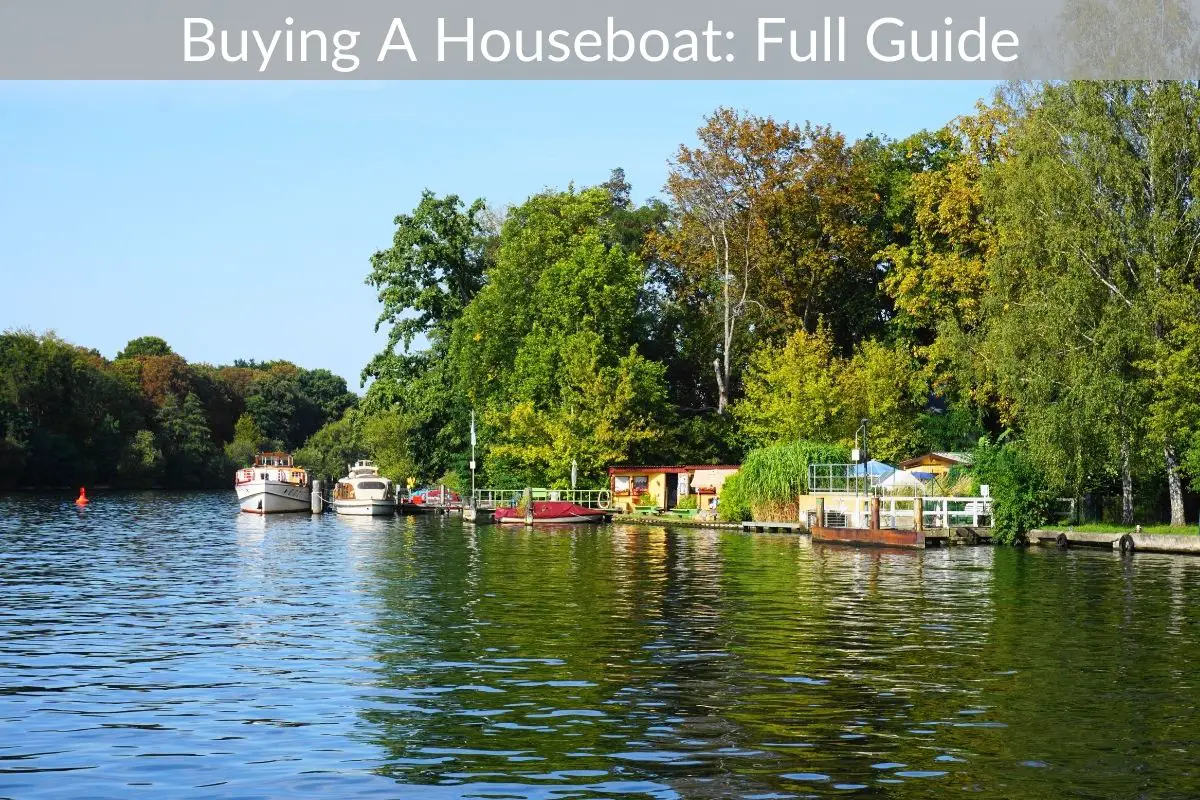
Matthew Robbs
I love the outdoors and especially spending time with my family. Whether on a boat or at the beach, my happy place is near the water.
Recent Posts
Houseboat & Boating Horror Stories: 15 Stories from Real Boaters
In this article I will share some horror stories from real people who have lived on a houseboat. If you want to truly understand how horrible it can be then this is the article for you! If you would...
Is Buying A Houseboat A Good Investment?
Anytime you buy any item you are making an investment. You are putting your hard earned dollars down to get an item in return. For smaller purchases we rarely think about how good of an...
Houseboat Vs Yacht (Differences & Comparison)

August 30, 2022

For most people, a houseboat and a yacht refer to the same thing. But is that the case? This houseboat vs. yacht comparison guide has the answer.
If you are looking to spend some of your time living on the water, you can either purchase a houseboat or a yacht. After all, they are the same thing, right? Not exactly. Houseboats are yachts are two different water vessels.
A houseboat is more of a floating house. It’s specifically built for permanent residence in water. And while it can move around, most houseboats spend the majority of their time moored to a port. Yachts, on the other hand, are designed for leisurely water activities like racing and vacations.
In this houseboat vs. yacht comparison guide, we will take a closer look at how these two water vessels compare. We will explore their designs, the different types available, their floor plans, and their pricing. And by the time you finish reading this guide, you will have a clear idea of the differences between a houseboat and a yacht. Also, this guide will help you to know the right choice for your needs.
We aim to provide our readers with informative, well-researched, and trustworthy content. And this is made possible thanks to our ever-dependable team, composed of respected journalists, experienced researchers and various other experts, drawn from different specializations. So, whenever you come across any type of content piece on our site, you can rest assured that the information you are getting is credible.
Table of contents
One of the main differences between a houseboat and a yacht is their design or appearance. If you take a closer look at a houseboat, you will notice it resembles something that looks like a floating home. And this explains why it’s called a houseboat. It’s a combination of a small house and a boat, thus the name.
A yacht, on the other hand, looks like an ordinary boat. Hence, it’s almost impossible to confuse the two, in terms of appearance, since they are considerably different.
A notable difference in their appearance is the hull. Considering that different water vessels come with different types of hulls, this is also the case with these two. For a houseboat, you will notice that it has a flat bottom hull. The flat bottom hull is designed to enhance its stability in the water since it spends the majority of its time docked alongside a pier, berth, or slip.
On the other hand, yachts come with V-shaped hulls. The V-shaped hull is designed to enhance the vessel’s agility and speed. Unlike houseboats, yachts spend most of their time moving around on the water. And this explains why they come with this type of hull design.
So, if you come across a water vessel that has a flat-shaped hull, it’s highly likely you will be looking at a houseboat. On the other hand, if it has a V-shaped hull, the chances are it’s a yacht or other similar water vessels built for agility and speed.
But, it’s also worth mentioning that some high-performance boats like tournament waterski boats also have flat-bottomed hulls. This hull design is to enable them to skim smoothly on the water surface.
Similar to other water vessels, houseboats and yachts come in different types, shapes and sizes. So, if you are looking to purchase any of these two water vessels, here are the different available types.
There are two main types of houseboats. These are static or non-cruising houseboats and bluewater or cruising houseboats. Each of these two types is built for a specific purpose and utilization.
Static Houseboats
As their name suggests, static households are not built for moving around. Most of the time, they are anchored or moored to a designated spot, which may be a dock or marina. Static houseboats are the most popular out there.
Non-cruising houseboats come equipped with almost all the modern conveniences that you would find in a normal house. However, these boats like propelling mechanisms, meaning you can’t move around in them.
Cruising Houseboats
A cruising houseboat is almost similar to a static houseboat, in terms of design and furnishings. But, it comes with a propelling mechanism, which may be a sail or engine. These are designed for individuals that want to travel around in a floating house. They are mainly built for vacationing.
But, as much as you can move around in a cruising houseboat, you can’t operate it on open or high oceanic seas, meaning you can only cruise with it on small water bodies. Cruising houseboats are not as popular as their static counterparts are.
While there are two main types of houseboats, you will come across numerous types on the market, branching from these two basic ones. Some of the different kinds of houseboats that you will find on the market include:
Pontoons are flat-looking cruising houseboats, mainly made from materials like wood, marine-grade aluminum, plastic, steel or fiberglass. They are mainly designed for vacationers. Pontoons are popular among houseboat lovers because of their practicality, stability and affordable prices. Also, they are easy and safe to operate and their maintenance costs are minimal.
Barges are large houseboats, which can be moved around or permanently anchored at the bay. Barges are the most popular houseboat styles due to their generous amounts of storage space. A conventional barge can accommodate approximately 10 people, making them ideal for families.
Trailerable
Trailerables are houseboats with a narrow and long design. Their narrow design makes them ideal for cruising small river systems and canals. Its name comes from the fact that you can tow it with a vehicle and move it around since it’s lightweight. Trailerables are smaller than the majority of other houseboats. But, if you only wish to spend a short amount of your time in the water, then a Trailerable will be the ideal vessel.
Floating Home
A floating home is a non-cruising houseboat, ideal for people who don’t want to cruise around in their boats. It’s a great retirement home for someone who wants to spend the majority of their time staying on the water. Floating homes are among the cheapest houseboats. They are affordable to build and easy to maintain.
River Houseboat
If you are planning to be living permanently on water, then you should consider building or buying a river houseboat. Houseboats are usually made of fiberglass. Also, they are customizable, meaning you can have them built according to your specifications. River houseboats and you can furnish them with various conveniences.
Full hulls are popular houseboats that you will mainly find in the U.S. Full hulls come with a spacious interior, meaning they can accommodate several people. And thanks to their design, they have higher buoyancy, meaning they can handle rougher waters better than most other types of houseboats.
Just like houseboats, yachts come in different types. Yachts can be categorized based on size and purpose, among others. Let’s take a closer look at the different yachts that fall under each of these categories.
When it comes to size, you can buy a smaller yacht, medium-size yacht, mega yacht or a super yacht. As you may expect, the bigger the yacht, the more it’s going to cost you to buy and maintain.
Smaller Yachts
Smaller yachts range between 10 meters to 20 meters. The majority of smaller yachts are usually privately owned. They are mainly used for water recreational activities like water sports or cruising. These yachts can be sail-driven, motor-driven or a combination of both.
Medium-sized Yachts
Medium-size yachts range from around 20 meters to 30 meters. They are ideal for tourist groups or bigger families. Medium-sized yachts may have a small crew for operating and maintaining them.
Super Yachts
These yachts measure around 30 to 50 meters long. They come with several nice features like sky lounges, Jacuzzis, bars and dining rooms. They can be sail-driven or motor-driven. Superyachts also have a professional crew for serving the people on board.
Mega Yachts
These are the biggest yachts currently. They are usually owned by super-rich individuals since they are quite costly. Some are also owned by organizations that offer water tourism. Megayachts measure around 50 meters long or even more. Similar to superyachts, mega yachts also have a dedicated crew that works round the clock. They are also adequately outfitted with numerous luxurious facilities and amenities like cafeterias, swimming pools, suite rooms, restaurants, gyms, conference banquets and pubs, just to name a few.
Different yachts are built for different purposes and target markets. Some of the different yachts that fall under this category include:
Cruiser Yachts
As their name suggests, these yachts are mainly built for moving around or vacationing. Cruiser yachts come in different types and sizes. They are built for long-distance trips. Luxury yachts usually fall under this category.
Sports Cruisers
These yachts are built for short fast traps and water sports activities. They are quite compact and smaller in size than most of the other yachts. And as you may expect, their accommodation spaces are also limited.
Fishing Yachts
Fishing yachts are purposely built for fishing and leisurely activities. They come with adequate space for storing fishing gear. These yachts come with open decks, to make fishing easier. While you can use them in various fishing spots, they are not allowed for deep-sea fishing.
Expedition Yachts
If you love exploring or touring using water vessels, then expedition yachts are the perfect fit for you. They are built for long-distance water trips and vacations. Expedition yachts are given permission to explore remote and uncharted locations, which is usually not the case with cruiser yachts.
Trawler Yachts
Trawler yachts are also fishing vessels. However, they are built for large-scale or commercial fishing. But unlike ordinary fishing yachts, trawler yachts come with some comforts like sleeping bunks, since the crew may spend several months fishing.
Comfort and Livability
You can live on both a houseboat and a yacht. However, yachts tend to be more expensive compared to houseboats per square footage. Therefore, for the average person, a houseboat provides the most practical, affordable and convenient option.
Houseboat Floor Plan
The floor plan of a houseboat resembles that of a conventional house. As for the yacht, its floor plan resembles that of a conventional boat. For a houseboat, there will be a living room, bathroom, bedrooms and a fully-equipped kitchen, meaning it accommodate an entire family.
Considering that houseboats have a shape that is almost similar to that of a residential home, you will notice that their layouts are also similar. So, in case you live in an area where property prices are too high, you can simply opt for a houseboat. You will have almost similar living quarters at an affordable cost.
Yacht Floor Plan
As earlier mentioned, yachts are mainly designed for leisure activities like water sports, boat parties, fishing and weekend getaways. Therefore, they are mainly designed for vacationing and not long-term living in the water.
As for the floor plan, its layout will be similar to that of a boat. However, a yacht will come with more luxury features and comforts compared to a conventional boat. For instance, most speedboats don’t have indoor living spaces. They usually come with a captain’s seat and a bench. Some may also have a low table, but this feature is quite rare in speedboats.
A yacht, on the other hand, will have several luxurious features, which you can’t find in a speedboat. The main issue with yachts is that interior space is quite limited. While it may appear posh and luxurious, it lacks enough space, meaning it’s not ideal for long-term living on the water. Also, yachts tend to have limited headroom, compared to houseboats.
When you compare the two, you will conclude that a houseboat will be cheaper per square footage, compared to a yacht. If you browse the prices for these two water vessels of comparable size, you will notice that a yacht will cost you considerably more than a houseboat.
Wrapping It Up
A houseboat and a yacht are similar in various ways. Both are built for people that want to spend time in the water. But, they also have considerable differences. A houseboat is more of a floating house, designed for those who want to establish a permanent residence on water. Yachts, on the other hand, are ideal for recreational purposes. So, if you are looking to settle permanently close to a water body, then a houseboat will be the ideal choice. On the other hand, if you are planning on going for a vacation or other water-based recreational activities, then a small yacht will serve you well.

Best Houseboat Fishing Trips

Best Houseboat Food

Best Houseboats For The Money

Best Houseboat Financing
This article may contain affiliate links where we earn a commission from qualifying purchases. The images and content on this page may be created by, or with the assistance of, artificial intelligence, and should be used for entertainment and informational purposes only.
About THE AUTHOR
Brian Samson
I have a deep love of houseboating and the life-changing experiences houseboating has brought into my life. I’ve been going to Lake Powell on our family’s houseboat for over 30 years and have made many great memories, first as a child and now as a parent. My family has a passion for helping others have similar fun, safe experiences on their houseboat.
Trending Now

Tips To Living On A Boat In Key West

Best Used Houseboats

Best Boats For Caribbean Island Hopping

Best Houseboat Marinas
After spending over 30 years on houseboats, the memories and knowledge we've gained will never fade. Learn from our experiences here on LakeWizard. You can read more about us and our team, here .
©2024 LakeWizard. All rights reserved.
You can email us at [email protected]
LakeWizard.com is a participant in the Amazon Services LLC Associates Program, an affiliate advertising program designed to provide a means for sites to earn advertising fees by advertising and linking to Amazon. This site also participates in other affiliate programs including but not limited to ShareASale, CJ, and ClickBank, and is compensated for referring traffic and business to these companies.

Home » Blog » Live on a boat » Is living on a boat right for you?
Is living on a boat right for you?
By Author Fiona McGlynn
Posted on Last updated: August 16, 2023
Living on a boat sounds cool, but is it right for your lifestyle?
With real estate rocketing in cities like London, San Francisco, and Vancouver, a lot of people are ditching their pricey digs for a more adventurous and alternative lifestyle: living on a boat.
Living on a boat can afford you all kinds of benefits: cheap rent, amazing views, and may make you a more interesting person at dinner parties (results not guaranteed).
We lived on a boat for five years and it was a good choice for us, but it’s obviously not right for everyone. So, before you walk out on your sofa bed and five roommates, there are 10 things you should know.
You can save a lot of money on rent!
Is living on a boat cheaper? Yes! Living on a boat is cheap . We spent two years living on a sailboat in a marina in Vancouver with a full suite of amenities (power, parking, high-speed internet access, laundry, showers, workshop) and it only cost us $550 a month in liveaboard slip fees (our next best option would have been an apartment for $1100+).
If you choose to live on a mooring ball, it can cost you even less! In San Diego, we paid $150 a month for a mooring ball.
Usually, the cheapest place to live on a boat is at anchor, which is often free.
Of course, we had to buy a boat (that cost us around $10,000) but over two years, we more than got our money back. By avoiding high rent, we were able to save enough to set out on a three-year trip, sailing 13,000 nautical miles from Vancouver to Mexico to Australia.

Some sample liveaboard budgets:
How much money do you need to live on a boat? It depends on your location, boat, and how comfortable you want to be. We spent between $600- $2,000 a month while living aboard our boat.
- This young UK couple is living on a sailboat for £500 ($570) a month while cruising around the world.
- This young family from San Diego told Insider they pay $2,200 a month to live on a 40-foot boat.
- These San Franciscans are living on a sailboat and spend just a few hundred dollars a month on rent and utilities.
Cost of living on a boat
While living on a boat is very affordable, there are ongoing costs and living expenses to be aware of.
Liveaboard insurance
Liveaboard insurance rates are more expensive than recreational boat insurance. For our 35-foot sailboat we’ve paid:
- $800 a year for liveaboard insurance (sailing in local waters)
- $1,800 a year for liveaboard insurance while cruising (sailing internationally)
While some boat owners we met, didn’t carry insurance, most boatyards will REQUIRE you to have insurance (and will check your paperwork) before hauling your boat out of the water.
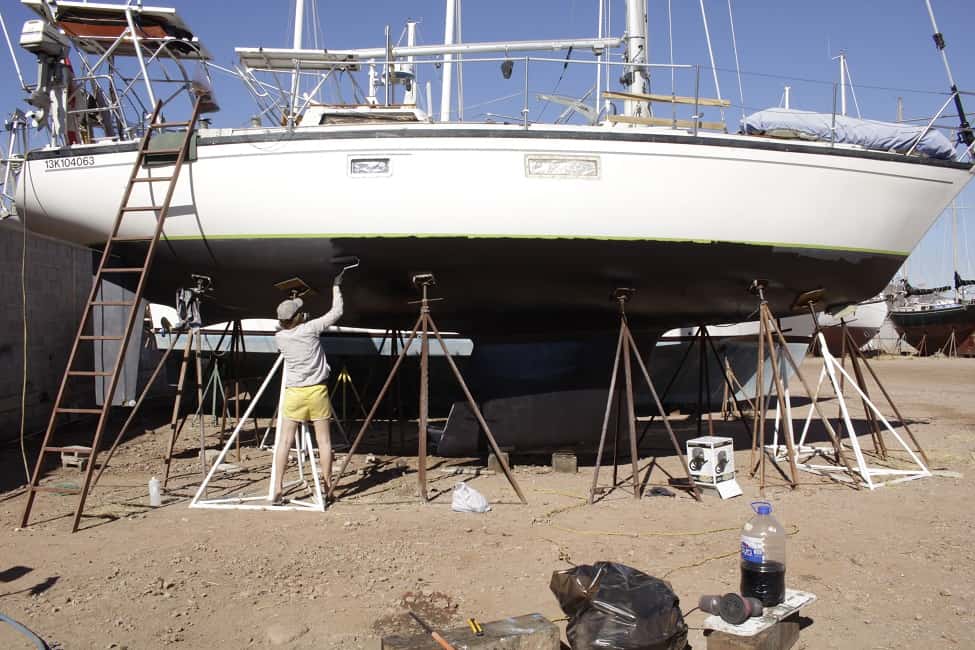
Liveaboard moorage
Liveaboard moorage generally costs more than recreational moorage. Between 2013-2018, we found it was typical to pay $550-750 a month.
Your electricity bill will be a fraction of what you’d pay living in a house. When you live in a very small space (like a boat) you’ll consume less electricity for heating and cooling, meaning you’ll have a lower bill at the end of the month.
You may need to run your engine to charge up your batteries or run high-draw appliances like a water maker or air conditioner. Be sure to factor fuel into your monthly budget.
Many boaters use solar panels or wind turbines which, while pricey upfront, allow you to disconnect from the grid altogether.
Most marine stoves run on propane or white gas, so you’ll want to budget for fuel if you plan on doing any cooking aboard.
Marinas sometimes charge for fresh water. Our boat was designed to hold 66 gallons (250 liters) and we refilled our water tanks once or twice a week. The average person in the US uses 80-100 gallons of water per day ! Refilling our tanks was a chore, so we got better at conserving water.
Another option is to buy a reverse osmosis watermaker which turns seawater into fresh water. We installed one when we were cruising but it cost us over $3,000. There are much cheaper alternatives to watermakers .
You will also have to think about pumping out your septic holding tanks. Many marinas have pump-out stations and charge for the service. In most harbors, it’s illegal to empty your holding tanks into the water.
Pumping out sewage is not only bad for the marine environment, but it also gives liveaboards a bad reputation. So, don’t do it!
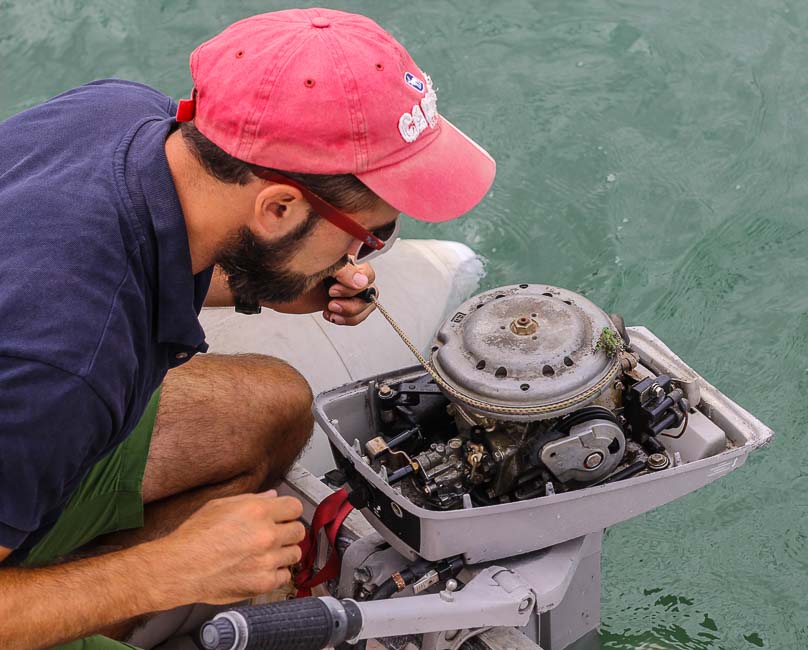
Maintenance costs
Boats are a lot of work, far more than a house. Stuff breaks all the time and you’ll need to be a good problem solver and ideally handy with tools. It’s hard work, but on the plus side, you’ll develop a whole bunch of new skills.
Your maintenance costs will depend on whether you’re doing the work yourself and the condition of the boat.
Generally, marine parts cost three to four times the price of household building supplies. A good rule of thumb is to budget 10% of the value of your boat in repairs, annually.
When boat shopping, remember that a cheap boat isn’t necessarily a good deal and may cost you a lot more in repairs over the long run.
You may get lucky and snag a cheap or free boat , but liveaboard boat prices can run into the six and even seven figures. If you finance your boat, you will have monthly mortgage payments.
Boat property taxes vary by location. E.g., Californians are assessed 1.1% of the vessel’s current value annually.
You can’t trick your partner into living on a boat.
For some people, living on a boat is a lifelong dream, for others, not so much. No matter how romantic you find the notion, do not attempt to live aboard if your partner is not game.
There are plenty of challenges: limited space, leaks, and potentially a lot of motion . Talk your partner into boat living and you may wake up one day to find they’ve jumped ship.
If your partner is on the fence, the best way to find out if moving aboard will work for you is to test-drive the liveaboard lifestyle before living on a boat full-time.

Buying a boat is easy, finding a place to put it—not so much.
It can be very challenging to find a place to moor your boat. The best places to live aboard a boat often involve waitlists and permitting.
Many big cities have liveaboard licensing requirements. As a result, liveaboard marinas often have multi-year waiting lists.
It’s a good idea to call your local marinas and find out if they have available liveaboard slips before searching for a boat.
You may find your anchoring options limited, too. In recent years, many jurisdictions have started cracking down on long-term anchoring, often introducing time limits and requiring anchoring permits.
Don’t buy a boat until you know where you’re going to keep it. Some marinas may turn a blind eye to “sneak-a-boards” but you’re really risking getting the boot at any time.
Some of the best liveaboard cities in Canada and the United States
- Alameda, CA
- The Chesapeake Bay Area
- Corpus Christi, TX
- Portland, OR
- San Diego, CA
- Sausalito, CA
- Seattle, WA
- Tampa Bay, FL
- Vancouver, BC
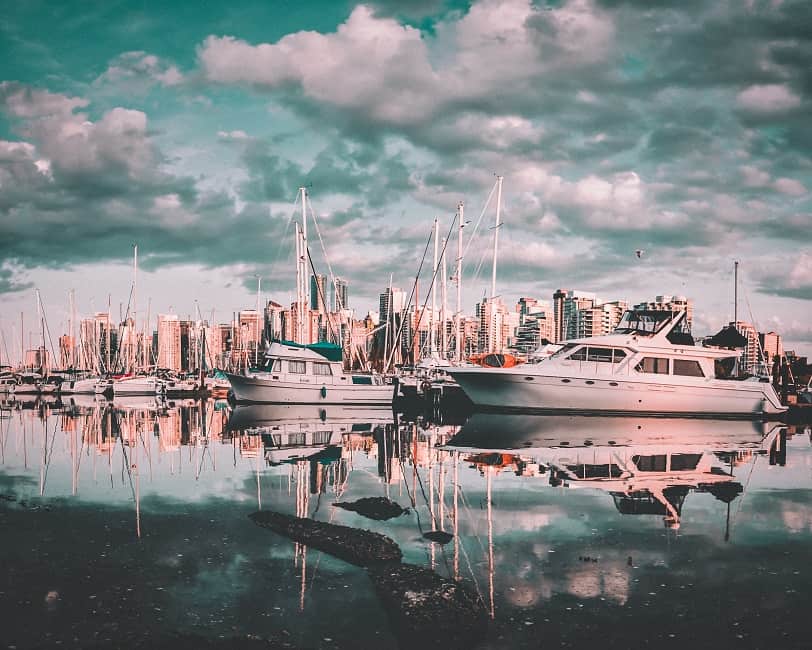
Marinas vs. mooring balls – location will affect your lifestyle
Living on a boat in a marina will be very different from living at anchor or on a permanent mooring buoy. Finding the best place to keep your boat will come down to a few factors.
Some important considerations are things like electricity and water (in a marina slip you will have 24/7 access to both, whereas on the hook you’ll be living off-grid). This can make a big difference, for instance, if you want to have a shower (especially a hot shower ) every day. Doable at a marina, difficult if not impossible on the hook.
Other benefits of dock life include being able to walk off the boat . Going back and forth in a dinghy every day can be a nuisance, especially if you’re transporting pets, bikes, and heavy gear.
If you plan on having a boat dog , easy access to the dock will be especially important.
Other perks of liveaboard marinas are comforts like internet, cable, and laundry.
Often marinas can offer better wave protection (e.g., with break walls), which becomes important in bad weather. In a boat slip, you don’t have to worry about your boat dragging anchor. Also, protection from high winds and wave action will make life aboard more comfortable (as compared with bouncing around in an anchorage).
There are so many factors to consider when deciding between a marina, mooring field, or anchorage (too much to cover here), so check out “Where to live aboard a boat?” for more info.

Personal space – who needs it?! Living on a sailboat versus a house
The number one question people ask us is, “How do you live on a sailboat and not kill your partner?” Unless you’re living on a luxury yacht, there is no personal space on a boat.
Imagine that every time you want to walk from the kitchen to the bedroom you have to ask your partner to move out of the way so you can pass, and that about sums it up.
Also, many boat heads are often less (ahem!) private. We had a CS 24 where the head was literally under the V-berth, which made it very awkward if you had to get up to pee in the night.
That being said, we quickly adapted to not having much space. We became more organized, tidier, and attuned to each other’s needs while living in close quarters.
If having less space is your number one concern, consider looking at trawlers instead of living on a sailboat as you get way more living space and light on a 35-ft. trawler, than you do on a 35-ft. sailboat.
Boats you can live on:
While in a technical sense, you could live on any boat with a cabin, the best boat to live on will offer house-like comforts including a galley (kitchen), head (toilet), and a comfortable berth (bed).
Ideally, it will also have liveaboard essentials like solar panels, a cabin heater, and a big battery bank. Though you can always add these later.
Obviously, the size of your boat is an important consideration. As a single person, you may be able to get away with living on a small boat (e.g., a 24-footer) whereas the best liveaboard for a family might be 40-foot plus.
6 types of boats you can live on
There are six different kinds of boats you can live on and they all vary in size, comfort, seaworthiness, and cost.
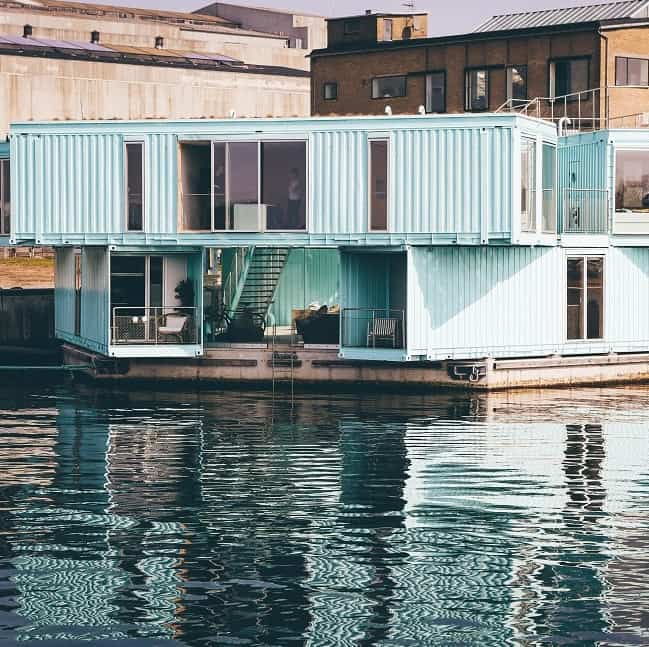
Floating homes
As the name would suggest, floating homes are a type of boat that will give you the most house-like living experience. However, they are generally permanently moored and not convenient to move or travel with. They can cost as much as land-based houses to purchase.
Houseboats or canal boats
Houseboats and canal boats offer space for comforts like a full-size fridge and kitchen. They’re great for travel in protected waters and in the case of houseboats, can even be beached on the land.
Tugboats and Trawlers
Tugboats and trawlers have decent headroom and can accommodate comforts like big-screen TVs, full-size kitchens, showers, and sometimes even bathtubs. As most living space is above the waterline, they also tend to have lots of natural light.
Sailboats are a bit like the basement apartment of liveaboards and often do not have fridges, showers, or hot water. However, they also generally cost a lot less to purchase than motor vessels and you can travel long distances without fuel costs.
Catamarans are double-hulled sailboats that allow you to sail around the world in comfort but come with a significant price tag. The bridge between the two hulls creates plenty of open airy living space up top with bunks down below in the hulls. However, not only are they expensive to purchase, but they also take up twice the space and require twice the rent and maintenance cost.

The big compromise: creature comforts
Most inexpensive liveaboard boats do not have hot showers and laundry . They also have tiny bathrooms, kitchens, and hardly any storage space.
If you can’t bear the thought of giving up bubble baths, then living on a boat full-time is not for you. If, however, the idea of a minimalist, multi-purpose, stacking dish set cranks your gears – then you’re probably on the right path.
Making the most of small spaces can be a lot of fun if you’re up for the challenge.
Bear in mind, that some boats will be better set up for living aboard than others (we have a list of the best boats for living aboard) .
You will have the coolest neighbors
Boat living tends to attract some interesting people: artists, musicians, and engineers. Nick Cave and Rod Stewart both lived aboard in the U.K., as did Alan Watts in Sausalito.
Boat life also fosters a very tight sense of community. You’re far more likely to get to know your neighbors (which we think is a good thing!) .
Bring your home on weekend getaways
Who needs a second home when you can take your first home with you? Perhaps it’s kind of obvious but it’s great to throw off the dock lines and go cruising on the weekends.
It should go without saying, but learn to sail (and be competent with your boat) before moving aboard. Not only will you need to be able to move your boat around for safety and practical reasons (e.g., going to and from the gas bar) but also it’s a wonderful activity.
While living on our boat we got to visit so many beautiful places in our local Pacific Northwest waters. As we gained sailing experience, we began to think about traveling farther afield.
Many of our liveaboard neighbors were experienced bluewater cruisers. They inspired us to embark on a sailing trip to Mexico and the South Pacific and gave us a lot of help along the way.
If you think you might like to buy a bluewater sailboat and go cruising or sailing around the world, living aboard is a great first step towards that dream.
Leaks and climate control will become your obsession
It’s a lot harder to live on a boat during the cold winter months.
Boats leak. If you live aboard in a wet city you’re guaranteed to wake up one morning with a soggy pillow or mystery puddle on the kitchen counter thanks to a leaky hatch or deck fitting.
Mold is another basic fact of life aboard and can become a major issue. Many full-time liveaboards opt to run dehumidifiers and heaters to keep humidity in check.
The good news is that both leaks and humidity are totally manageable if you stay on top of it.
If you live in a place with extremely cold winters (regular freezing temperatures) it gets even harder. For instance, on the lakes in Ontario, Canada, it’s sometimes necessary to run bubblers to prevent ice damage to the dock and boat.

The best view in the city
If the idea of living on the waterfront has always appealed to you, living aboard is a way to get those breathtaking views on the cheap.
It’s cliché but the best thing about living aboard is settling into the cockpit at the end of the day with a cup of tea or glass of wine and watching the sunset.
We found life on the water infinitely more peaceful and a great escape from the bustle of city life. If you’re up for an adventure, living on a boat full-time can be a great way of life.
Fiona McGlynn is an award-winning boating writer who created Waterborne as a place to learn about living aboard and traveling the world by sailboat. She has written for boating magazines including BoatUS, SAIL, Cruising World, and Good Old Boat. She’s also a contributing editor at Good Old Boat and BoatUS Magazine. In 2017, Fiona and her husband completed a 3-year, 13,000-mile voyage from Vancouver to Mexico to Australia on their 35-foot sailboat.
Sarah Smith
Friday 2nd of April 2021
Thanks for explaining that catamaran sailboats are going to be comfortable and provide a lot of living space. My husband and I had thought that we could only live on houseboats, but with your information, I would like to start looking into the catamaran sailboats. We'll have to find a luxury boat hire so that we can live on the water for a bit and decide what we would like to buy.
Friday 29th of January 2021
That is so amazing that even including parking, internet, and showers, living on a sailboat only costs $550 a month. My husband and I would like to downsize and explore now that we have both graduated college. We'll start looking for a sailboat and open parking spaces.
What if someone wants to live on a motor yacht as a live aboard, just moored at the marina. Not sailing around due to fuel consumption, just living in it. Could that be an option. I was thinking of looking into the 75 to 100' range for motor yacht but for live aboard moored. is it possible? Thank you for this article it was very informative. I am a Canadian from Ontario, currently living in Vancouver now. Thanks again.
Hi Jordan. Most live aboard marinas (the exception being floating home communities) have rules that the vessel has to be able to move under its own power. So as long as your yacht had a working engine, you would be fine. Having lived aboard in Vancouver, I think you might have trouble finding a 75 to 100' slip to moor your boat in. Most slips fall in the under 50 foot range. Thanks for reading and good luck in your search!
Friday 9th of February 2018
Thanks for the insight! We're trying hard to get liveaboard status at our marina in Sausalito and having the toughest time. Hoping persistence wins!
Thursday 1st of March 2018
Keep up the hustle! It's can be tough to find a spot but so worth it when you do. I seem to remember there's a bylaw that requires all SF marinas open 10% of their spots to liveaboards. I could be wrong but might be worth looking into. Also, we loved Valejo Yacht Club - great community run yacht club and they had spots a couple of years ago. Keep us posted on how it goes. Lots of our readers are SF based. If you wanted to guest post on your experience finding a spot in SF, that would be a very interesting read.
Friday 4th of August 2017
No worries, I searched the image on google and found that a mutual friend posted it on his photography website. I was just curious.
Terms and Conditions - Privacy Policy

- Search Used Yachts For Sale
- Search Boats By Brand
- Search Boats By Type
- Search By Location
- Search By Price
- What's My Boat Worth?
- Search Boats Just Listed
- Small Yachts
- Custom Sport Fishing Boats
- Finance A Boat
- Amer Yachts
- Aquitalia Yachts
- Cabo Yachts
- Century Boats
- French Yachts
- Gulfstream Yachts
- Hatteras Yachts
- Shelter Island Yachts
- Solaris Yachts
- Sunpower Yachts
- Sunreef Yachts
- Vela Boatworks
- Virtus Yachts
- Why List With United?
- Why Own A Boat Or Yacht?
- Custom Website For Your Yacht
- United Sold Boats
- Buy A Yacht With Crypto
- Find a Yacht Broker Near Me
- Search For Broker By Name
- Meet The United Support Team
- Our History
- Fort Lauderdale Boat Show
- Stuart Boat Show
- Miami Boat Show
- Palm Beach Boat Show
- Other Boat Shows
- Yachting News
- Yacht Closing Services
- River Forest Yachting Centers

Search All Yachts
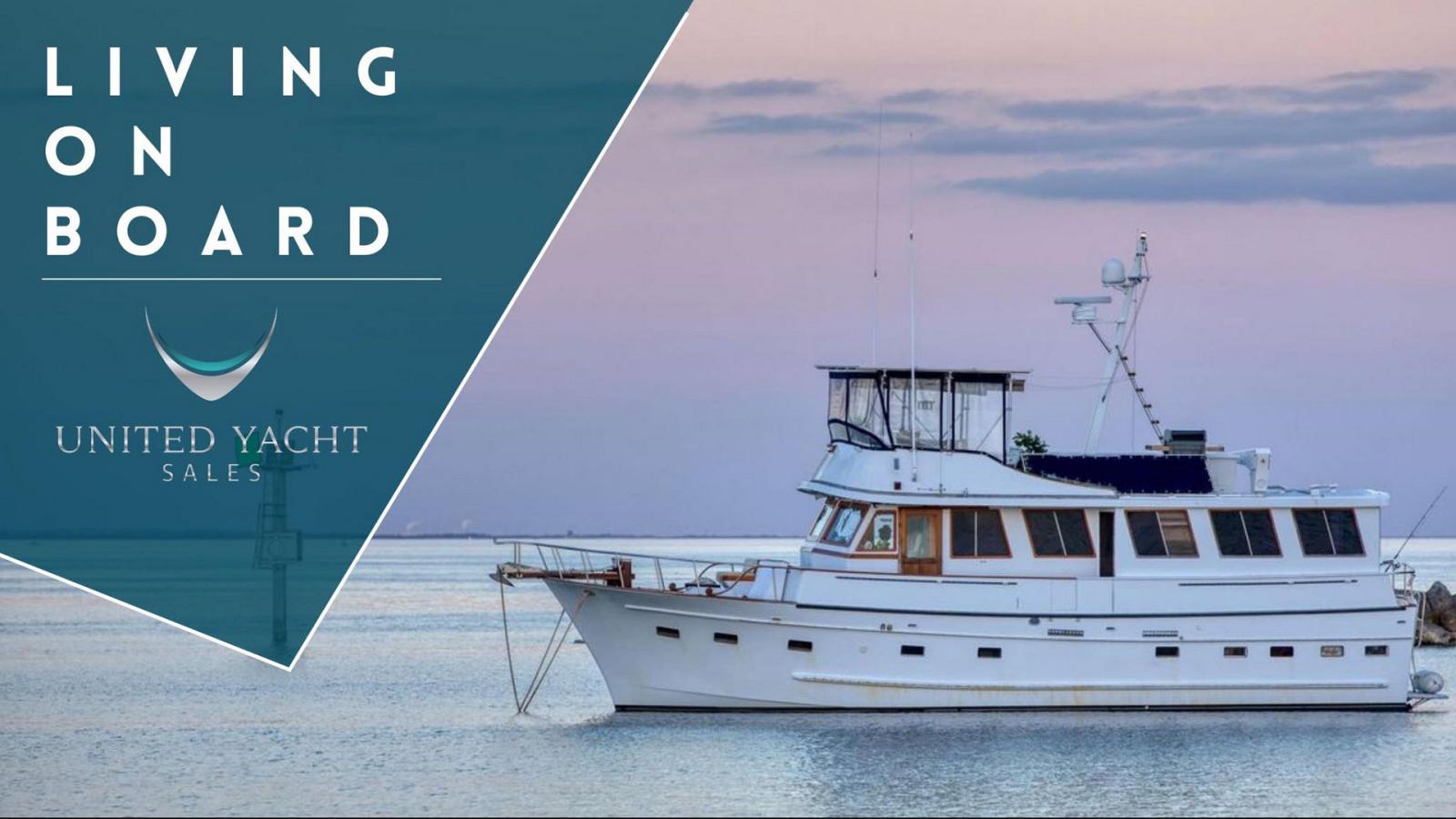
Liveaboard Boats: Frequently Asked Questions
By Rob Bowman | Posted On Jul 06, 2021 Updated On Jun 25, 2024
"Can someone call me about living at a marina on a boat? I want to liveaboard and need to get an understanding of the costs." This is a very common inquiry received at United Yacht Sales, but also one that has been more frequently asked over the last year as the popularity of living on a boat has become mainstream.
As real estate prices continue to rise and the process of purchasing a home becomes more difficult with the lack of inventory, the popularity of living on board is increasing dramatically. And why not? Living on board a boat offers freedom to explore the coast on a whim or anchor in a secluded cove for an unforgettable night. The allure of life at sea, combined with the exorbitant prices of home ownership, is helping to fuel a boat-buying boom that was already underway. Consider this:
- According to Realtor.com. the typical home listing price hit a new high this year, up 15% compared to 2020.
- Available homes for sale declined 51% in Spring 2021 compared to the previous year according to the Home Buying Institute.
- The NMMA Marine Statistical report showed boat sales at a 13 year high in 2020 and levels have not dropped in 2021
'We're getting at least one call a week in regards to people wanting to live aboard their boat at our marina," says Jordan Clark, Manager at the Chesapeake Harbour Marina in Maryland . "Without a doubt there is more interest for liveaboards than we got several years ago."
The liveaboard-lifestyle might seem like bliss when dreaming of sunsets at anchor and traveling to new marinas, but living on a boat comes with its own set of unique challenges and sacrifices. There are hundreds of videos on Youtube dedicated to living at sea, but creator 'Sailing Ruby Rose' offers a firsthand perspective of the highs and lows on living on board. "It's not always diving into crystal clear water, it's not always exploring an island paradise," says Terysa, one half of the Ruby Rose Yacht team.
With over 200 professional yacht brokers worldwide, United Yacht Sales can assist you with navigating through all of the liveboard boats for sale listed on the brokerage market. Please call our main office at 1-772-463-3131 and we can connect you with a liveaboard specialist that can help you determine what the right boat is for you. Below are some frequently asked questions about living onboard your boat that we hope you find helpful.
Is It Cheaper To Live On A Boat?
Whether or not it is less expensive to live on a boat instead of a house really depends on your standards and expected quality of life on board. The median house price in 2021 was $380,000 and while many boats can be purchased for far less, you are also going to likely sacrifice quality, space, or purchased an older vessel. The cost to own a yacht can be substantial when you begin adding in annual maintenance, marina fees, fuel costs, and unforeseen expenses. Marina fees at Chesapeake Harbour Marina, for example, are $3 per foot, per day for the daily rate.
What Is The Best Liveaboard Boat?

United Yacht Sales broker Steve Gallagher has spent thousands of hours traveling and living on board multiple boats with his family and has opinions based on his experiences. The vessel in the above picture is a catamaran Steve owned and sailed over 10,000 nautical miles over a 2 year period.
"The first thing one must do when determining what kind of liveaboard they want to shop for is to identify the mission," he says. "Some liveaboards never leave the dock and others cross oceans and cruise the world. Every boat is a compromise so you have to factor in every aspect of the type of boating you plan to do and then start narrowing down the list of possibilities. Once you have determined the cruising area, look at factors like draft, max height, range needed, etc... those factors alone will rule out many boats not suited to your goals."
He continued, "Choosing the right boat depends on the situation. A house boat is great for living aboard at the dock or for use fresh water lakes but not an option for real cruising. Personally, I decided on a Sailing Catamaran for extended ocean cruising. A cruising sailing catamaran like a Leopard Yacht or Lagoon 45 are capable of crossing oceans and taking you anywhere on the globe."
"The design of a catamaran has many unique features that make it such a versatile a desirable liveaboard world cruiser. The twin hulls and large beam give you an enormous amount of living area on an incredibly stable platform both underway and at anchor. They also have a shallow draft and allow for cruising many areas not possible in a motoryacht or deep draft monohull sailboat. In addition, catamarans have plenty of deck space on the hardtop to carry a large amount of solar panels and more solar means more power. Another advantage of catamarans is safety. Catamarans unlike Mono hulls, are virtually unsinkable and they also have two engines and two rudders for redundancy. Cats are great for open ocean cruising but not for something like cruising the Great Loop on the inland waterways. Power catamarans have also become more popular in recent years in all price ranges including Horizon on the luxury side, and Aquila Boats being a bit more economical."
Is It Easy To Find A Marina to Live In?
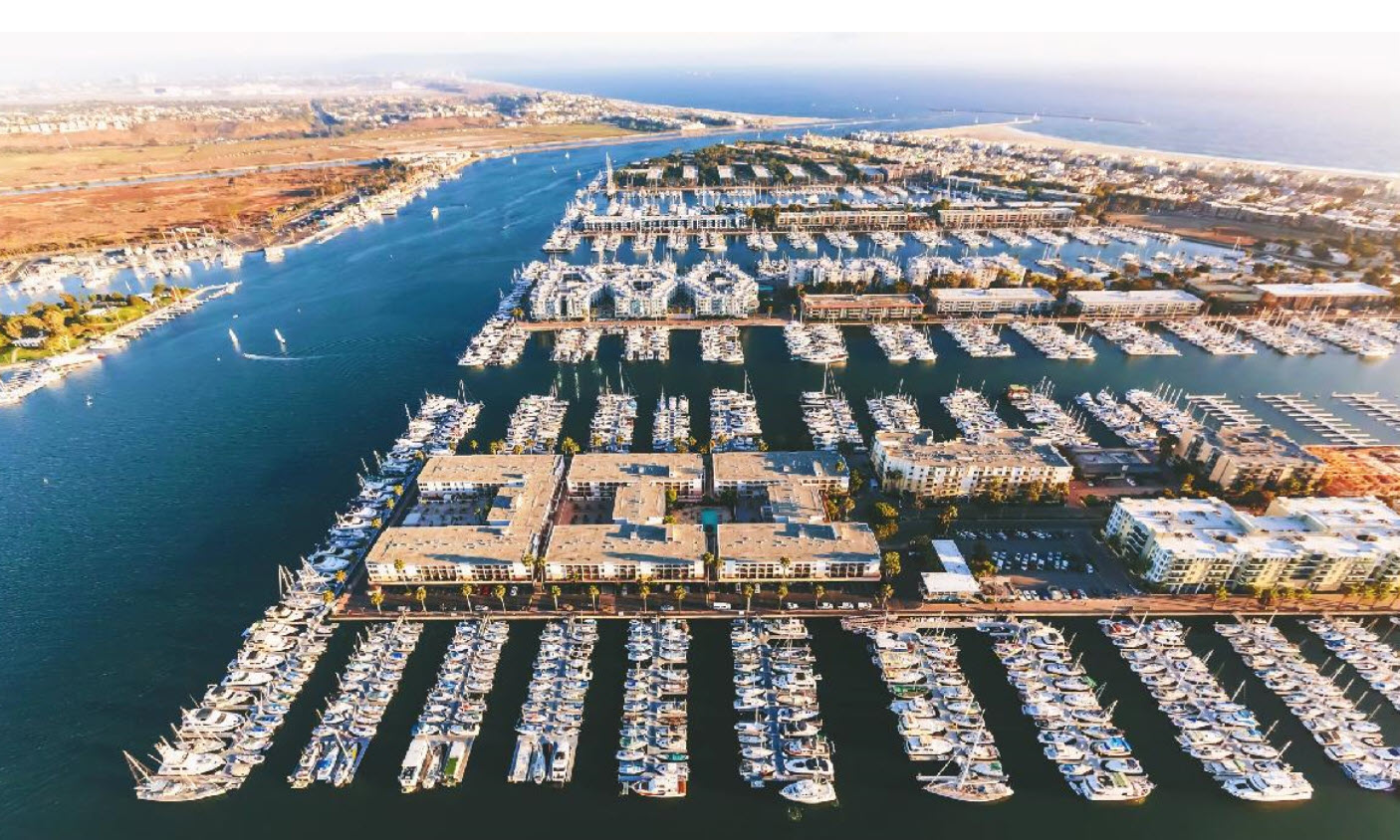
Finding a nice marina to let you live on board can be a challenge. For this article, we called 10 different marinas up and down the east coast and only 2 of them accepted liveaboard residents. Larger marinas that cater to bigger motor yachts , for example, were less likely to offer liveaboard opportunities even though boat owners had the option of purchasing an annual slip. Obviously the main things to consider when choosing a marina are the amenities such as electrical, laundry facilities, fuel availability, and access to deeper water. The best advice when trying to find a marina to liveaboard your boat is to spend the time on Google Maps, going up and down the coast you're considering, and call each one for options. Many of the marina managers we talked to were happy to give recommendations.
What's The Best Advice For Anyone Looking To Live On Their Boat?
"Determine the Mission," Steve continued. "Figure out how much time will be spent underway versus time at the dock or at anchor. Talk to someone that has done it and get some real world advice and feedback. Go on several different types of boats and get a feel for each one. If possible, charter a similar boat to what you are considering buying and see how you like living on it before you buy. Just do it... Buy what seems to suit you best and make the most of it. It will be one of the most rewarding things you will ever do."
What Is The Best Brand Of Liveaboard Boat?
"If you're considering living on board and want to be comfortable, I suggest a trawler-style boat like a Fleming or Marlow Yacht ," said Captain Jeff Palmer, longtime captain, professional broker, and new owner of United Yacht Sales. "There are a lot of inexpensive liveaboards out there, but they aren't comfortable."
"I've also got a 64-foot Grand Alaskan that is an excellent liveaboard option," he continued. "I would venture to say a boat that has most of the shore-based amenities, galley space, nice master berth, spacious salon, and aft deck, as well as a simple, straightforward engine room setup for the owner to his own maintenance, would be what I would look for in a boat to live on."
"As you know most liveaboard sailboat owners are cost conscious and do most of the work themselves," Jeff continued. Being uncomplicated, uncomputerized engines, water makers, and monitoring systems are a big plus for liveaboard owners. The whole point is a simple, free lifestyle and waiting on contractors to do work or not being able to fix something while in a remote area, is not an enjoyable experience. Most liveaboards are not sitting in St Barth's or Martha's Vinyard unless they have a ton of disposable income, then all of these are non-issues. Money cures everything or most everything in boating!"
Enjoy these articles about the current market and listing/selling your boat!
- Living On A Boat: Guide To Choosing The Right Liveaboard
- It's Still A Seller's Market, But For How Long?
- Why Are Yachts So Expensive?
- How Much Does It Cost To Buy A Yacht?
- Odor Offenders Keeping You From Selling Your Boat
- Questions About Boat Loans
- Reasons Not To Rush Your Yacht Listing
- What Is The Best Sportfishing Boat?
- How To Help Sell Your Yacht Faster
- Tips On Buying A Yacht
Interesting Boating Links
Worldwide yacht sales.
- Boats For Sale Corpus Christi TX
- Yachts For Sale in Alabama
- Boats For Sale Puerto Rico
- 15 Million Dollar Yacht
- Boats For Sale Bahamas
- Yachts In Illinois
- Yachts For Sale Washington
- Million Dollar Boat
- New York Yacht Brokers
- Solar Powered Yacht
- Nicest Yachts
- Yacht For Sale NJ
- Used Boats For Sale in Maryland
- Used Boats For Sale in VA
Luxury Boats & Yachts
- Yachts For Sale Houston
- Yachts For Sale by Price
- Luxury Center Console Boats
- Viking Sportfish For Sale
- Azimut For Sale
- Used Hinckley Boats For Sale
- Rybovich Yachts
- Prestige Yachts For Sale Canada
- Used Small Boats For Sale
- Used Bertram Boats For Sale
- Trawler Boats For Sale
- Yachts For Sale Near Me
Popular Builders & Models
- Hatteras 60 Motor Yacht
- Aquila Power Catamaran
- Pilothouse Trawler For Sale
- Flybridge Boats For Sale
- Expedition Yachts For Sale
- Sport Boats For Sale
- Used Pursuit Boats
- Used Cabin Boats For Sale
- Catamaran Fishing Boats For Sale
- 50 Foot Viking Sport Fisherman
- Motorsailer For Sale
- Edgewater Boats
- Hatteras 54 For Sale
Trending Brands & Types
- Sunseeker For Sale
- Ocean Alexander Yachts For Sale
- Hatteras Motor Yachts For Sale
- 68 Bayliss For Sale
- Nordhavn Boats For Sale
- Hatteras Sportfish
- Used Luhrs For Sale
- Used Boston Whaler
- Downeast Boats For Sale By Owner
- Vanquish Yachts For Sale
- Silverton Yachts
- Hcb 65 Estrella Price
SEND UYS A MESSAGE
Recent posts.

Sep 01, 2024
The Hot List - September 2024

Aug 27, 2024
What Is The Best Flybridge Cruiser?

Aug 16, 2024
Your Yacht For Sale Now Featured on SuperYachtTimes.com

Aug 07, 2024
List Your Yacht Before The Fall Boat Show Season
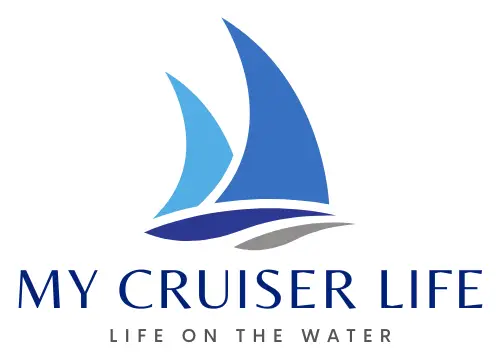
My Cruiser Life Magazine
Living On a Boat Full Time — What to Consider Before Living Aboard
Let’s talk about real-life boat ownership and living on a boat full time. My wife and I have lived on our boat for nearly eight years, doing everything from full-time living on a boat in a marina to cruising The Islands of The Bahamas for months.
For starters, everything you’ve ever wondered about living on a boat probably doesn’t scratch the surface of everything you’ll learn. This lifestyle isn’t for everyone; for every wonderful day on the water, there’s a stressful situation or broken boat part.
So what does living on a boat full time look like? Here’s a glimpse into the world of the liveaboard.

Table of Contents
Should i live on a boat absolutely yes, here’s why (pros of living on a boat), never, in a million years, should anyone ever live on a boat (cons of living on a boat), there’s more than one way to live on a boat, there’s a steep learning curve, it’s kind of like camping, constant maintenance and cleaning, weather drama, the legalities of the live aboard life, cost of living on a boat, paths to moving aboard, living on a boat full time faqs, what are the pros and cons of living on a boat.
It is often said that there’s a wide gap between the romantic vision that many people have of the liveaboard lifestyle and the nitty-gritty reality.
Here are the pros and cons of living on a boat full time, taken from our personal experiences.
Living on a boat is sometimes even better than your most romantic vision. Dolphins frolicking while the sunsets, tropical drinks in your hands, and nothing but crystal clear water between you and the most spectacular island beach you’ve ever seen. Yes, that all happens, sometimes.
- Freedom to go where you want, when you want
- Travel as much or as little as you want
- Take your house with you as you move
- Changing scenery, waterfront property where ever you go
- Wildlife visits—seals, whales, dolphins, birds
- A friendly community of other boaters
- Learn to live more simply, with only the necessities
Everyone has good days and bad days. We’ve often described boat life as having high highs but very low lows. The peaks and valleys of boat life (crests and troughs?) are just much farther from baseline-normal.
For every dolphin, there is a broken toilet joker valve leaking sewage onto the bathroom floor.
For every idyllic island beach, there is a fouled diesel filter that needs changing.
For every smooth downwind passage, there is a sloshy, windless mess of flapping sails making everyone on board seasick.
The list could go on and on and on.
- Constant maintenance and cleaning
- Difficulty finding skilled, professional labor
- Small spaces, no storage, no privacy
- No dishwashers, washing machines, dryers (usually)
- Away from docks, you always have limited power and water
- Constant exposure to the weather
- Tax and insurance issues
Common Issues with Moving Onto a Boat
Here are some of the biggest issues we have noticed from our experiences and those around us. While everyone’s experience of living on a boat full time differs, everyone seems to have similar issues.
First, it has to be said that everyone’s experience is different. And that’s most obvious by looking at what sort of boat they choose and where they choose to live on it.
Many books have been written on the subject, and most like to divide boaters into three groups based on their budgets. There are the high-lifers who can afford to buy a new or newish boat that is large and comfortable. They can afford to live at a resort marina and likely hire professionals for most maintenance and cleaning tasks. They likely spend most of their time in marinas if they travel far.
Then there are the Goldilocks boaters—not too big, not too small—making up the “middle class” of boating. There’s a healthy mix of DIY projecting with some professional help on the big projects. They might liveaboard at a marina or travel full-time. They might live at docks, anchor, or a mix.
And then there are the budget boaters. Cheap boats are easy to come by if you’re willing to use DIY labor to fix them up. They are most likely to anchor out to minimize costs.
All these people live very different lives on their boats, but does it matter? The costs are astronomically different, but they could be visiting the same ports, seeing the same sights, and even sharing the same experiences.
What’s most amazing is how everyone perceives their liveaboard situation. I’ve been to dock parties where couples on 60′ catamarans complain that they have no personal space and must take a break from being on the boat together after a few months. Meanwhile, I know a family of five (plus two dogs) that live on a 40′ monohull with less than 1/3 the space of the catamaran. They have issues, but they’re pretty happy five years later.
(Speaking of catamarans, check out my recommendations for liveaboard catamaran options.)
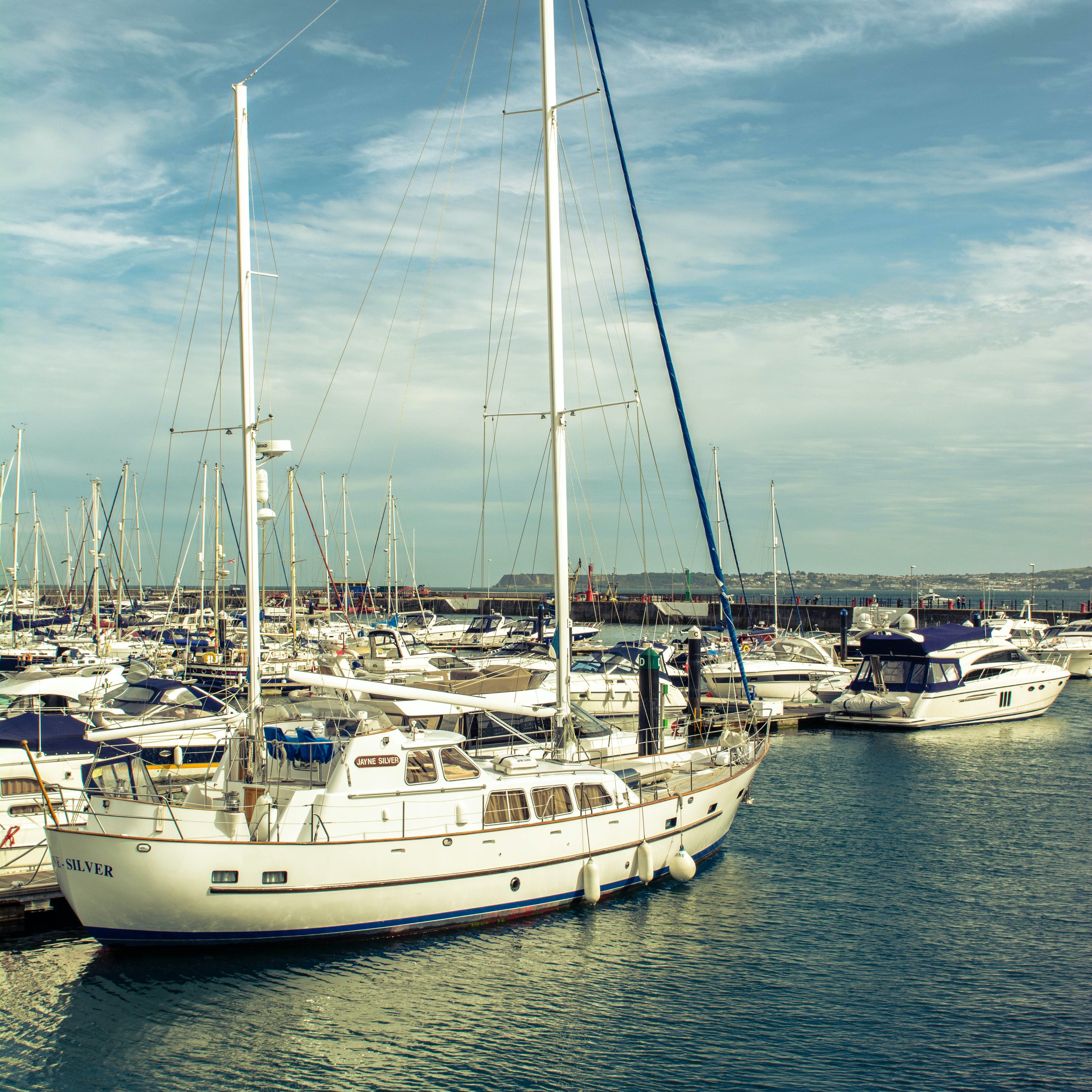
Year one of boating is the worst. There’s so much to learn; it’s all new and different than anything you’ve done before. There are all the sailing terms you must learn, but there are also boat maintenance tasks and understanding how all the systems on your boat work. Then there are the basics of seamanship and how to operate your vessel safely. It is a lot to take in.
And the basics of living on a boat are different from land life. Your kitchen (galley) is much smaller. The toilet doesn’t flush like a regular land toilet. You’re always thinking about minimizing water use when showering or doing dishes. If you turn too many electrical items on, circuit breakers pop. The list goes on and on, and when you’re new, it’s stressful.
Once you’ve got the kinks worked out, learned your boat systems, and successfully traveled and lived on your boat for a while, things get much better. You know more, your boat is set up the way you need it, and you have the confidence to start enjoying yourself. Some people take a few months, some a year, and, unfortunately, some never get there.
Boats are small spaces, but the truth is that living on a boat is more like camping than most boaters like to admit. You get by with only a few items in your wardrobe. You skip showers since you don’t always have hot water. You don’t have space for all the luxuries of home. No dishwasher. No washing machine. Everyone is occasionally uncomfortable onboard, whether from the weather or the cramped quarters.
Boats are also hard on relationships. While there’s something romantic about being cozy and alone together at sea, it isn’t so romantic on day five, or thirty, or sixty. Personal space is non-existent on most boats. It’s inevitable that your significant other—or anyone else—will drive you nuts after some time. Boats have ended more than one marriage that we know of.
The cramped living space on a boat poses other problems, too. Downsizing is important because you simply can’t bring it all with you—there’s no storage space. What is important, what’s nice to have, and what will you use on a boat? Living on a boat forces you to live with the minimum and acknowledge what you need to survive.
Living on a sailboat is, of course, drastically different than living on a luxury yacht. But all these problems seem relative, and no matter what size your boat is, everyone has the same complaints.
Boats are always trying to sink and fall apart. The ocean helps them with its corrosive saltwater and constant motion. The only thing keeping it afloat? You, the lowly and unprepared new boat owner. Yikes!
Even if you have mechanics and boatyard workers do most of the big projects for you, there’s still a ton that you’ll wind up doing on your own. Just day-to-day cleaning on a boat is a big deal. Everything is more difficult and takes longer than it does on a house.
Somehow, boats seem to get dirtier faster than houses do. From polishing the hull, shining the stainless, varnishing the teak, and scrubbing the scum line to everyday things like dishes, sweeping the floors, and cleaning the bathroom, boats are dirty, and it takes time to keep them clean.
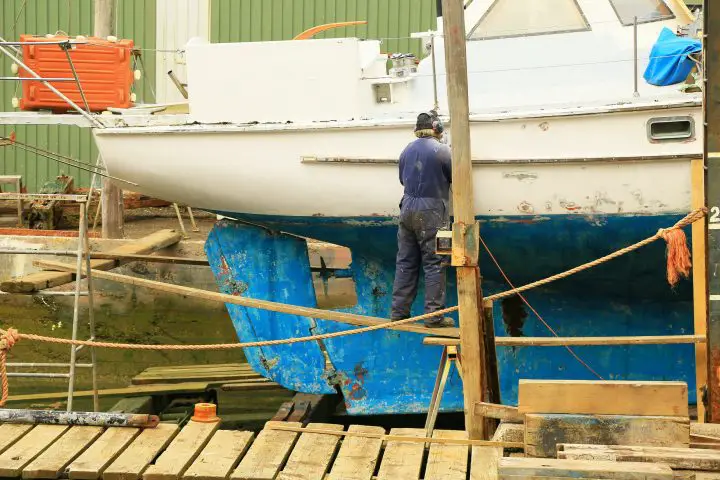
The weather plays a bigger part in your life than you’ll even imagine. Most of us pay remarkably little attention to the weather when we’re on land. If it’s hot, we might just minimize our time away from air conditioning. If it’s raining, it’s a minor inconvenience. We never think about the wind or tides.
But everything on a boat revolves around the weather. Every day we look at the weather for the upcoming week. Forecasts are often inaccurate, so we expect it to change. But what should we be ready for? When cruising, we often track weather systems over a week away and start planning.
This week, it says we might get gusts to 52 knots (!!!) from the southwest with heavy rain and thunderstorms. We’re anchored and away from the dock. Will our anchorage be protected from winds like that? Is the holding good here, or is there a safer place we should move to? Should we think about moving there early in case it fills up with boats?
We go through this exercise every week or two, no matter where we are. When approaching an anchorage, it’s all about the wind direction, tide level, and whatever else is happening. Are we okay with being stuck here for a few days if it’s foggy? A week? What if we need south winds to reach our next destination, but the forecast only has east winds? Do we wait or change our destination?
The amount of attention it takes and the flexibility of your schedule is mind-boggling to most landlubbers. When friends want to visit us, we tell them we can meet them in a specific place or at a specific time, but not both. If you want us to meet you, you’ve got to be flexible too!
What do you legally need to do to live on a boat full time? Most people’s home or apartment is their legal residence and domicile. It’s listed on their driver’s license, and it’s where they vote and pay taxes.
How will all these issues play out when you move onto a boat that moves around? There are mail forwarding services that allow you to set up residency. We use St. Brendan’s Isle in Florida since we were already Floridians, but there are also similar services in other states. This at least gives you the ability to have a driver’s license and vote.
Taxes are a little more complicated. You can register the boat at your address in Florida, but each US state collects its own use tax. If you use your boat in their state for over a few months, they want to tax it. It’s not a problem if you move around, but what if you want to leave your boat in New York for the summer? Then you might have to register it there and pay taxes.
Additionally, many counties in the US collect personal property tax on boats. We know of several places where if you are in the county on January 1 st , you’ll owe the county property tax. If you were one county away where the tax happens to be zero, you would owe nothing. Tricky!
Recreational boat insurance is another matter of concern. It used to be fairly easy to insure a boat, especially a cheap old boat. If you have a homeowner’s policy, you can easily add the boat. But if you’re a liveaboard with no real land address, getting insurance is becoming a problem. If the boat is too old, you’re traveling to distant ports, or the boat is very large, and you’re first time boat owners, it can be hard to find an underwriter.
Do you even need insurance? Many marinas and boatyards now require it. Gone are the days when you could sail the world and “self-insure.” But, honestly, those days never really existed. If your uninsured $5,000 sailboat drags anchor and puts a gash in a $5 million yacht, a serious legal headache will follow. Many owners of older vessels keep “liability-only” insurance, but even this is getting less affordable and hard to come by.
Many folks who want to try boat life are understandably curious about the average cost of owning and buying a liveaboard sailboat . Is it cheaper to live on a boat than a house? That’s a tough question to answer. For one thing, people’s expectations and their needs for comfort and security vary widely.
Both houses and boats can be found for about the same amount. If you’re in the market for a $250,000 house, you could find a nice boat for that amount. It would, of course, be much smaller and—unlike the house—be a terrible investment. So while you might be able to get a loan for a house (which makes excellent collateral for the bank), getting a loan for a boat would require a bigger risk on the part of the bank and therefore cost you a lot more.
On the cheaper end, you could find a fixer-upper boat on Craigslist or Facebook Marketplace for far less than a neglected house. A house will always have some value based on the land, whereas a boat can become valueless. It’s not uncommon to hear of people getting free boats abandoned in boatyards, making ridiculously low offers on neglected vessels, and getting large boats for a few thousand dollars. People are always wondering how to get rid of an old boat .
These fixer-uppers have their own stories, of course. Many YouTube channels are dedicated to the cheap boat fix-up scheme. Project boats can be wallet-shrinking and soul-sucking. Taking on a project is a good way to lose a lot of money, along with years of your life and any interest you ever had in boating. Project boats are not for most people.
Both boats and houses have taxes and insurance, so those costs are probably very similar. Tax laws vary by state and county. In some places, you won’t have to pay any tax on your boat except for the initial sales tax at the time of purchase. You will have to pay an annual personal property tax in other locales.
You’ll also have to pay for boat parking . Marina, mooring ball, or in the boatyard—all will come with a monthly bill. The house or apartment will not have storage fees, so there’s no equivalent here. But, if you bought a cheap boat for cash and are only paying monthly liveaboard slip fees, this might be less than a mortgage payment would be.
If you’re traveling and anchoring, you can generally do that for free. However, most cruisers spend a few nights a month at marinas. That averages about the same amount they’d pay for monthly dockage since nightly transient rates are high.
Both boats and houses have maintenance and upkeep expenses, but boats generally have more. It’s generally estimated that you should budget ten percent of the boat’s purchase price for annual maintenance. If you bought a $50,000 boat, this would be $5,000 yearly. That holds for most boats, but year one will be higher as you fix neglected items and make your upgrades.
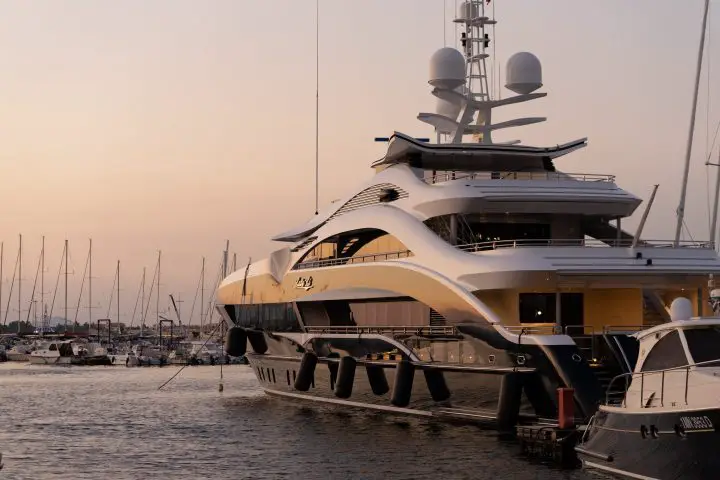
From our experience, we’ve seen people take two paths towards the liveaboard life.
- Some folks own their boat and use it for weekends or a week’s vacation here and there. They move aboard full-time as they transition to retirement, a work sabbatical, or remote work. Since it’s a gradual transition, these folks generally know what to expect.
- Then there are the folks who go all in—they know nothing about sailing or boats and sell it all and move aboard. For them, it’s a jump into icy cold water or learning a new language by moving abroad.
Which group is more successful? Group One generally knows what to expect, has worked out the kinks in their boat, and has already tackled the learning curve. There’s still a lot to take in, but they’re generally less stressed by it. If you can spend some time on your boat enjoying boating before moving onboard, it’s generally a good thing.
But, either way, being a full-time liveaboard is not a long-term lifestyle for most people. People who start from both groups seem to last an average of about one and a half to three years. After that, they’re ready to either sell the boat and move on or buy an RV or vacation land home that allows them to divide their time between boating and something else. People who last more than three years with only a boat are a very small minority.
One parting thought: Living on a boat full time and traveling is like having three or four full-time jobs. Each requires 30-40 hours per week when you include labor, research, and thinking and planning.
- Boat ownership — basic maintenance and cleaning
- Cruising full-time — destination and route planning, weather study
- Living aboard — cooking, cleaning, shopping, and everything else takes so much longer on a boat than in a house
- Your actual job — if you work aboard
How much does it cost to live full time on a yacht?
A lot depends on the size of the yacht. A small sailboat can be found fairly cheaply. For around $50,000US, you can get an older 35-foot sailboat in decent condition and move aboard with few problems. The biggest issue is finding a marina that allows live-aboard boaters. Slip fees will be your biggest expense and can be as high as $1,500 monthly in some areas. However, you can get monthly slips for as little as $300 in other places.
How to stay organized on a sailboat?
Sailboats have small spaces and not much storage, so keeping organized is key. The first step is to downsize your possessions to the bare minimum—only take what you absolutely need. The less you have, the easier your life aboard will be.
After that, it’s a matter of packing the boat so that everything has its place. Some boaters like to keep a spreadsheet of where they’ve packed everything away so they can find it quickly.
Is it cheaper to live in an RV or a boat?
Both of these activities are very dependent on location. Purchasing either one is very similar in cost. RV parks and marinas charge similar prices, but the cost varies depending on the location and services. In the end, however, moving an RV somewhere cheaper is easier and quicker, so you can live somewhere cheaply more easily.
Matt has been boating around Florida for over 25 years in everything from small powerboats to large cruising catamarans. He currently lives aboard a 38-foot Cabo Rico sailboat with his wife Lucy and adventure dog Chelsea. Together, they cruise between winters in The Bahamas and summers in the Chesapeake Bay.
Leave a comment
Your email address will not be published. Required fields are marked *
Save my name, email, and website in this browser for the next time I comment.

Is It Cheaper To Live on a Boat Than a House or an Apartment?
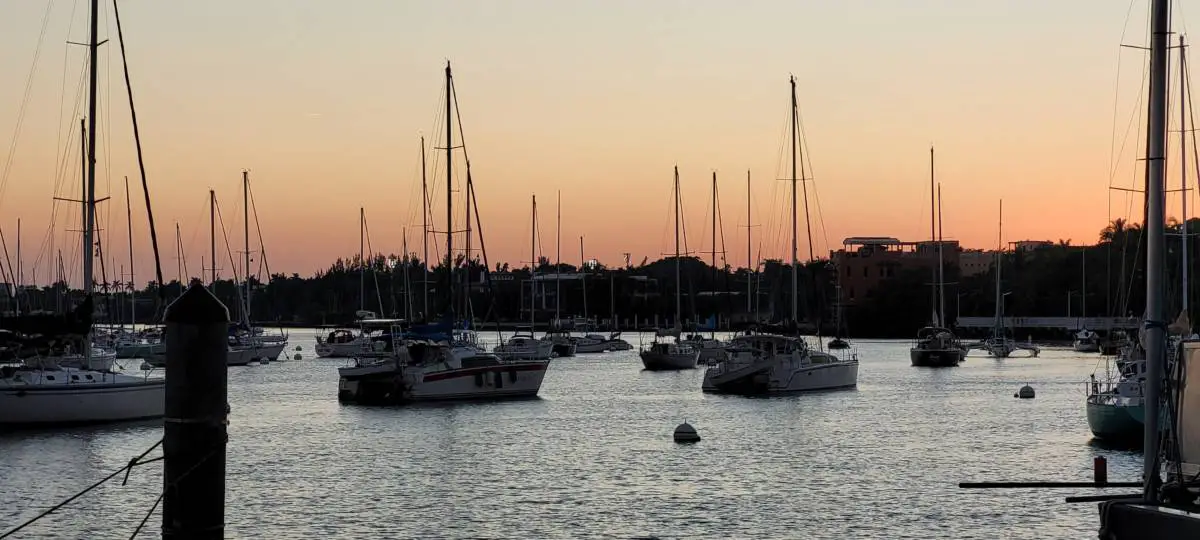
As an Amazon Associate, we earn from qualifying purchases. We may also earn commissions if you purchase products from other retailers after clicking on a link from our site.
It is easy to romanticize the idea of living on a boat. It offers a calm and serene environment far from the hustles and bustles of the dry land, while also letting you get in touch with the nature-enthusiast that lives within each one of us. But freedom and calmness aside, is living on a boat cheaper than living in a house?
Living in a boat is significantly cheaper than living in a house in the same location. Those residing in boats pay a lower amount for amenities and monthly fees when compared to houses. Although a boat has a high initial cost, it has notably lower monthly costs.
In this article, I will discuss critical questions associated with this topic, including whether it is cheaper to live in a house or a boat, the various taxes applicable to living on a boat, and the approximate amount of money you need to do it. This article will also evaluate the cost-effectiveness of living on a boat and ultimately which locations are cheaper when living on a boat.
Table of Contents
Is It Cheaper To Live in a House or a Boat?
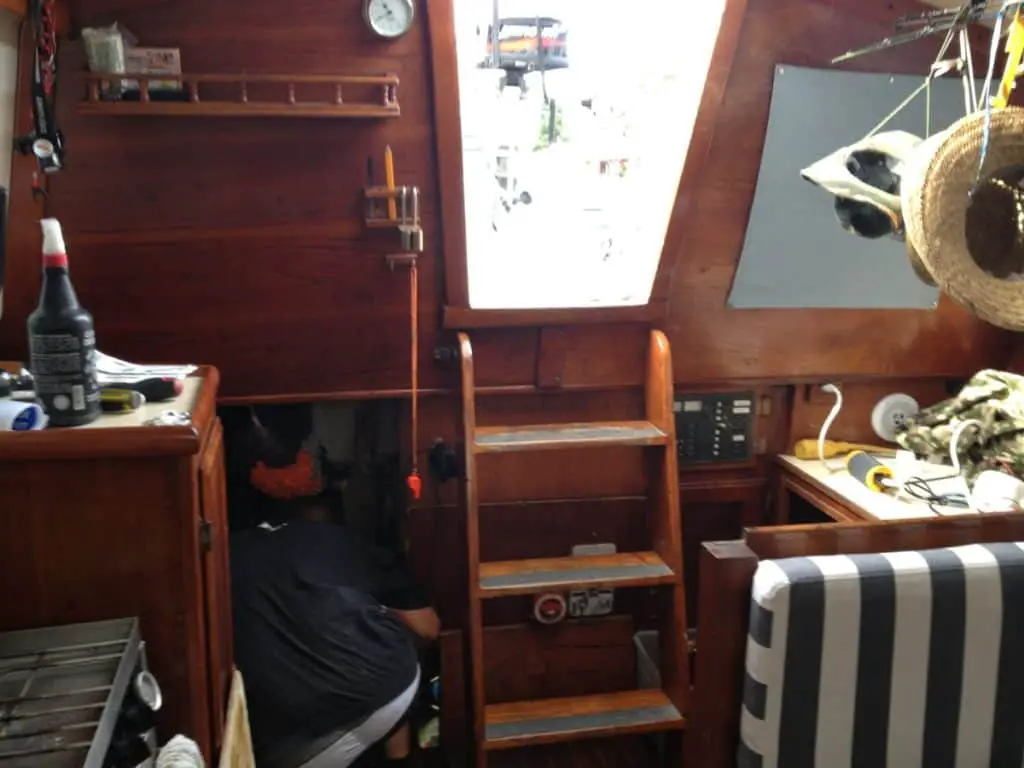
It is cheaper to live in a boat than in a house. The monthly costs associated with living in a boat are less than those associated with renting an apartment in the same location.
One of the main features of most regions in the United States is the high rent costs. Accordingly, there is no shortage of testimonials from couples and individuals alike about the substantial cost savings after choosing a boat instead of a house.
For instance, Business Insider reports on the story of Sam Train and his wife , who opted to live in a boat as opposed to renting an apartment complex in San Diego.
According to their testimony, the couple only spent $2,200 a month to live in a boat, which was cheaper than spending between $2,500 and $3,000 in rent within the same location.
This provides a crucial glimpse of some of the costs associated with living on a boat, which is often much less than living in a house. To this end, the most considerable cost associated with living on a boat is the monthly fee to have your boat on a marina.
This fee can be approximately $1,000 a month, but of course, it may vary from state to state. The upside of this kind of arrangement is that this fee also covers utilities and some amenities, such as Wi-Fi, electricity, and water.
This fee also covers other aspects such as laundry, mail delivery, pool, and so on. Accordingly, the costs associated with living on the marina are very low, the largest of which may be maintenance fees.
When compared to the cost of renting an apartment building, things become clearer. Using the number of $2,500 of rent in a state such as San Diego, and then adding the cost of various amenities , which average at $250 every month, living on a boat stands out as the significantly cheaper option.
The table below shows the monthly rent amounts for three major cities in the United States:
| San Diego | $2,500-$3,000 |
| New York City | $3,400 |
| San Francisco | $4,400 |
| Los Angeles | $1,756 |
In comparing the costs of a boat versus a house, Just Houseboats note that generally, the sum of the monthly expenses of maintaining a houseboat and the purchase price is still lower than the costs of housing in the same location.
This is understandable, considering the higher relative prices of houses versus houseboats. The growth in houseboat popularity is in part due to the high costs of rent and houses in major cities such as San Francisco and New York City.
However, it is essential to note that, unlike houses, your houseboat/boat will depreciate over time. While you will enjoy lower monthly expenses living on a houseboat, it’s not an asset as strong as a house.
Do You Pay Tax if You Live on a Boat?
You pay taxes if you live on a boat. You still have to pay use tax, sales tax, and property taxes. However, it is possible to get tax deductions for living on a boat.
I will discuss these different taxes below:
- Sales tax: This is a tax you pay after buying a boat. It is payable to the state where you purchased the boat.
- Use Tax: A use tax is what allows you to operate and store your vessel in the state you’re in. It is often an alternative to the sales tax.
- Property tax: This is an amount payable to the local municipality by those who dock their boats in the area.
While yacht owners and owners of other boats can avoid property taxes when they spend a prolonged time at sea, owners of houseboats have to keep their boat somewhere, often in a marina. As explained by Mansion Global , boat owners have to pay specific fees to the municipality.
In some states, you may also be subjected to property taxes, an annual fee that boat owners have to pay to the state. It is also worth noting that even when there are no set state taxes, such as in Maryland, you still have to pay any levies set at the local or municipality level.
Still, there are various advantages that boat owners can take advantage of. I will discuss some of these tax advantages below:
Tax Deductions
There are two main tax deductions available for boat owners, whether they’re living in it or not. These are as discussed below:
Tax Deduction for the Boat Being Your Second Home
This is a tax deduction you can get if you want to have a boat and also own a traditional house at the same time. By declaring your boat as your second home, you can get a tax break on your boat loan. However, if you’re planning to live on a boat in order to not own a house, then this option won’t be very helpful.
Tax Deduction for Your Boat as a Primary Residence
You are eligible for tax returns if you live on your boat as long as you claim that your boat is your primary residence. However, your boat has to have a bathroom, bedrooms, and a kitchen to qualify for this tax break.
Just like a traditional house, you can be eligible for similar tax deductions as long as you claim that the boat is your primary or secondary residence.
This can reduce your overall tax bill. You may enjoy deductions on your mortgage interest if your boat is collateral for the long-term loan you took to buy it.
How Much Does It Roughly Cost To Live on a Boat?
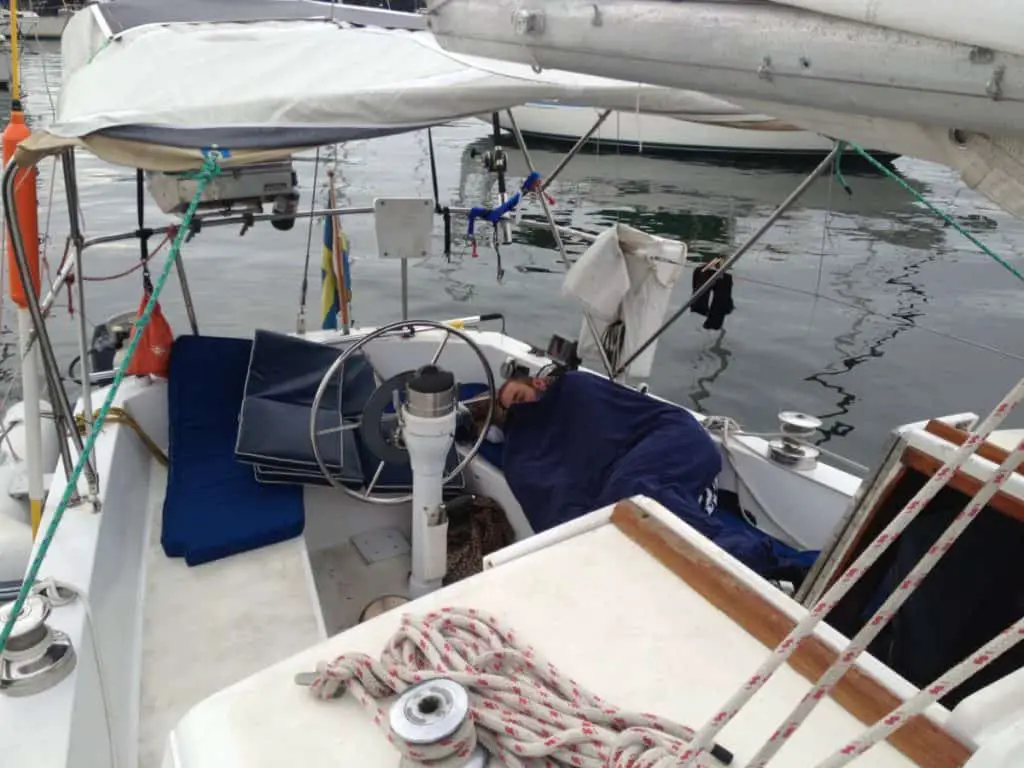
The approximate cost of living on a boat is roughly $1,500 to $2,500 a month. The monthly costs will largely depend on the marina fees and the monthly sum for amortization that you will pay for your boat.
If you’re looking for a boat that is best suited for you then I can help you on those problem.
The table below shows a breakdown of the costs of living on a boat:
| Amortization | 800 |
| Marina fees | 1,050 |
| Storage unit | 100 |
| Maintenance | 80 |
| Utilities | 250 |
| Waste disposal | Weekly: $25Monthly: $100 |
It is essential to note that maintenance and storage fees are variable and depend on your state’s service costs. The amortization sum will depend on the value of the boat and the loan you took for it.
Marina fees will also vary across different regions and can be affected by factors such as the per foot storage rate and the monthly storage rate. Renting a boat slip will cost between $20 and $25 per foot each month.
Summing up, it will cost approximately $1,800 to $3,000 per month to live on a boat.
Is It Cost-Effective To Live on a Boat?
Living on a boat can be cost-effective depending on where you live. In most states, the monthly costs of living on a boat are lower than those of living in a traditional home. However, unlike houses, boats depreciate over time.
Living on a boat is especially an attractive option for those strained for cash, such as students burdened by student debt or retirees on a fixed income. In fact, one of the common themes among most people who have shifted from traditional homes to boats is that it is significantly cheaper.
However, from a cost-effective standpoint, it is prudent to evaluate all possible housing options to determine which is better, given your budget and your preferences. For instance, it may be cheaper to live in a van than a boat (which i am doing right now), depending on the marina fees and your monthly costs. Living in a boat definitely has significant cost savings that justify its high initial costs.
However, while living in a boat may give you service for 10 to 20 years, it is a depreciating asset. If you’re worried about your long-term finances, you will arguably be better served investing in a traditional house.
When and Where Is It Cheaper To Live on a Boat?
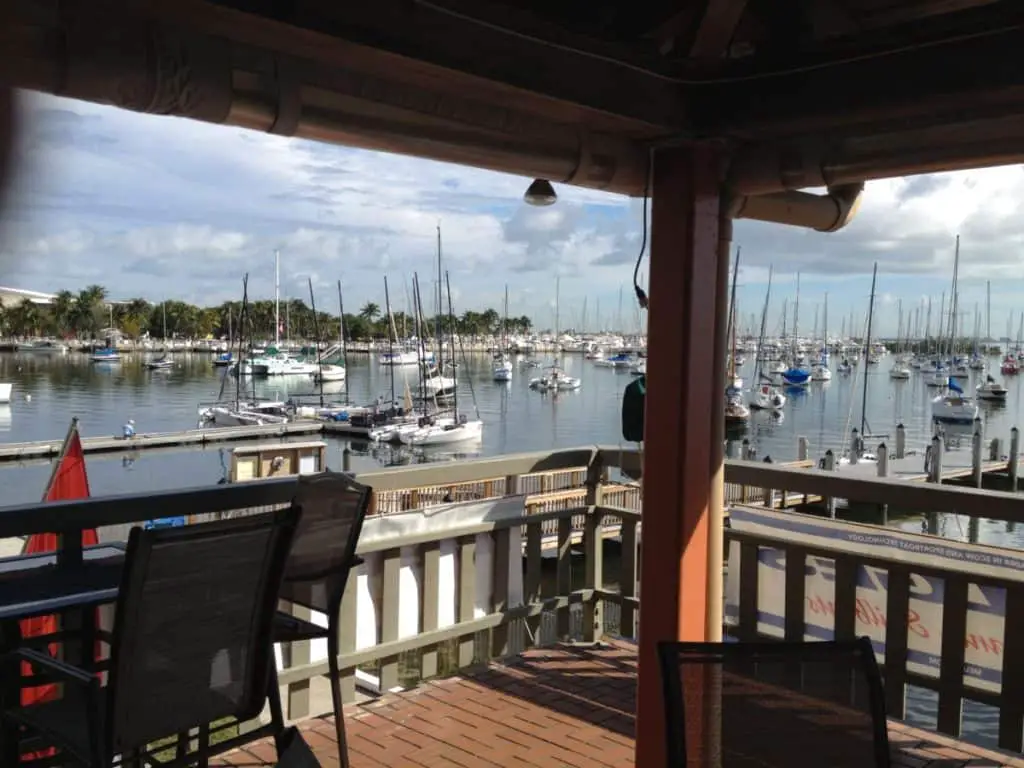
It is cheaper to live on a boat in major cities where the cost of renting an apartment is way too high. In such instances, living in a boat will not only allow you to live on a much smaller budget but may also provide more room than most two-bedroom apartments.
There is a wide variety of boats that you can explore to find the one that best suits your needs for a comfortable liveaboard experience.
The justification for living on a boat, as with any living arrangement, often comes down to costs and the costs of substitutes. As previously discussed, most people are opting for living on boats as an alternative to escape the high cost of housing, especially in major cities of the United States.
With monthly rents upwards of $3,000 per month for a two-bedroom apartment, it is easy to see why people from these cities consider living in a boat. However, most cities in the United States have a monthly rent lower of $1,500 or lower.
The table below shows the median monthly rent for 2-bedroom apartments in some cities in the United States that fall below $1,500.
| Memphis | $825 |
| El Paso | $826 |
| Louisville | $845 |
| Indianapolis | $856 |
| Detroit | $890 |
| Columbus | $956 |
| Houston | $1,024 |
| Phoenix | $1052 |
| San Antonio | $1,061 |
| Jacksonville | $1,073 |
As you can see, living on a boat doesn’t make much financial sense in the case of most cities. This is a dilemma for those who are living in expensive cities and don’t want to be away from them.
If living at a low cost is your only priority, you’ll be better off moving to a less expensive city.
Factors such as the marina fees will also influence your decision. If the monthly or annual fees are too high, living in a van or a small apartment will be cheaper—even if it’s an expensive city.
Let’s take a look at some of the cities where rent is high enough to justify living on a boat:
| Los Angeles | $1,756 |
| San Diego | $2,038 |
| Boston | $2,104 |
| New York City | $2,506 |
| San Jose | $2,644 |
| San Francisco | $3,113 |
Overall it is cheaper and more cost-effective to live on a boat, but your decision should be guided by factors such as fees, location, and the average rent in your location.
Living in a boat is definitely a good option for those who live in major cities, where the rent can be ridiculous. If you live in a small city, then this might not be the case.
Because most of the costs included in this article are estimates, I recommend consulting your local marina or a professional on the costs of living on a boat before taking a decision.
- Insider: How Much It Costs to Rent a 2-Bedroom Apartment in the 25 Biggest US Cities Right Now, Ranked
- Hi-Van: Van Life Vs. Boat Life: Which is Better?
- Business Insider Africa: I Gave Up My San Francisco Apartment to Live on a Boat. Here are 9 Things I wish I knew Beforehand
- Best Boat Report: How Much Does it Cost to Rent a Boat Slip?
- Yacht and Boat Guide: How Much Does it Cost to Live on a Boat?
- TurboTax: Can you Claim a Boat or RV as a Primary Residence?
- Yacht Management: Tax Advantages of Living on a Boat
- Mansion Global: If you Live on a Yacht in the U.S., Do you Have to Pay Property Taxes?
- Business Insider Africa: Rent in Cities Like NYC and San Francisco is So Expensive that it’s Pricing People Out of the Real-Estate Market, and Some of Them are Turning to Houseboats Instead
- Money Crashers: Living on a Boat Year-Round – Is It Possible?? Pros and Cons)
- The Log: Is Living Aboard a Boat Really a Reasonable Alternative to Buying a Home?
- Just House Boats: Are Houseboats Cheaper than Houses?
- Business Insider: One Couple Breaks Down the Costs of a Year Living on a Boat
Owner of CatamaranFreedom.com. A minimalist that has lived in a caravan in Sweden, 35ft Monohull in the Bahamas, and right now in his self-built Van. He just started the next adventure, to circumnavigate the world on a Catamaran!
Leave a Reply Cancel reply
Your email address will not be published. Required fields are marked *
Save my name and email in this browser for the next time I comment.
Recent Posts
Must-Have Boat Gear for Catamaran Sailors!
Sailing is probably the most gear-intensive activity I've ever done; there are so many decisions to be made about what gear to buy now, for tomorrow, and what to definitely never buy. The gear on...
6 Best Trailerable Trimarans For Bluewater and Coastal Sailing
Having a boat costs a lot of money, even when you are not using it, marina fees, etc. And once it is in the water most sailors never go very far from their "home marina" and sailing will be somewhat...
I gave up my San Francisco apartment to live on a boat. Here are 9 things I wish I knew beforehand.
- Three years ago, I gave up my San Francisco apartment and moved onto my boyfriend's boat after I lost my job.
- Living on a boat was challenging at first, but has had many rewarding moments.
- That said, there are several things I wish I had known before deciding to live on a boat.
- Visit Business Insider's homepage for more stories.

In 2016, my world turned upside-down.
Out of the blue, I lost my well-paying job as a radio news reporter in San Francisco. The entire newsroom decimated in one day of layoffs. I was renting a room in a gorgeous apartment on the water in Sausalito, which cost me about $1,500 per month, rent I could no longer afford. There was no way I'd go into debt or burn through my savings paying for a room, so I did what any prudent debt-avoider would do: I gave my 30-days notice.
I made plans to move onto my boyfriend's sailboat, a 46-year old ketch in the middle of a massive restoration. He'd already been working day after day on the boat for months by then, with no end in sight. I told myself it would be like camping in an old wooden cabin with zero amenities. I'd always loved adventure, the outdoors, and living outside the norm.
So, I did a massive purge, donated stuff to Goodwill, trucked bins up to my mom's garage in Oregon and kept only what I needed.
Just one month after my layoff, I was living on a boat for the first time in my life. And it wasn't the glamorous vision you might have in mind with sunset-tinged happy hours and dolphins playing in the surf. It was a struggle, especially at first.
But living on a boat has also come with incredible realizations and an amazing closeness to nature, and it's now a lifestyle I won't give up.
If you're also considering living on a boat, here are the things I wish I'd known beforehand.
There's no such thing as a 'finished boat'
Before I started my new life on a sailboat, I had no idea how much work boats actually require.
It seems like something is always broken or needing to be fixed. For the past two years, we hoped to sail down to Mexico for winter, but the boat wasn't ready. This year, we'll give it another shot (fingers crossed). My boyfriend Tom has worked countless hours, days and weeks getting the sailboat ready for ocean cruising for the past three and a half years. Still, more work needs to be done.
Now I understand these two boater adages: "The two best days of a boaters life is the day he buys a boat and the day he sells it," and "sailboat cruising is fixing things in exotic places."
Before you buy a boat, make sure you have the mechanical know-how to fix things, or else you'll be spending tons of money paying someone when things go wrong.
Living on a boat is like living in a tent, but with walls
When I first moved onto the sailboat, it had almost no amenities. No running water. No heater. No stove. No toilet. No internet. No fridge. No shower. The list goes on and on and on.
I cooked dinners using a Jetboil backpacking stove balancing a skillet. We used the marina bathroom, our gym, and an emergency bucket to go potty. We bundled up under blankets and sleeping bags during the cold winter months.
But over time, project after project, the boat has slowly acquired the amenities that make it home. Never before had I felt thankful for a toilet, or a stove, or an oven. Never before had I given any thoughts to a heater. Living on an unfinished boat might come with hardships, but it also comes with a deep sense of gratitude for things most people take for granted.
Marinas aren't always nice places to hang out
Through living on a boat, I've learned some marinas are nicer than others. Some resemble a poverty-stricken trailer park, others a high-end RV park. I've seen non-working boats covered with tarps, bikes, work-out equipment and trash.
I think it's common for people to associate sailboats with high-end marinas and yacht clubs, but this isn't always the case. Pick your marina with care, and be sure to walk the docks and meet the neighbors before signing up.
It's difficult to find a place to live on a boat legally
Living on a sailboat legally is really rough, especially in a place like San Francisco where everyone is trying to escape super-high rent.
Many marinas have yearslong waitlists for a liveaboard slip, and these slips cost double than a regular slip. Our marina only allows us to sleep aboard two nights per week, and we try hard to adhere to that rule. We often take our boat out to anchor in various beautiful places around the Bay, and we spend the other nights living in my van or house sitting.
Sailing is really challenging
When I first started life on the boat, I'd never stepped foot on a sailboat before, let alone sailed one!
Those first couple years learning how to sail were really hard. I just couldn't get it, and made so many mistakes.
Finally, in my third year, I'm catching on. It helped that I took a Hobie Cat out a few times and took windsurfing lessons in Hood River. Sailing might not come easy to everyone. If you're considering living on a sailboat, I'd recommend taking sailing lessons before you move aboard to make sure you like it!

Using a boat toilet sure is awkward
Living on a boat means you'll have to learn a new way of using the loo.
Our toilet, for example, has a manual flush. You basically fill up a large cup, add water to the bowl, and vigorously pump a handle up and down to flush. It makes a sound kind of like a dying goose, and is really easy to clog. We use a portable bidet as a way to keep toilet paper from clogging our pipes.
Explaining this type of toilet to visitors isn't always easy. Neither is sailing the boat to the pump-out station, where we use a vacuum-sealed hose to suck everything out of our holding tank. This is my least favorite part about living on a boat. Gross!
You can run out of essentials at any moment
Living on a boat isn't like living in a house, where you flip a switch and have an endless supply of electricity, running water and gas for your stove.
All the resources on a boat are finite, which means you have to keep close track of your supply. I remember one night when were anchored out cooking an amazing dinner, and the propane to our stove ran out. We had to finish cooking our dinner with a construction blowtorch we had on board.
Another time, our water tanks went dry when we woke up to brew our morning coffee. Luckily, it was only an hour's sail back to the slip.
We've learned the importance of checking our supply before we head out sailing for a few days, and to keep extra water on hand.
Things get smelly really fast
A boat has a very different environment than a house. Moisture from cooking or washing dishes is trapped in the cabin, creating the perfect environment for mold. We've learned to wash and dry all of our cupboards every few months to keep mold from growing onboard.
Other things that can stink on a boat are diesel and the holding tank. Many boats have that gross "boat smell," which usually occurs when the toilet's piping system starts to wear down. Our boat had a strong scent of diesel from a series of leaks and spills when we first moved on, and Tom had to tear out all the stained wood.
Living on a boat is addicting
Despite its challenges, I never knew living on a sailboat could be so addicting.
I love the fresh sea air rushing through the companionway, and the tap-tap of rain on the cabin house. I love how the boat leans in a big gust of wind, and rocks me gently to sleep when we anchor out.
The sailboat brings so much freedom and adventure to our lives. We can sail to remote corners of the world and bring our home along with us. We can enjoy dolphins leaping from our bow as we carve a path in the sea.
When living on a sailboat, the world really is our oyster, and I can't imagine any other way of life.
- Main content

WaterCraft 101
Your guide to fun on the water!
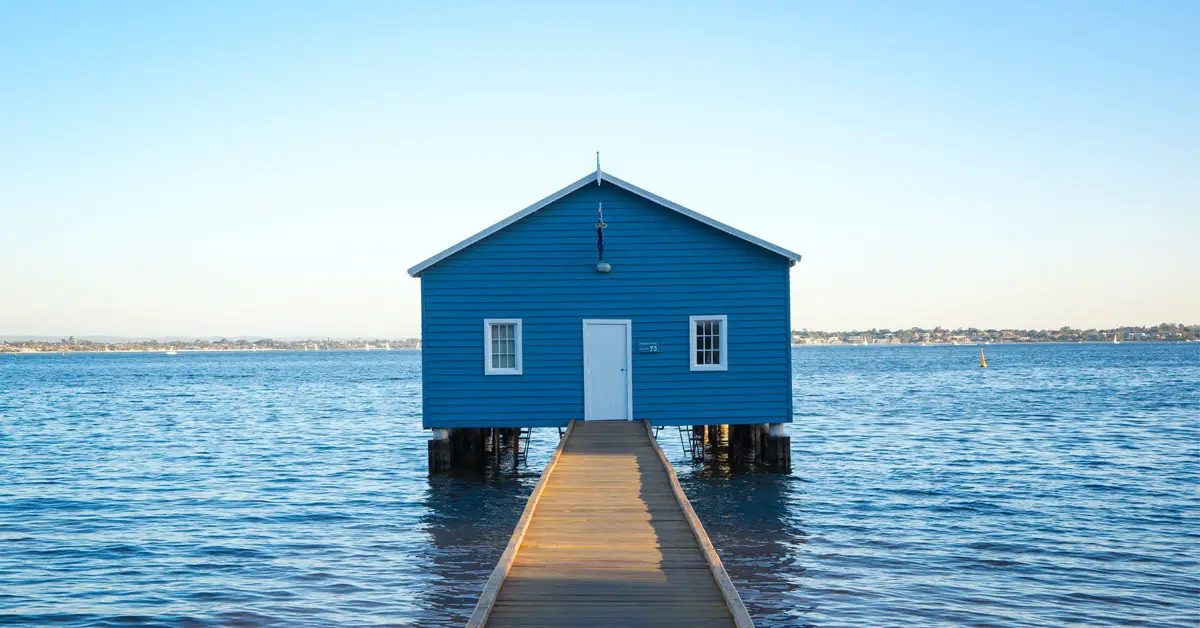
Boathouse vs. Houseboat: Choosing Between a Boathouse and a Houseboat for Your Waterfront Lifestyle
The choice of a waterfront lifestyle can bring about an interesting dilemma: Should you opt for a stationary dwelling on the water’s edge or a floating sanctuary that moves with the ebb and flow? This fundamental question often finds individuals at a crossroads, contemplating the allure of the two distinct yet intertwined options.
Choosing between a boathouse and a houseboat depends on your lifestyle preferences. If you desire mobility, adventure, and a close connection to the water, a houseboat may be your pick. But a boathouse could be preferable if stability, more living space, and a fixed community are important.
With the promise of serene mornings by the water and peaceful nights under the stars, each offers a unique perspective on life, bringing you closer to nature and providing a refuge from fast-paced city life. Today, we delve into this topic, discussing the pros and cons of each to help guide your decision.
Table of Contents
Understanding the Essence of a Boathouse

As its name suggests, a boathouse is a structure designed specifically for storing boats, typically with direct access to water bodies such as lakes, rivers, or even the ocean. However, modern boathouses often transcend this basic utility and embody the fullness of a comfortable dwelling.
These homes, built at the water’s edge, provide a sense of permanence and stability that contrasts with the transient nature of life on the water. Boathouses often offer more spacious living arrangements than their floating counterparts and may include a broader range of amenities.
With a stunning waterfront view, the allure of a boathouse lies in its capacity to blend the tranquility of a waterside retreat with the comforts and conveniences of a traditional home.
The Intriguing Allure of Houseboat Living
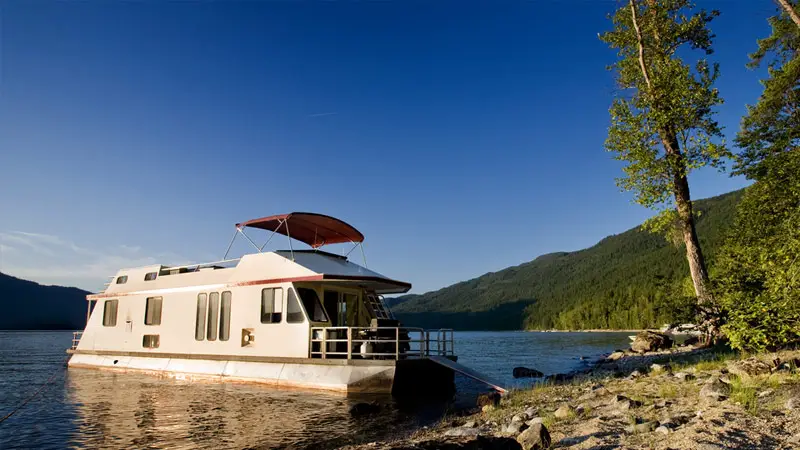
Houseboat living represents the epitome of a fluid, unhurried existence, free from the constraints of a fixed location. This lifestyle provides a unique opportunity to experience the world from a different viewpoint, literally floating atop the water’s surface.
Houseboats offer less space than traditional homes or boathouses and are ingeniously designed to maximize every inch, offering cozy and functional living quarters. They introduce a sense of adventure and mobility, allowing residents to relocate at will, exploring new locales while taking their home along for the journey.
Living on a houseboat equates to embracing a life tethered to nature’s rhythm, where the gentle rock of waves can lull you to sleep, and your morning view can change with your whims.
Comparing Costs: Boathouse and Houseboat Maintenance
When considering a waterfront lifestyle, it’s essential to weigh the financial implications of your choice. Both boathouses and houseboats come with their maintenance costs that, over time, can significantly affect your budget.
Initially, a boathouse might appear more costly due to land ownership and construction costs, but the long-term upkeep of a houseboat could balance the scales. Understanding these costs is critical to making an informed decision.
Boathouse Maintenance Costs:
- Construction and Renovation: Building or renovating a boathouse can be a costly venture, depending on the size, location, and desired amenities. Costs might include architectural and design services, construction labor, and building materials.
- Utilities and Taxes: Unlike houseboats, boathouses often require connections to city services like water, electricity, and sewer systems. Also, land taxes apply to boathouses.
- Regular Upkeep: Regular maintenance tasks include cleaning, painting, and minor repairs to keep the structure in good condition.
Houseboat Maintenance Costs:
- Initial Purchase: Depending on size, design, and luxury level, houseboats can range widely in price. Older models may require refurbishment, further adding to the cost.
- Docking Fees: Houseboats need a place to dock, and marinas charge fees for this, which vary widely depending on location and amenities.
- Insurance: Insurance for a houseboat is typically higher than a traditional home due to the risk associated with living on the water.
- Maintenance and Repairs: Like all boats, houseboats need regular maintenance to stay seaworthy. This includes hull cleaning, engine maintenance, and occasionally costly repairs.
Life on the Water: Exploring the Lifestyle Differences
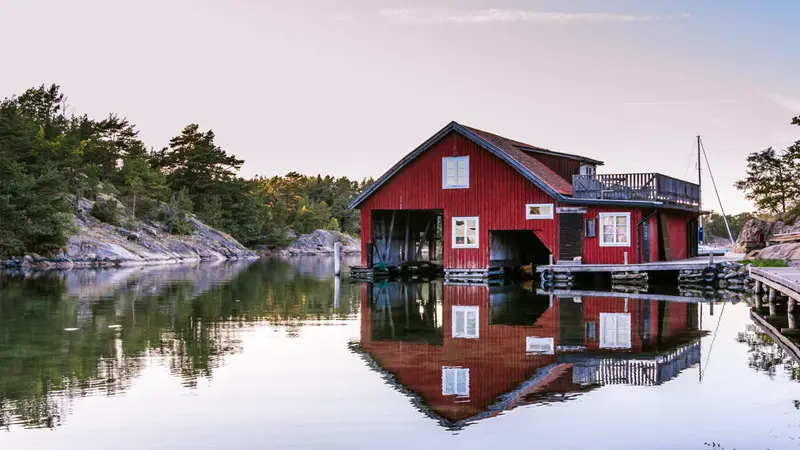
Embarking on a waterfront lifestyle is an adventure, whether you opt for a boathouse or a houseboat. The two choices offer distinctive lifestyles shaped by their unique features and inherent nature. A boathouse provides a rooted experience, being physically connected to the land, while a houseboat offers an exciting life of fluidity and change, tethered to the whims of the water. Let’s explore these differences further:
Boathouse Lifestyle:
- Stability: Boathouses offer the stability and familiarity of a traditional home, making it ideal for those who prefer a fixed address and a sense of permanence.
- Space: Boathouses typically have more space, allowing for larger families or more belongings. It can also accommodate guests more comfortably.
- Amenities: With a connection to land-based utilities, boathouses often have access to the same amenities as a regular home, such as internet and cable TV.
- Community: Living in a boathouse usually means being part of a lakeside or riverside community with nearby neighbors and shared public spaces.
Houseboat Lifestyle:
- Mobility: Houseboats offer the unique advantage of mobility, allowing you to change your scenery whenever you wish. You can explore different areas without leaving the comfort of your home.
- Closeness to Nature: Living in a houseboat means intimately connecting with the water and its inhabitants. You might find yourself sharing your mornings with passing waterfowl or evenings with the sound of waves.
- Limited Space: Space is typically more limited in a houseboat, requiring careful organization and a minimalist approach to belongings.
- Different Community Feel: A houseboat community can be transient as neighbors come and go, fostering a unique camaraderie among fellow water dwellers.
Location, Location, Location: Traveling with a Houseboat vs. Living on the Dock
The allure of a houseboat lies significantly in the promise of mobility and ever-changing views. With a houseboat, you can navigate to different locations, exploring new communities, landscapes, and waterfronts. This option appeals to those with an adventurous spirit and a desire for change.
As a houseboat dweller, you can choose to be anchored in a tranquil, secluded bay one day and docked at a bustling marina the next. Additionally, traveling to different places provides an exciting cultural and social exploration platform. However, it’s worth noting that while houseboats do offer mobility, many still choose a ‘home base’ marina where they primarily reside, venturing out occasionally.
On the other hand, a boathouse provides a fixed location, a constant address that offers a sense of community and belonging. Located on the water’s edge, boathouses provide stunning views, easy water access, and the stability of a land-based home. Although boathouses don’t offer the same mobility as houseboats, they provide an established connection with a specific location and community.
Living in a boathouse means joining the local community, participating in local events, and building long-term relationships with neighbors. Choosing between a traveling houseboat lifestyle and a dock-based boathouse lifestyle depends on your personal preferences and lifestyle goals.
The Versatility of Space: Comparing Comfort and Amenities
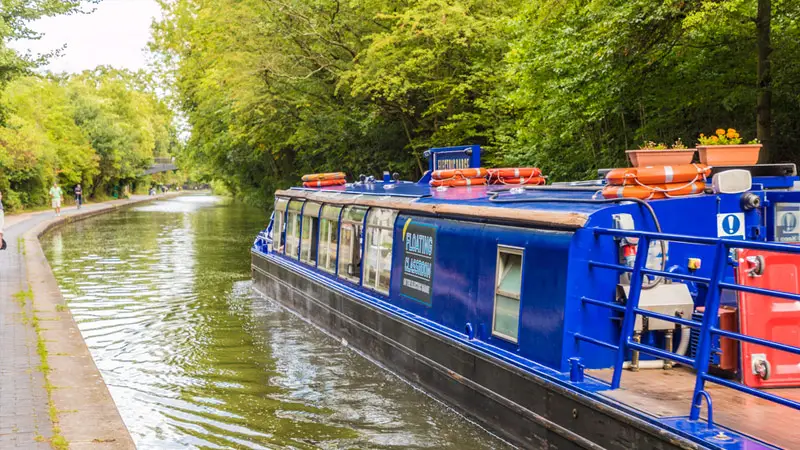
A significant factor to consider when choosing between a boathouse and a houseboat is the versatility of space and the level of comfort and amenities each provides. Generally, a boathouse, given its solid, land-based structure, can offer more spacious and diverse living arrangements. A houseboat, while compact and ingeniously designed, is typically more limited in space due to its need for mobility and buoyancy. Here’s a closer look at what each option brings to the table:
Boathouse Comfort and Amenities:
- Space: Boathouses, being stationary, often offer larger living spaces, which could include multiple rooms, a full-size kitchen, larger bathrooms, and outdoor areas such as patios or decks.
- Amenities: As land-based homes, boathouses can have standard home utilities and appliances, such as a dishwasher, washer and dryer, full-sized refrigerator, and more.
- Storage: With more space usually comes more storage, allowing for a broader range of personal belongings, furniture, and equipment.
- Expansion Possibilities: Given the right permits and land availability, a boathouse could be expanded or renovated.
Houseboat Comfort and Amenities:
- Compact Living: Houseboats are typically designed for compact, efficient living. This can mean cleverly designed fold-out furniture, convertible spaces, and smart storage solutions.
- Mobility-Friendly Amenities: Amenities on a houseboat are tailored for life on the move, with things like marine appliances, compact furniture, and storage designed for minimal movement while in transit.
- Limited Storage: Space is at a premium on a houseboat, so storage is typically limited. This can necessitate a minimalist lifestyle or creative storage solutions.
- Connection to the Outdoors: While space might be limited, houseboats often have deck space for outdoor living and a more intimate connection with the surrounding water.
Safety Concerns: Houseboat and Boathouse
Safety should always be paramount when deciding on your living arrangements, and both boathouses and houseboats have their own sets of safety concerns that need to be thoroughly considered.
For boathouses, potential issues to consider include the following:
- Flooding: Being located on the water’s edge, boathouses can be at risk of flooding, especially during heavy rain or in areas prone to high water levels.
- Access: Some boathouses, especially those in remote locations, may have limited access, making it more difficult for emergency services to reach if necessary.
- Weather: Boathouses may be more exposed to harsh weather conditions, such as storms or high winds, which can lead to damage or safety issues.
For houseboats, safety concerns might include the following:
- Navigation: Operating a large houseboat requires some degree of skill, and there can be risks associated with navigation, particularly in crowded or difficult waterways.
- Water Safety: Living on a boat requires good water safety practices. This includes knowing how to swim, having proper safety equipment, and understanding the risks associated with water.
- Maintenance: Houseboats require regular maintenance to ensure they remain seaworthy. Failure to maintain a boat can lead to critical safety issues.
Regardless of your choice, it’s important to understand these potential safety concerns and take necessary precautions to mitigate risks. Ensuring that your dwelling meets all local safety codes and regulations is also essential.
Bryan is a Las Vegas resident who loves spending his free time out on the water. Boating on Lake Mohave or Lake Havasu is his favorite way to unwind and escape the hustle and bustle of the city. More about Bryan.
Similar Posts

Tugboat Propeller Size: Exploring the Importance of Propeller Size in Tugboats
Navigating maritime architecture and engineering, one may find themselves caught in a whirlpool of intricate components and exacting specifications. Each element, each facet holds its weight in this realm. Let’s drift further into the world of tugboats: these seemingly inconspicuous yet powerful marvels of the marine world. The propeller size in tugboats is crucial for…

Is It Correct to Say ‘Drive a Boat’ or ‘Sail a Boat’? The Answer Depends on Your Craft
When operating a watercraft, the language used to describe the act can be a source of confusion. Some may say they “drive a boat,” while others say they “sail a boat.” The truth is the correct term to use depends on the type of vessel being operated and the method of propulsion. For larger vessels,…
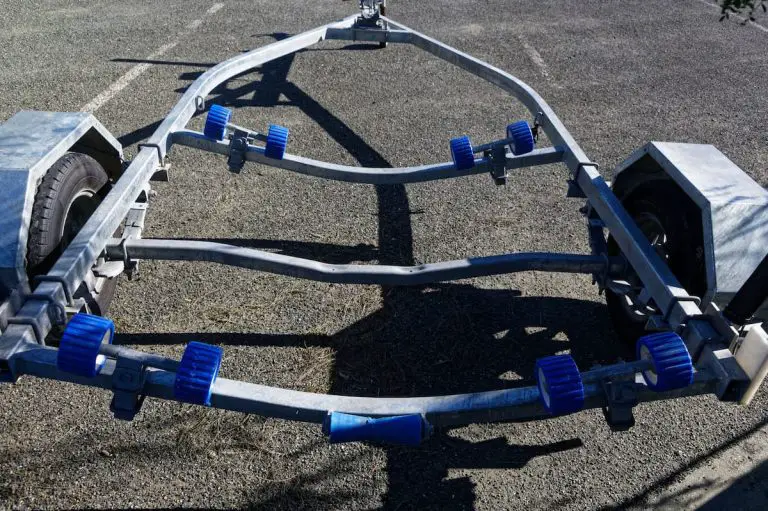
Should Your Boat Rest on a Keel Roller? (Explained)
Boat care is an essential and detailed part of owning a boat. It is good to familiarize yourself with your boat’s specific cleaning, storage, and hauling needs before purchasing it or taking it on a trip. There are several pieces involved in trailering your boat; one part that boat owners are frequently troubled by is…
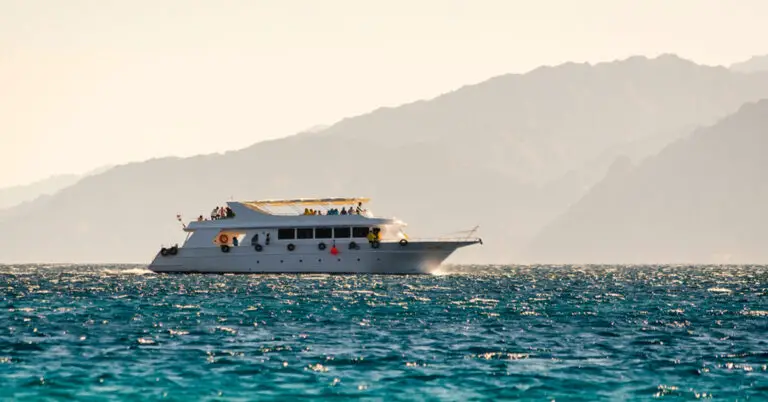
Largest Boat You Can Operate Yourself: Discovering the Size Limitations for Solo Boat Operators
Do you dream of cruising the open waters in a vessel that’s big enough to accommodate your family and friends but small enough to operate on your own? If so, you’re in luck! In this article, we’ll explore the largest boat you can operate yourself and give you some tips on how to make the…
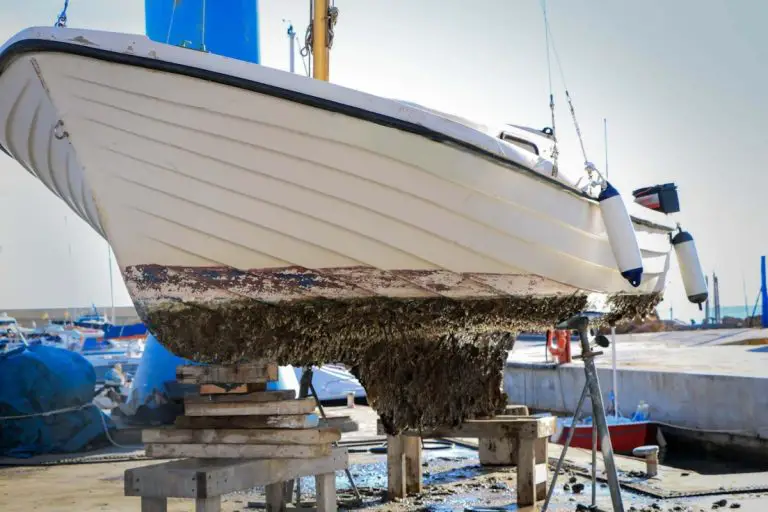
Your Guide To Barnacles On Ships (Problems & Fixes)
Barnacles are tiny marine creatures that can attach to your ship and ruin its paintwork. However, this is not the only damage these creatures can do to your boat. So, what can happen if you leave barnacles on ships? A large colony of barnacles adds weight to your ship, slowing it down and prompting it…

Boat Ownership Costs And Expenses (Read This Before You Buy!)
Are you a new boat owner, or plan to be one soon? If yes, then great! First things first though, there will be some significant boat ownership costs involved and you’ll need to know what to expect. Not to freak you out, but the last thing you want is for you to be that guy…
Luxury Livable Yachts
Livable yacht series.
Meet ARKUP 50. Our fun and friendly livable yacht combines state-of-the-art Arkup technology and a multi-purpose design for the ultimate leisure experience for family and friends.
ARKUP 75 has pioneered a new, blue world of luxury and off-the-grid living. Our flagship product invites you to an avant-garde life on water with the next-generation of sophistication and innovation.
Sustainable Blue development
Blue development, blue eco-resorts.
Arkup is a game changer for the hospitality market regarding sustainability. Our solutions make floating and overwater eco-resorts a reality with the versatility to scale, configure, and even relocate.
Blue communities
We are revolutionizing life on water. We leverage Arkup products and expertise for fast deployment, modular, floating communities that you scale according to market demands.
Go Green | Live Blue
Reimagine how we live, latest news.

- Arkup 50 , Newsletters
Newsletter August 2024
Read more >>.
- August 2024
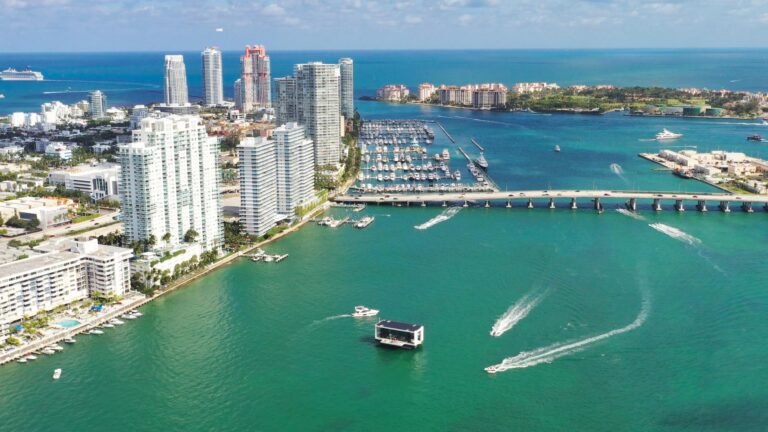
- Arkup , Media
Arkup on German Galileo TV
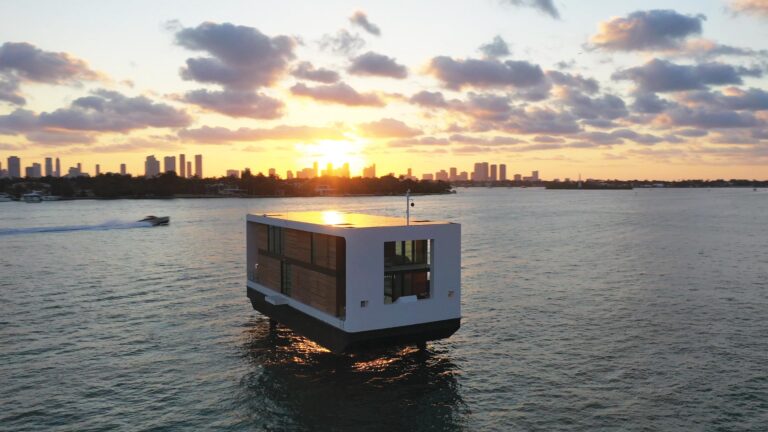
Arkup in The New York Times
- September 2023

Arkup’s keynote at MIT
- September 2022
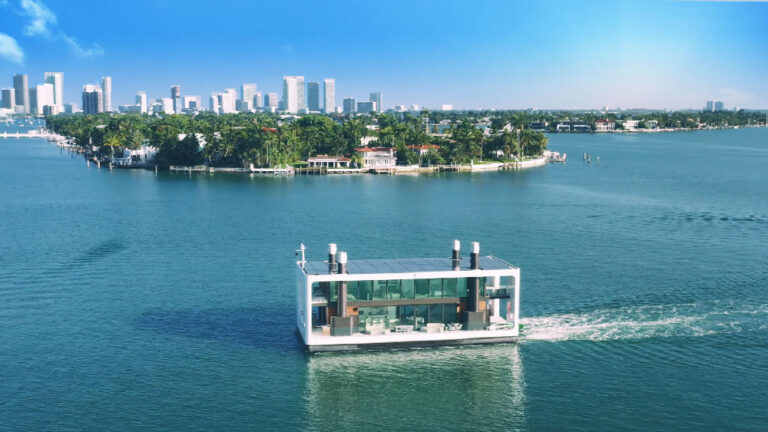
- Livable Yachts
Arkup liveable yachts are free of property tax
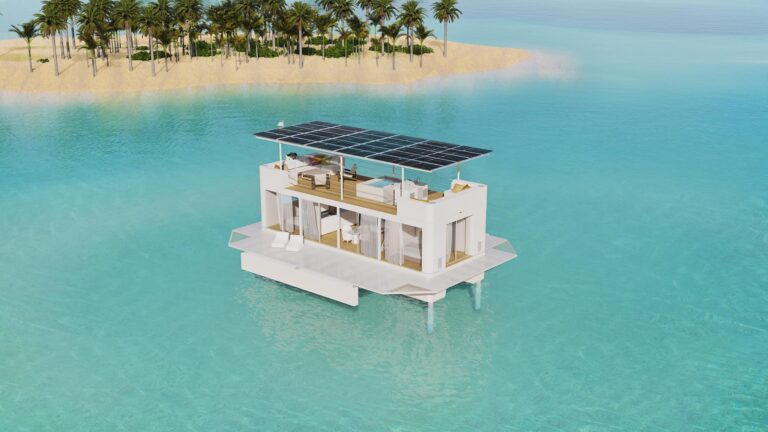
Orders for ARKUP 50 are heating up
Arkup undertakes to never transmit your email address for promotional purposes. You can unsubscribe anytime.
Luxury Lifestyle Partners
Get in touch, arkup avant-garde life on water.
(+1) 305-707-4164 | [email protected]
1801 NE 123rd Street, Suite 314 North Miami, FL 33181(USA)
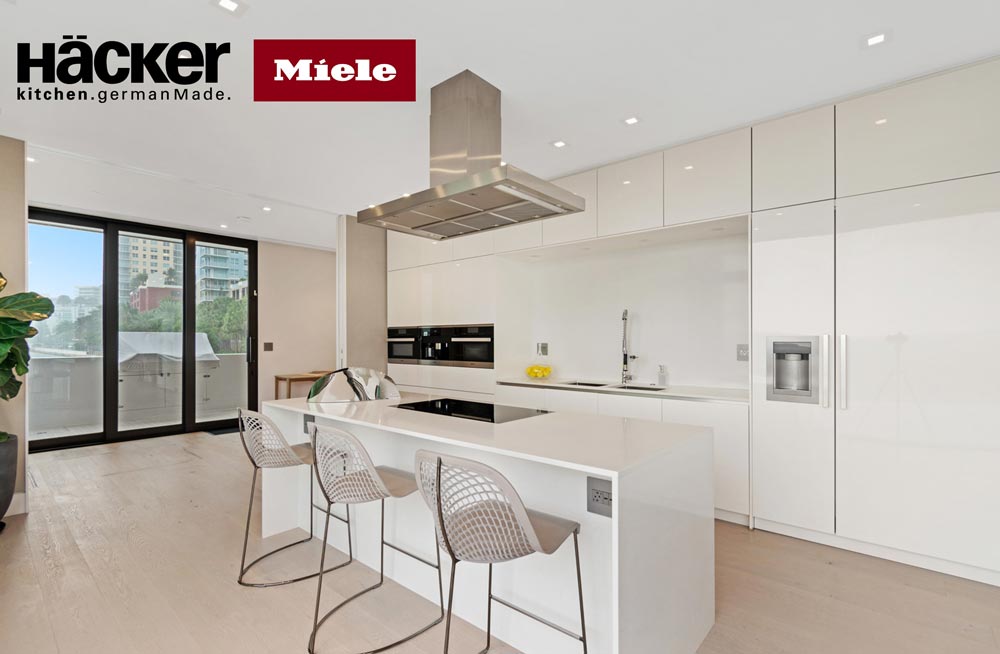

- CREATE AN ACCOUNT
- Boat Cover Finder
- Bimini Top Finder
- Boat Propeller Finder
- Engine Parts Finder
- Anchor & Dock
- Watersports
- Clothing and Footwear
- Engine Parts
- Cabin and Galley
- Covers and Biminis
- Electronics
- Paint and Maintenance
- Pumps and Plumbing
- Anchor Chains & Ropes
- Boat Fenders
- Boat Mooring
- Boat Protection
- Dock Storage & Protection
- Ladders, Steps, & Platforms
- Top Sellers

- Fishing Rods
- Fishing Reels
- Fishing Rod & Reel Combos
- Fishing Tools & Tackle Boxes
- Fishing Line
- Fly Fishing
- Fishing Bait & Fishing Lures
- Fishing Rod Holders & Storage Racks
- Fish Finders, Sounders & Sonar
- Trolling Motors
- Fishing Nets
- Fishing Downriggers & Acessories
- Fishing Outriggers & Acessories
- Fishing Kayaks
- Fish Cleaning Tables

- Inflatable Rafts
- Paddle Boarding
- Paddles & Oars
- Wakeboard, Wakesurf & Ski
- Wakeboard Towers
- Tow Ropes & Handles
- Life Jackets & PFDs
- Snow Sports
- Roof Racks, Carriers, Dollies

Men's Clothing
- Accessories
Men's Footwear
- Atheltic Shoes
- Water Shoes
Women's Clothing
- Dresses & Skirts
Women's Footwear
- Fuel Systems
- Sacrificial Anodes & Zincs
- Generator Parts
- Inflatable Boats
- Propeller Parts & Accessories
- Boat Manuals
- PWC Parts & Accessories

- Fishing Boat Seats
- Offshore Boat Seats
- Ski Boat Seats
- Pontoon Boat Seats & Furniture
- Boat Seat Pedestals & Hardware
- Boat Seats by Manufacturer
- Boat Tables & Hardware
- Boat Seat Covers
- Boat Seat Vinyl
- Floating Boat Cushions

- Barbeque Grills
- Boat Drink Holders
- Cabin Accessories & Hardware
- Boat Ventilation
- Interior & Cabin Lighting
- Marine Teak Products
- Carbon Monoxide & Smoke Detectors
- Binoculars & Telescopes

Boat Bimini Tops
- Bimini Top Accessories
- Pontoon Bimini Tops
- Other Biminis
- RV & Trailer Covers
- Boat Shrink Wrap & Accessories
- Boat Shelters
Boat Covers
- Boat Cover Accessories
- Boat Lift Canopy Covers
- Other Covers
- Boat Wiring & Cable
- Marine Batteries & Accessories
- Marine DC Power Plugs & Sockets
- Marine Electrical Meters
- Boat Lights
- Marine Electrical Panels & Circuit Breakers
- Power Packs & Jump Starters
- Marine Solar Power Accessories
- Marine Electrical Terminals
- Marine Fuse Blocks & Terminal Blocks
- Marine Switches
- Shore Power & AC Distribution

- Marine Audio & Video
- GPS Chartplotters & Accessories
- Electronic Navigation Charts & Software
- Digital Instruments
- Display Mounts
- VHF Radios & Communication
- Marine Radar
- Auto Pilot Systems
- Action Cameras

- Fiberglass & Epoxy Boat Repair
- Boat Paint & Varnish
- Marine Adhesives, Sealant, & Caulking
- Marine Engine Maintenance
- Boat Cleaners & Waxes
- Boat Cleaning Supplies

- Fresh Water Boat Systems
- Bilge Pumps
- Marine Plumbing Parts
- Wash Down Pumps
- Livewell Aerator Pumps & Live Bait Wells
- Toilet & Waste Pumps
- Marine Pump Replacement Parts

- Tires, Rims, & Hub Kits
- Boat Trailer Winches
- Boat Motor Supports & Transom Savers
- Boat Trailer Guides & Rollers
- Boat Trailer Fenders
- Boat Trailer Lights
- Boat Trailer Hardware
- Boat Trailer Jacks
- Boat Trailer Brakes & Axles
- Boat Trailer Tie Downs
- Couplers, Mounts, Hitches, & Locks

- Boat Deck Harware
- Marine Nuts, Bolts, & Screws
- Boat Handles, Pulls, & Rings
- Prop Nut Kits & Hardware
- Boat Cabin Hardware
- Marine Fasteners
- Boat Windshield Parts
- Boat Tubing & Rails
- Boat Mirrors
- Marine Tools & Tool Kits
- Boat Lettering

- Women's Clothing Deals
- Men's Clothing Deals
- Fishing Deals
- Anchor & Dock Deals
- Electrical Deals
- Electronics Deals
- Paint & Maintenance Deals
- Pumps & Plumbing Deals
- Boat Seats Deals
- Trailering Deals
- Camping & RV Deals
- Dealer Login

- Forums Login

- Search forums
- The iboats forum moderators are excited to announce that at this time it appears the iboats forums posting pictures function is working once again. Though we cannot promise for how long, we're hoping for indefinitely.
- General Boating/Outdoors Activities
- Boat Topics and Questions (not engine topics)
Buying a boat instead of a house?
- Thread starter Thajeffski
- Start date Apr 18, 2010
Master Chief Petty Officer
- Apr 18, 2010
However right now there is no family or even woman on the horizon Click to expand...
Lieutenant Commander
Re: Buying a boat instead of a house? I would imagine I'd want at least a 30 ft boat. Of course it isn't going to be one of those luxury yachts you see on tv, but something that is nice enough to live on. How much boat can you get for 600k to 800k?
How much boat can you get for 600k to 800k? Click to expand...
Shamus O'toole
Petty officer 1st class.
Re: Buying a boat instead of a house? back in the day on Long Island my family lived on a 30ft trojan Sport Fish during the summer. We'd move onto the boat the weekend after school let out. We'd go home once a week to cut the lawn, do laundry and stuff then move back to the house the weekend before school started. It was awesome and a little cramped with 4 people in a boat. i wouldn't trade those memories for all the money in the world.
Moderator & Unofficial iBoats Historian
Thajeffski said: I would imagine I'd want at least a 30 ft boat. Of course it isn't going to be one of those luxury yachts you see on tv, but something that is nice enough to live on. How much boat can you get for 600k to 800k? Click to expand...
Bubba1235 said: Right now? One of those luxury yachts you were speaking of. Seroiusly, right now your boat dollar will go father than at anytime I can remember. http://cgi.ebay.com/ebaymotors/2002...ItemQQptZPower_Motorboats?hash=item335c252f1e If this is too small we need to talk. Click to expand...
Lieutenant Junior Grade
Thajeffski said: Wow, I never thought that less than 500k could buy something like that. I wonder how easy it is to get a loan for that much assuming you're buying it in place of a house. My credit rating is 816 That would be a dream boat to live on! The Tube TV has to go though. Click to expand...
Re: Buying a boat instead of a house? Banks are NOT lending money for boats. They don't care if your credit score is 999. They are awful spooky about lending money for toys.
mike64 said: yeah, you buy something like that and your "no woman on the horizon" situation will change quickly Click to expand...
Summer Fun said: Banks are NOT lending money for boats. They don't care if your credit score is 999. They are awful spooky about lending money for toys. Click to expand...
Petty Officer 2nd Class
Re: Buying a boat instead of a house? when i first started reading this thread, i was thinking how cheap could someone get into a livable 30ft-er. wow, half a mil. the women will think you are james bond - or at least sonny crockett. don't forget the cost of maintenance. i don't know any specific figures, but i'd guess that upkeep on a little boat like the one in the ebay ad is pretty steep. don't know if its more than a comparably priced house in your area.
What if I say "but it's my house!" Click to expand...
Summer Fun said: You're a young guy why not just pay cash for one ??. Do you see what I paid for mine. Try to talk the bank into that !! You could lose your job tomorrow and then what ?? Click to expand...
Re: Buying a boat instead of a house? EDIT : Sorry I was speed reading. :redface:
Supreme Mariner
Re: Buying a boat instead of a house? http://cgi.ebay.com/ebaymotors/45-T...r_Motorboats?hash=item335c21033e#ht_954wt_921 http://cgi.ebay.com/ebaymotors/41-C..._Motorboats?hash=item27b110697a#ht_500wt_1182
Petty Officer 3rd Class
Re: Buying a boat instead of a house? . Take a look at these and see if they fit your piggy bank. http://shop.ebay.com/i.html?_trkpar...s&_sticky=1&_trksid=p3286.c0.m14&_sop=3&_sc=1
Fleet Admiral
Re: Buying a boat instead of a house? It is a general rule that property is supposed to appreciate in value ( I do realize whats happened in the last little while) Boats for the most part don't!
- Articles and Guides
Types of Houseboats: Different Home Styles for Living on the Water
10th may 2023 by toi williams.

Houseboats have become popular in many places due to the attraction of living so close to the water and the many different types available. Houseboats are built in an array of styles and materials, but all types will have a stateroom that serves as your bedroom, a galley, head, and saloon (those are the kitchen, bathroom, and living room if you’re not familiar with nautical lingo).
Most houseboats also have a helm, a bridge, and a navigation station, although not all of them, as we’ll explain as we explore the differences among different types of houseboats.

Main Types of Houseboats
Whether adapted for canals, lakes, or harbors, houseboats fall into two main categories: cruising and non-cruising.
Cruising houseboats
Cruising houseboats can travel on the water and are typically powered by sails or an engine. They are designed to be used in bodies of water that don’t get too rough, like lakes and rivers, and generally they are not suitable for open water or high seas. They are typically viewed as vacation vessels, although boaters sometimes choose to reside on them full time.
Cruising houseboats can be equipped with a wide range of conveniences that make them feel more like an apartment and less like a boat, but they are also popular with families who use them as a platform for a variety of water activities and excursions. They also serve as homes for some anglers who enjoy taking the comforts of home with them on leisurely fishing trips.
Non-cruising houseboats
Houseboats that remain stationary are sometimes called non-cruising or static houseboats. These boats generally lack a means of propulsion, but they are large enough and stable enough to outfit with the comforts of a land-based home. They are often moored or anchored semi-permanently at piers and marinas.
People who choose to live on the water all the time often pick a non-cruising houseboat as their residence. Non-cruising houseboats tend to be larger than cruising houseboats, with enough space for storage and custom features. They are typically plugged in at a marina with internet, electrical and other utilities.
Houseboat Categories
Canal-style houseboats.
Particularly popular in Europe, canal-style houseboats , sometimes called narrowboats, have a flat bottom and deck that rises slightly upward so the front of the boat is higher than the rear of the boat. This lets the owner easily tie off on banks and docks, and use ramps or steps to disembark. Canal-style houseboats are specifically built to be used in canals and similar waterways.
Canal-style houseboats are smaller than other types, so they have less space for storage, but they are easier to move from place to place. Access to electricity and communication is achieved through a combination electrical/telephone junction box that is typically situated near the bow of the boat.

Pontoon houseboats
Houseboats built on pontoons combine the features of a pontoon boat and a typical houseboat to give boaters the best of both worlds. They are designed with two large pontoons connected by a structural grid and deck with the "house" on top. Typically made out of aluminum, they can also consist of other materials, and they make the boat stable and easy to operate. They are designed to require little maintenance, which makes these boats relatively more affordable than some other styles.
Pontoon houseboats' ease of movement makes them great for vacations and exploring new areas. They are available in a variety of sizes from small enough to comfortably hold a couple of people to large enough to contain full kitchens and bathrooms. They can also be customized with various features to make them suitable for longer excursions, including fishing, kayaking, and other water-based activities.
Floating-home houseboat
The floating-home houseboat is a stationary style commonly used for residential living. These non-cruising houseboats are designed to float on pontoons or barge-like hulls while moored to remain in one place. Often they are connected to local sewer and utility lines.
When you compare different types of houseboats, floating-home houseboats are some of the most economical and energy-efficient options available. Then again, that’s often because these houseboats have no self-propulsion or steerage capabilities.
Because these houseboats are mainly used as primary residences, they are often found in communities of like-minded individuals who enjoy life on the water. The Seattle waterfront is well known for such communities.

Catamaran-style houseboats
A catamaran-style houseboat combines the features of a catamaran and a regular houseboat to boost stability and comfort. Instead of a single hull, this design features two long narrow hulls connected by a platform on which the structure of the house sits, similar to some pontoon houseboats. The boats can be made from aluminum, fiberglass, or wood, and typically range between 30 feet and 50 feet in length.
The benefits of choosing a catamaran-style houseboat include good stability, efficient handling, and easier docking. The style is one of the most fuel-efficient types of houseboats, and they often have more storage space than other houseboat styles. There is also more room for amenities for those seeking a luxury experience.
Full-hull houseboat
A full-hull houseboat is one of the most common types of houseboat and has a solid hull made out of a single material, typically molded fiberglass, often reinforced with wood for extra strength. The superstructure, or “house,” is often built from separately molded fiberglass segments and bolted or fiberglassed to the hull. Finally, the boat is fitted out with additional mechanical boat systems plus what you’d expect to find in any house, from wiring and insulation to hardwood floors and custom decor.
Full-hull houseboats are often built with vertical dimensions that provide larger living spaces and storage spaces than other styles of houseboats of similar area. Additional storage space can be found below the deck. Various features can be added to further customize the houseboat to make it more comfortable.
Barge-style houseboats
Barge-style houseboats are some of the largest houseboats available. Boats of this style can be found in both cruising and non-cruising models. They are built with a shallow depth so that they can easily move through shallow water. They are often picked for their low maintenance requirements.
When boaters compare different types of houseboats for families, a barge-style houseboat is often chosen for its ample space. Some models accommodate up to 10 people comfortably. In addition to giving each member of the group some space, barge-style houseboats can be outfitted with amenities that make them cozier homes. Some have full kitchens and bathrooms, and some have a washer and dryer on board.

Trailerable houseboats
Trailerable houseboats are some of the smallest houseboats available and among the most versatile and affordable due to their size. However, for the same reasons, they aren’t necessarily the best boat to take the place of your current house ashore.
Long and narrow, trailerable houseboats can be towed on a trailer attached behind a powerful vehicle and stored in a large garage. Recent models like the 31-foot Lil Hobo have a catamaran hull and trailer in a fashion similar to an RV. Trailerable houseboats are constructed of aluminum, fiberglass, steel, and even wood. This style of houseboat is often used in lakes, rivers, and intracoastal waters, but is not well-equipped to handle more open water.
Once you've launched one, a trailerable houseboats is usually maneuverable, powered by one or two outboard engines, and is good for trips to out-of-the-way places. They may accommodate four people, but quarters are tight for living aboard over the long term. Smaller size means less room for amenities, so owners have to carefully consider what features to add. They also have limited storage space for your other comforts.
River houseboats
River houseboats are designed to be completely self-sufficient and are built with ample living space. They are typically chosen by families or groups of friends, with some models having a capacity of up to 20 people to enjoy an afternoon aboard. However, there are also smaller models better suited to small groups with overnight accommodations for two or four people.
River houseboats are typically constructed of fiberglass, making them sturdy vessels. They can be found in both cruising and non-cruising styles, and offer excellent accommodations with many amenities. River houseboats are available at every price point from economical to luxury, and many can be customized with additional features.

Yachts are really the only type of "houseboat" designed to be used in more open waters, and they typically fall into the category of trawler (power) or bluewater cruiser (sail). Equipped with diesel engines and/or well-built sails, their hulls are designed to perform well in rough water and are typically made of fiberglass or, sometimes, aluminum or steel.
Some cruisers live on their yachts a full-time, but their main appeal is a high-level of fit and finish, plus the ability to literally cruise the world. Depending on their size and design, some are built with multi-level staterooms, multiple heads (bathrooms), extensive galleys, and large gathering areas. Some high-end models in the superyacht category (over 100 feet in length) also have helipads, discos, spas, and an opening transom that gives access to all manner of water toys.
Luxury houseboats
Luxury houseboats may have price tags similar to yachts in that they are usually larger than typical houseboats and are built with numerous luxury features. These often include air conditioning, dishwashers, grills, and granite countertops. They are often in the non-cruising category, parked at the water’s edge as a comfortable floating house, sometimes two-stories high.
Some are motorized, however, and may be a heavily customized vessel that started life as a working commercial boat as a shipping barge or cargo ship, on a busy waterway in a country like the U.K. or the Netherlands.
See the listings at Rightboat.com to browse our houseboats of various styles and sizes.
- Living on a Sailboat: Is it Right for You?
- The Best Boats to Live On Full Time
- Life on the Water: Living Aboard a Trawler Boat
- The Best Types of Boat to Live on After Retirement
- Sleeping on a Boat: Tips for Overnight Stays
- Is Living on a Boat Right for You? The Pros and Cons of Living on a Boat
Written By: Toi Williams
More from: Toi Williams
Related Articles and Guides
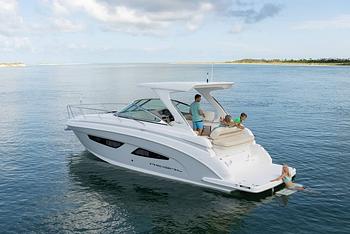
6th Sep 2024
The Best Mini Yacht Brands for Cruising and Luxury
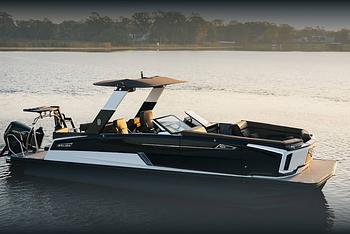
16th Aug 2024
Best Luxury Pontoon Boat Brands Have it All: Glamor, Speed, Fishing, Waterslides...
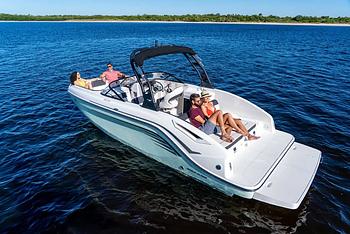
10th Aug 2024
Deck Boat vs. Bowrider: Which Runabout is Best?
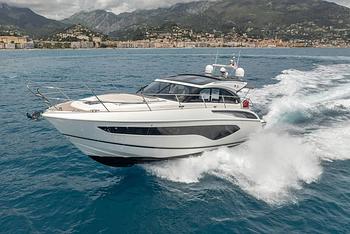
19th Jul 2024
The World’s Best Yacht Brands

- Explore Rightboat
- Boats for Sale
- Boating Articles
- Buyers Guide
- About RightBoat
- Sell Your Boat
- Boat Selling Advice
- All manufacturers
- All categories
- Are you a broker/dealer?
- Learn more about the Rightboat:HUB
Enter your email to keep up to date with the latest news
Join for free
Sign up now for free and discover how easy it is to keep up to date with THE latest boats for sale. Find your right boat, and tailor your voyage to finding your next boat.
Benefits of becoming a member:
- Set up tailored alerts
- Personalise your experience
- Download full specifications and broker details
- Keep tabs on your favourite boats
Are you a broker? Join as a Broker
Rightboat - join for free.
Do you have an account already? Login
Save this search
Save your search and receive new boats in your email..
You can unsubscribe from your alerts whenever you like. By pressing the button you accept the Legal Terms and conditions
- The Inventory
- Beyond Cars

Houseboats Get A New, Modern Upgrade As 'HouseYachts'
Boat maker reina boats is betting that “houseyachts” will become the next big thing..
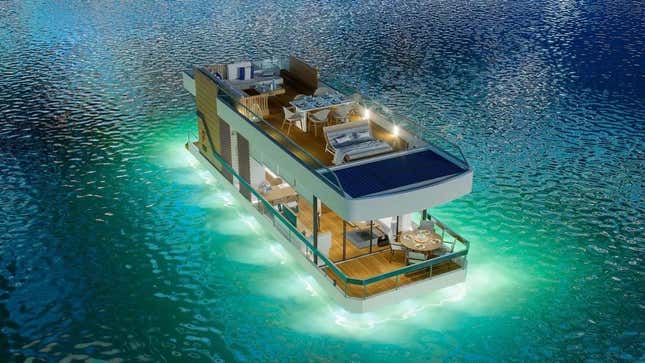
Houseboats were very popular. From people that actually used them as their full- time residence to families on vacation, it was sort of cool to actually reside on the water. But as the years went on they started to look and feel… old. One company is trying to bring houseboats into the 21st Century by reinventing them entirely. Robb Report highlights how one boating company has come up with ‘houseyachts.’
Suggested Reading
Reina Boats has come up with a complete line of “houseyachts ”. In a statement , company founders Hayri Dayi and Emin Günal said that they came up with the idea of “houseyachts” during the pandemic after seeing a need for something that was spacious and stylish enough to live in that wasn’t still stuck in the past like houseboats of yore.
Many boats do not have the living space to provide all the accommodations and comforts people want. Power catamarans offer more volume but also have become quite expensive. That left houseboats as the only option,” Günal said. In researching the U.S. houseboat market, however, Günal and Dayi realized that the vessel designs largely were outdated. “The existing houseboats were stuck in the design of the 1980s, and almost 90 percent of the houseboats on the water were commercially rented vessels. They were boats that yacht and catamaran owners would never consider buying,” Günal said.
Related Content
So the duo set about designing vessels that would be modern and appealing and surprisingly, something that wouldn’t “cost a mint.”
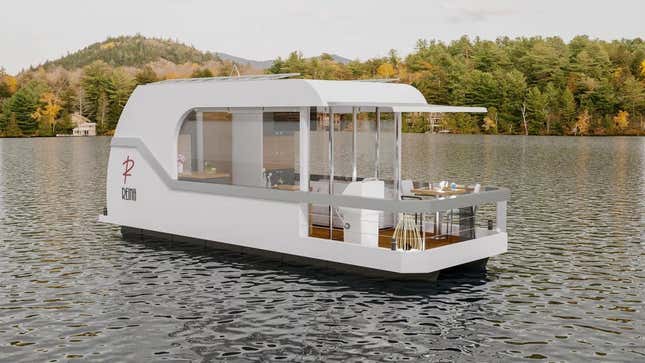
Reina’s lineup consists of five models. At the bottom for those that dont need much space, you can go for something like the Reina Mini T4 , described as a “compact floating luxury home.” You get things like hardwood floors, deck area, private bathroom, living room and full kitchen in 24 feet of vessel.
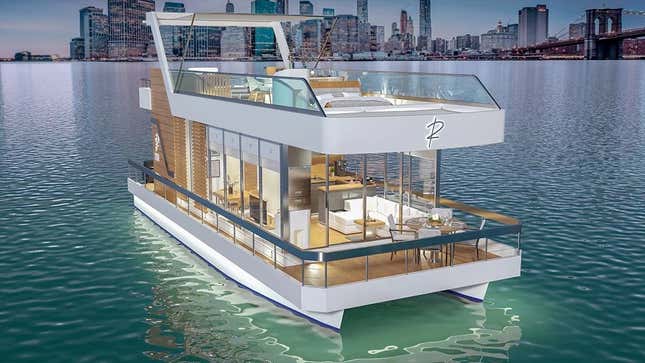
If you want to go all out you can go for the Reina Live L44DR. The largest “houseyacht” model Reina offers, its a full two story floating condo.
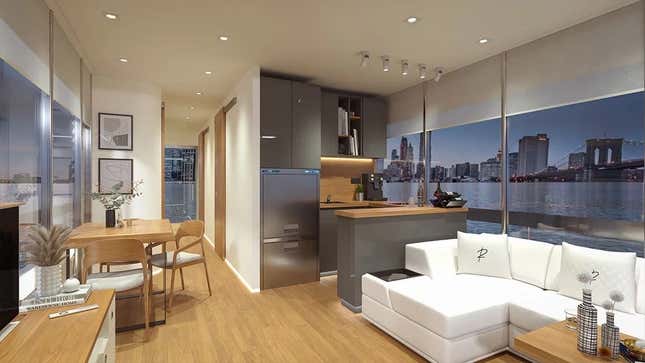
Technically there are two bedrooms, but those are made up of one huge master bedroom that splits into two and has enough room for five people; there’s a bathroom and shower and a c-shaped wraparound kitchen. Each model is equipped with the latest in smart home tech and high end appliances.
When its time to move these things, Reina says the ships meet U.S. Coast Guard standards, so they can float in any body of water, from lakes to the open ocean. They’re also described as green and fuel efficient, with engines that are rated as ultra low emissions from CARB (California Air Resources Board). They can also be equipped with batteries instead of on board generators if owners want to go greener.
Reina Boats plans to build its line of “houseyachts” in Turkey with the first model set to make its debut at Fort Lauderdale’s International Boat Show in October. Reina also isn’t talking pricing yet. Don’t count on them being cheap, but don’t count on them costing as much as a regular yacht either.
Log in or Sign up

You are using an out of date browser. It may not display this or other websites correctly. You should upgrade or use an alternative browser .

DragonRyu New Member
I'm new to this and actually never thought about it... but I got the idea of buying a yacht, instead of buying a house (and having to deal with the hassle of mowing lawns, patios, pests and noisy neighbours). Now, I would like to know if it is a good, bad idea, or is it going to be more expensive/cheaper, or anything else. I know it would be more exciting, since I like moving around and visiting new places. If there is anybody who currently lives in his/her yacht, please let me know how it's been for you, and if it was worth it or not, and what recommendations you might have (yacht size, number of floors, engine/fuel type). Thank you.
sailronin Senior Member
If you are talking "yacht" it is MUCH more expensive than a house, upkeep is multiple times what a house is and dock rent is expensive. Many people don't realize that you can't just stop and set up "housekeeping" anywhere you please (see the post When is an anchorage not...). Living aboard a "boat" can be fairly inexpensive, although it is not free by any means. Good luck Dave
YachtForums Administrator
Few people can offer greater wisdom than Sailronin on this subject, but you’ve raised a question that more people are beginning to ask. With the price of waterfront property exceeding the cost of many yachts, the live-aboard concept is becoming an option that more people are beginning to consider. Much of this decision rests on your priorities (and abilities)… Yachting is a unique lifestyle. It may cost more than conventional housing, but there are many aspects that are beyond compare. You have the option of tossing lines and going in search of a new view! In that course, you also have the opportunity to meet some very interesting people, most of which share your passion… a love for boats and being on the water. For some of us, the latter is a form of therapy. Whether you live on water, or live on land, both require maintenance. Personally, I would rather polish, paint & varnish… then spend my weekends cutting, clipping & weeding. I also like the option of taking my home with me while I explore new vistas… not to mention the serenity that comes with being on the water. For a lot of people that have been tied to work, family and commitments for most of their lives, a yacht offers something of growing importance… freedom. The ability to leave it all behind, minimize the baggage and fulfill a dream. About the only thing you leave behind is the convenience of a garage. I think owning a yacht, or more specifically, living aboard… is becoming a more viable alternative. When you do a cost comparison between home ownership and a live-aboard, the numbers are beginning to narrow. For example, let’s compare a $1 million yacht to a home of equivalent value. If you are not in the position to pay cash, the purchase of either will require a substantial down payment. This is where one of the most noticeable differences will occur. A home mortgage can be obtained for 30 years, whereas a typical boat loan is only up to 20 years, which means a higher payment although both loans are available at similar interest rates. (Finance gurus; please correct me if I’m wrong on this). If we set aside the monthly payments, then we are left with taxes & insurance for the home… or dock rent and insurance for the boat. For the moment, let’s exclude maintenance. In Florida, property taxes are equal to approx. 2 percent of the assessed value. On a $1 million dollar home, that works out to $20,000 a year, or $1666 a month. With a boat, you don’t have yearly taxes… you have dock rent. Around most parts of the country, with the exception of the larger, upscale marinas, this amount is sufficient to cover a slip. In essence, you could say dock rent and property taxes are about equal and both represent money that we are throwing away. Next… insurance! In Florida, we have these waterborne tornadoes of magnanimous proportions that have been stopping by to visit more frequently. The cost to insure a home has been relatively affordable for the past, oh… 100 years. THIS… has all changed over the past 2 years. If you can even find/get insurance for a home in Florida, it will easily be equal to the policy for a yacht of the same value. Roughly speaking, I would consider the insurance equation a wash too. Boat or house… about the same. What remains is… maintenance. This is a HUGE variable, but one thing remains constant… boats must be maintained and it’s usually more expensive than a house. Without going into a long dissertation, a newer boat will cost less to maintain than an older boat, but of course the newer boat will cost more upfront. A standard, industry measure projects a boat will cost you 10-20% of its value to maintain on a yearly basis. This number usually includes the items listed above, in addition to a crew. If you purchase a yacht of reasonable means and size, this number can be greatly reduced by minimizing crew and performing much of the maintenance yourself. I can tell you the cost of maintaining our own boat is far less than the rule-of-thumb above. I would put the number at less than 5%. If you compare this to a house, it is probably higher. But this also has a lot to do with the condition of the house and your addiction to Home Depot. I’m drawing simple analogies and using very rough figures, but living aboard a boat can be a reasonable alternative. Like a said earlier, it’s a matter of priorities.
davidwb Senior Member
Eh, Yachtforums, aren't you forgetting Depreciation? That million dollar house will perhaps be worth more in say 10 years from now. In 2016 the million dollar boat will worth what, 200 grand? You do the math
Hi David and welcome, You've raised a good point. However... because real estate is over-inflated and prices are falling (especially around our area), there has never been a better time to exercise the live-aboard option. It's hard to say where prices will be in 10 years, but I would have to agree with you... it's likely they'll be higher. However, for the next few years... I wouldn't count on homes appreciating. In contrast, if you buy a boat right, you can sometimes break even when you sell it. Over the past couple of years, a number of megayachts have sold to secondary buyers for more than the original price when delivered. But truthfully... that's a richer man's blessing. I certainly can't disagree with you... homes have a proven track record, where as boats are considered a depreciating asset.
AMG YF Moderator
This is almost true, but I think the house itself and a yacht can compare in costs and value. The long term difference is the land, and the location.
One of your wise countrymen once said that "If it floats, flies or f***s, RENT IT!" I'm afraid he was right.
davidwb said: One of your wise countrymen once said that "If it floats, RENT IT!" Click to expand...

C4ENG Senior Member
You also have to remember that there will be times that the vessel will have to go to the yard for repair. Some of the repairs that might be needed may have the vessel in a unlivable situation for a while (example; you can't use the sinks or drains becuase you are repairing the tanks, or the A/C might be down for repair and or maintenance). Does not mean you can't still sleep on the boat but it certainly would not be as comfortable and not to mention how dirty it can be having to do that yard time. A second home away from home is much more realistic on a yacht.
yachtbrokerguy Guest
The first thing to investigate is your financing for a boat. Many marine lenders will not lend to a livaboard, so you will need to find a lender before you can even look at boats. Plus if you are pre-approved, you will be in a much stronger position to negotiate when you do find the right boat. Yachting has never been a good way to save money! Tucker Fallon Yacht Broker Fort Lauderdale
"How do you make a small fortune in yachting?" Start with a large one
sailronin said: "How do you make a small fortune in yachting?" Start with a large one Click to expand...
x_shadow666_x New Member
well first of all u need sm1 to work and ''drive'' the boat n fix the machines n stuff, thats very importnat secondly u must be able to pay a place in a harbor and then it becomes like a home
reidsatsea New Member
Running costs I see no one has been active on this thread for a while, but I thought I'd add my piece.... I think it more accurate to work on 10-20% of the REPLACEMENT value of the vessel per year in terms of running costs, as opposed to the current value or purchase price. This "formula" has proven to be fairly accurate for us - and we've run boats of varius sizes and types. At the end of the day tho, you can't beat yachting for it's way of life.
Loren Schweizer YF Associate Writer
DragonRyu: Over the years, there have been quite a few editors of magazines covering our favorite sport, and one or or two have tried the liveaboard experiment. I forget which one, but he did a stint aboard a 42 or 46 Grand Banks up in Conne cticut and wrote of his winter experience in a marina there. In short, it seemed pretty cool compared to a 'normal' ho-hum life ashore. Forget all the 'practical' reasons as to why you might consider this or not--- take the chance and learn something about your persona. Too weird? OK, Maybe you ought to take up more lanlubber-ish concerns. On the other hand, you might discover something adventureous in yourself.
During the 90:s I was living on a motor yacht on the French Riviera. Slept onboard every single night for five consecutive years. Most of the time on an 85´Moonen and later on an Italian GRP 66´. Mainly good experiences although quite a lot of work to keep up the maintenance, probably a half time job if you are alone. The best is that you have all you need in a small place that you can take anywhere. Worse are that harbour fees are going up with demand and making it very expensive for bigger yachts. But the last two weeks I have spent on a small 33´motor sailer and found that she can offer a pretty good home as well. At least in warm waters...
Attached Files:
Welcome back Lars!!! Glad to see you have returned home safely and aquired a token of your travels. That's a sweet little motor slooper. Care to share more about her?
Kevin YF Moderator
I envy you Lars!
Thanks guys! It was a nice trip in the midnight sun from northern Sweden to Stockholm. Today I flew back there in 50 minutes, picked up my car and was back after seven hours (650 km:s) as compared to the two weeks cruising down the coast! She is an old Lady from 1974, 10 x 3.2 m, Colin Archer style built by Fjord in Norway. Has a Perkins 54 hp of which I need about twenty to reach 6 knots. The rest I´ll save for a report later this season...
Lars, that is a pretty little boat. 1974? The refit (assuming you didn't find her in a barn somewhere in like-new condition) looks great from the photos. I know more people in this business, who are associated with large yachts, and who yet choose to "mess about in small boats", as the saying goes, on their own time. As Lars points out, big boats are a lot of work and, maybe, just maybe, are not quite the fun that small boats offer. Don Patton, our local legend surveyor who regularly heads across the pond to inspect quite large new builds in some rather important yards, can be seen on occasion rowing his tiny skiff to breakfast at the yacht club down from where he lives.
- No, create an account now.
- Yes, my password is:
- Forgot your password?


The global authority in superyachting
- NEWSLETTERS
- Yachts Home
- The Superyacht Directory
- Yacht Reports
- Brokerage News
- The largest yachts in the world
- The Register
- Yacht Advice
- Yacht Design
- 12m to 24m yachts
- Monaco Yacht Show
- Builder Directory
- Designer Directory
- Interior Design Directory
- Naval Architect Directory
- Yachts for sale home
- Motor yachts
- Sailing yachts
- Explorer yachts
- Classic yachts
- Sale Broker Directory
- Charter Home
- Yachts for Charter
- Charter Destinations
- Charter Broker Directory
- Destinations Home
- Mediterranean
- South Pacific
- Rest of the World
- Boat Life Home
- Owners' Experiences
- Conservation and Philanthropy
- Interiors Suppliers
- Owners' Club
- Captains' Club
- BOAT Showcase
- Boat Presents
- Events Home
- World Superyacht Awards
- Superyacht Design Festival
- Design and Innovation Awards
- Young Designer of the Year Award
- Artistry and Craft Awards
- Explorer Yachts Summit
- Ocean Talks
- The Ocean Awards
- BOAT Connect
- Between the bays
- Golf Invitational
- BOATPro Home
- Superyacht Insight
- Global Order Book
- Premium Content
- Product Features
- Testimonials
- Pricing Plan
- Tenders & Equipment

A handpicked selection of superyachts on display at the Monaco Yacht Show 2024
The much-anticipated Monaco Yacht Show is a time to celebrate some of the industry’s most prized superyachts. But for prospective buyers, navigating the complexities of purchasing a new yacht requires the expertise of a seasoned broker. Among the top brokerage houses at this year's event is Edmiston , following an outstanding year with impressive sales figures.
With 30 yachts sold so far in 2024 alone, totalling over €1.1 billion in sales, Edmiston has secured a dominant 25 per cent market share of the global transaction value, and 28 per cent in yachts over 50 metres. Remarkably, the brokerage boasts the fastest sales time in the industry, with its central agency yachts selling at twice the speed of the market average. As excitement builds for the show, BOAT highlights the standout superyachts Edmiston will be presenting to potential clients in Monaco.
Among the spotlighted superyachts is the newly transformed H3 , originally delivered as 95-metre Indian Empress in 2000 by Oceanco . Following an extensive full-scale rebuild at the same shipyard in 2023, the vessel now emerges as a modernised 105-metre, delivered in 2024 with the appeal of a brand-new yacht, complete with a full shipyard new-build warranty.
H3 presents a unique opportunity for buyers seeking a yacht that not only boasts contemporary design but also meets today’s stringent environmental standards, including full IMO Tier III compliance. The transformation was masterminded by the renowned Reymond Langton Design , which reimagined both the interior and exterior, replacing the original sharp interior lines with a more fluid, wave-inspired aesthetic.
Inside, H3 offers accommodation for up to 20 guests, with sprawling living spaces across the bridge, owner and main decks. The sundeck is an area for relaxation or even a workout with a view in the forward-facing gym, while the lower deck spa is a place to totally unwind, featuring a hair and beauty salon, massage room, Hammam and even a private hospital.
There is much to offer the adrenaline junkies too, with the yacht’s wide range of water toys and tenders, including Jet Skis, Seabobs, kayaks, SUPs, diving equipment and inflatables. Alternatively, you can enjoy a day of exploring hidden coastlines with the 10.1-metre Compass Open Sport tender, an 11.1-metre Compass Limo tender and two 6.2-metre Yachtwerft Meyer rescue tenders.
Superyachts to suit every taste
Edmiston’s fleet at the Monaco Yacht Show caters to a wide range of tastes and needs. Among the highlights is 80-metre Aalto , a go-anywhere cruising yacht designed for those with a passion for exploration and adventure. Wayfinder , a 68.2-metre support catamaran, is ideal for owners looking to expand their capabilities with extensive storage for tenders and toys. Superyachts with a proven charter record include 65-metre Resilience and 60-metre Samadhi , for owners keen to find something with strong commercial value. Other standouts include the 60-metre classic Feadship Lady Beatrice , for sale for the first time, and the meticulously maintained 55-metre Olympus , 54.3-metre Spirit and 50-metre Ela .
For sailing enthusiasts, Edmiston presents an extraordinary lineup. The 50-60-metre size range offers high-performance cruisers Fidelis and Salvaje , World Superyacht Award -winner Asahi or the charter-attractive Red Dragon . Moving into the smaller size bracket, Mariette of 1915 provides prospective owners with the opportunity to follow their classic yacht dreams, a 38-metre twin-masted schooner with a rich history. Alternatively, there will be two world-cruising sloops up for grabs, 34.9-metre State of Grace and 26-metre Mini Y .
Edmiston invites clients to explore these magnificent yachts at two key locations during the show: the Edmiston Pavilion at the Yacht Club de Monaco and its stand (QH19). Once again, Edmiston has partnered with business jet manufacturer Gulfstream, as well as Wajer and Range Rover, to ensure that guests can navigate the show with the utmost comfort and discretion. To book an appointment with Edmiston’s brokers at the Monaco Yacht Show and take the first step toward owning your dream yacht, contact the team today .
Sponsored content created for Edmiston
latest in Real Estate

Boomers own 38% of America’s homes—but more than half never...

Utah man 'haunted' after spending $1M on cruise ship from...

Mortgage rates creep closer to 6% — the lowest level since...

Jennifer Aniston gives fans a rare glimpse of $21M LA mansion...

Home sales 'disappointing again' -- but Fed rate cut could be...

Fire-damaged penthouse tied to a convicted Chinese fraudster...

A housing price crash looms in these 3 states

Millionaires are increasingly renting homes instead of buying
Jennifer aniston gave fans a rare glimpse of her $21m la mansion during her emmys glam session.
Before Jennifer Aniston graced the 76th Primetime Emmy Awards red carpet, she treated her 44.8 million Instagram followers to something far more exclusive: a rare, behind-the-scenes tour of her sprawling $21 million Los Angeles mansion.
The “Friends” star, known for keeping her private life under wraps, pulled back the curtain on her stunning midcentury-modern home, located in posh Bel Air, while getting ready for TV’s biggest night.
In the video, shared the day after the Emmys, Aniston offered a candid glimpse into her luxurious lifestyle, giving viewers a front-row seat to her jaw-dropping property. The estate, originally designed by famed architect A. Quincy Jones in 1965, boasts floor-to-ceiling windows, dark hardwood floors and modernist sculptures.
But it wasn’t always this warm.

After purchasing the home in 2011, Aniston brought in designer Stephen Shadley to revamp the space, adding earthy textures and personal touches to soften the mansion’s sleek aesthetic.
“Jen is drawn to wood, stone, and bronze, materials that have real substance and depth,” Shadley explained in an interview with Architectural Digest. “No matter how beautiful or glamorous something is, it has to be warm and inviting.”
View this post on Instagram A post shared by Jennifer Aniston (@jenniferaniston)
In typical laid-back Aniston fashion, the video begins with a close-up of her breathtaking pearl-colored, strapless Oscar de la Renta gown before slowly panning across her luxurious living room.
As she paused to admire the space, fans got an eyeful of her home’s midcentury charm. And while her Emmy gown was undoubtedly a showstopper, her home, worth a reported $21 million, was the real scene-stealer.
The video showed Aniston gracefully wandering through her mansion, eventually stopping in the library — a highlight of her estate. With a floor-to-ceiling bookcase filled with gold-bound books, and a section reserved for the many awards she’s racked up over the years, the space epitomized the blend of Hollywood glam and cozy comfort.

Among her trophies? The Emmy she won for her iconic role as Rachel Green on “Friends,” proudly on display alongside countless other accolades.
But it wasn’t all about showing off her enviable pad. Aniston’s down-to-earth nature shone through when she warmly embraced her longtime friend and “The Morning Show” producer, Kristin Hahn. Clad in a chic green dress, Hahn appeared to be just as at home in Aniston’s palace as the star herself.
During the pair’s heartfelt reunion in the library, viewers got to see them surrounded by luxe furnishings and a massive wall of windows.

Of course, the tour wasn’t complete without a peek at Aniston’s ultra-luxe makeup station. Surrounded by lightbulb-framed mirrors straight out of a movie star’s dressing room, Aniston was seen getting her makeup and hair perfected before heading to the Emmys.
The grand finale came when Aniston and Hahn stepped through the mansion’s dramatic front entrance. The Emmy nominee made her exit through massive doors covered in eye-catching irregular gray stripes, making her way to the red carpet in style.

Aniston’s “The Morning Show” was a top contender at the Emmys, with her and co-star Reese Witherspoon both competing for the same award. However, it was Anna Sawai’s tearful win for “Shōgun” that snagged the night’s top acting prize, leaving Aniston and Witherspoon empty-handed.

Advertisement

IMAGES
VIDEO
COMMENTS
Housing Prices in SoCal. According to Zillow, a popular home rental and buyer's listing website, the median price of homes listed as of print is $532,000 and the median price of homes sold is $486,500. Over the past year, values have gone up 8.3 percent. Rental prices average $2,750. Worse still, these prices are projected to continue rising ...
Your budget should cover two main categories: Boat costs: Including maintenance, insurance, fuel and purchasing costs, if applicable. Provision costs: Including utilities, food, electronics and necessity costs. Examples of some costs you may accrue while living on a boat include: Boat registration. Commissioning.
1.Saving Money. Living on board a boat will often be far cheaper than renting or owning a traditional home. There will be less expenses and the original purchase price is often far cheaper than what you could ever purchase a house for. Not only will you save money on the purchase but you will also save money on the monthly expenses.
One of the main differences between a houseboat and a yacht is their design or appearance. If you take a closer look at a houseboat, you will notice it resembles something that looks like a floating home. And this explains why it's called a houseboat. It's a combination of a small house and a boat, thus the name.
It depends on your location, boat, and how comfortable you want to be. We spent between $600- $2,000 a month while living aboard our boat. This young UK couple is living on a sailboat for £500 ($570) a month while cruising around the world. This young family from San Diego told Insider they pay $2,200 a month to live on a 40-foot boat.
This is a very common inquiry received at United Yacht Sales, but also one that has been more frequently asked over the last year as the popularity of living on a boat has become mainstream. ... Whether or not it is less expensive to live on a boat instead of a house really depends on your standards and expected quality of life on board. The ...
A house boat is more akin to a stationary home on water. While house boats can be equipped with amenities similar to yachts, they are typically designed for comfort and extended stays rather than high-speed travel. Motor Yacht vs House Boat . Motor yachts are sleek, motor-powered vessels built for cruising at higher speeds. They offer the best ...
One parting thought: Living on a boat full time and traveling is like having three or four full-time jobs. Each requires 30-40 hours per week when you include labor, research, and thinking and planning. Boat ownership — basic maintenance and cleaning. Cruising full-time — destination and route planning, weather study.
You can typically purchase floating homes with a smaller footprint for about $600,000. Gunner Davis, a Realtor at Coldwell Banker Realty in Tampa, Florida, says houseboats and floating homes in his area can cost from less than $100,000 to upwards of $1 million. A two-story 50 x 16-foot houseboat would typically sell for about $350,000.
Cheaper but usually less space and moe maintenance. It is cheaper to live in a boat than in a house. The monthly costs associated with living in a boat are less than those associated with renting an apartment in the same location. One of the main features of most regions in the United States is the high rent costs.
Appearance is an obvious difference between these two. A houseboat looks like a small, floating home, while a yacht resembles the typical image of a boat. Large y acht (morotized) Houseboat. A visible difference between these two is their hull. Hulls are a crucial component of aquatic vessels, since different hulls perform differently.
Living on a boat means you'll have to learn a new way of using the loo. Our toilet, for example, has a manual flush. You basically fill up a large cup, add water to the bowl, and vigorously pump a ...
Like with buying a house, floating homes and houseboats vary widely in cost to buy one. For a new houseboat from East Coast Houseboats, Drage says the range starts with a one-bedroom, 22-foot houseboat that starts under $90,000. At the higher end of the spectrum, a two-story houseboat that's 50 feet long and 16 feet wide goes for around $350,000.
First step, I think, is setting your budget and choosing a vessel. For instance, a diesel yacht and a sailboat will have drastically different concerns, etc. Upvotes for my curiousity as well. Reply reply ... Instead of renting a house, charter a boat. I'd bet there are charter companies with boats sitting dormant throughout an off-season that ...
Houseboat living represents the epitome of a fluid, unhurried existence, free from the constraints of a fixed location. This lifestyle provides a unique opportunity to experience the world from a different viewpoint, literally floating atop the water's surface.
The first question is you are might want to get more of a yacht instead of a houseboat as it might have the ability to better weather storms etc or get a holiday mansion, but I think yacht would still be the better option. I can answer your second and third based solely from a lake houseboat perspective.
Arkup, next-generation floating house, rethinks life on the water with its livable yachts, floating islands, communities, and eco-resorts. ... Our fun and friendly livable yacht combines state-of-the-art Arkup technology and a multi-purpose design for the ultimate leisure experience for family and friends. Discover & Order.
Re: Buying a boat instead of a house? back in the day on Long Island my family lived on a 30ft trojan Sport Fish during the summer. We'd move onto the boat the weekend after school let out. We'd go home once a week to cut the lawn, do laundry and stuff then move back to the house the weekend before school started.
What is a Houseboat? A houseboat is exactly what the name says - a vessel that is primarily used as a residence for the owner. They may be a standard houseboat, shaped like a floating house on pontoons; or a long canal boat; or even some traditionally built houses on floating docks; while some super yacht owners have even been known to turn their luxury yachts into a full-time home, today we ...
Instead of a single hull, this design features two long narrow hulls connected by a platform on which the structure of the house sits, similar to some pontoon houseboats. The boats can be made from aluminum, fiberglass, or wood, and typically range between 30 feet and 50 feet in length.
Reina Boats plans to build its line of "houseyachts" in Turkey with the first model set to make its debut at Fort Lauderdale's International Boat Show in October. Reina also isn't talking ...
You basically made the choice of getting the yacht over a new house, without talking to her. The boat is NOT A NECESSITY. You won't use it as much as you do a house. ... My wife is upset because she believes I should've used the money on the house instead Reply reply
If you purchase a yacht of reasonable means and size, this number can be greatly reduced by minimizing crew and performing much of the maintenance yourself. I can tell you the cost of maintaining our own boat is far less than the rule-of-thumb above. I would put the number at less than 5%. If you compare this to a house, it is probably higher.
Superyachts to suit every taste. Edmiston's fleet at the Monaco Yacht Show caters to a wide range of tastes and needs. Among the highlights is 80-metre Aalto, a go-anywhere cruising yacht designed for those with a passion for exploration and adventure. Wayfinder, a 68.2-metre support catamaran, is ideal for owners looking to expand their capabilities with extensive storage for tenders and toys.
A 100-foot yacht that had fireworks and ammunition aboard erupted in flames Wednesday night. The two aboard the yacht, docked in Marina del Rey, managed to escape without injury.
Millionaires are increasingly renting homes instead of buying Celebrity Real Estate. Jennifer Aniston gave fans a rare glimpse of her $21M LA mansion during her Emmys glam session By .